Invited speakers
Invited speakers - Zaproszeni prelegenci
Ta strona jest prowadzona w języku angielskim - This page is maintained in English.
The entry code of coronaviruses
Speaker: dr hab. Aleksandra Milewska Małopolskie Centrum Biotechnologii - Uniwersytet Jagielloński
Talk: The entry code of coronaviruses
Time: 22.05.2026
Venue: Intercollegiate Faculty of Biotechnology, Abrahama 58, hall 042B
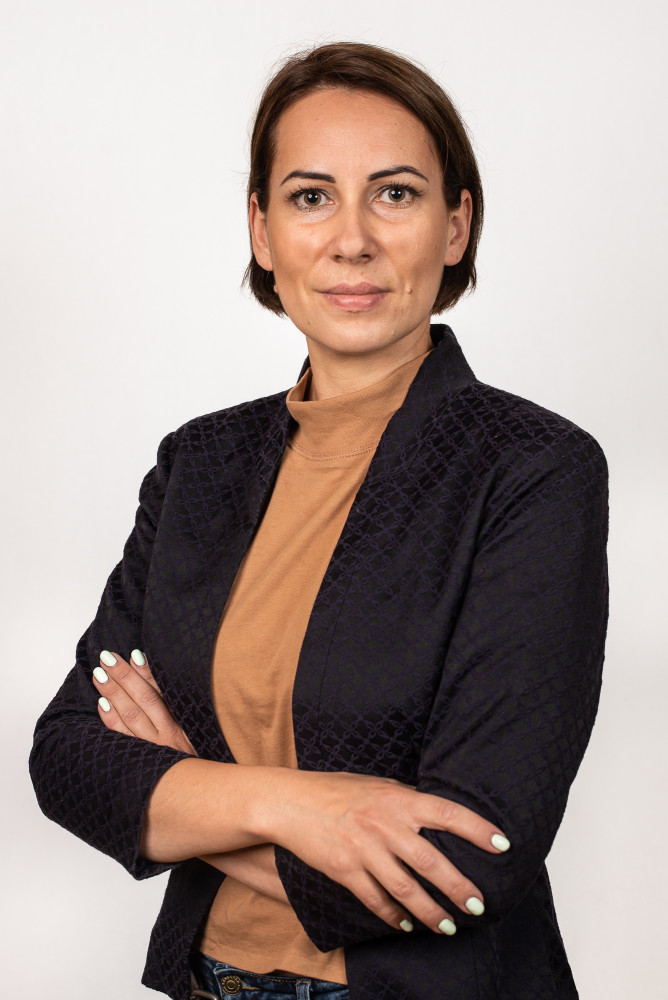
A virologist based in Kraków, Poland, and a researcher at the Małopolska Centre of Biotechnology of the Jagiellonian University, where she conducts research on emerging and re-emerging viral pathogens. She obtained her PhD in biological sciences at the Jagiellonian University and has since developed an internationally recognized research profile in molecular virology.
Her scientific work focuses on coronavirus biology, virus–host interactions, and mechanisms governing viral entry, replication, and cross-species transmission. She is particularly interested in sarbecoviruses and other zoonotic viruses with pandemic potential, combining fundamental virology with advanced cellular and tissue models of the human respiratory epithelium. Her research has contributed to key discoveries in coronavirus entry pathways, host protease usage, and antiviral inhibition strategies.
Dr Milewska is the author and co-author of numerous peer-reviewed publications in leading international journals and holds several national and international patents related to antiviral technologies. She has participated in and led multiple nationally and internationally funded research projects, including the EU4Health funded DURABLE project, where she serves as a principal investigator from the Jagiellonian University.
She gained international research experience during internships at the University of Amsterdam and actively contributes to the scientific community through mentoring, reviewing, and international collaboration. Her work aims to advance preparedness for future viral threats through a deeper understanding of virus evolution and host adaptation.
Physiological function and role of selected acyl-CoA:lysophospholipid acyltransferases from various organisms in phospholipid remodeling
Speaker: dr Katarzyna Jasieniecka-Gazarkiewicz, Laboratory of Plant Biochemistry, Intercollegiate Faculty of Biotechnology of University of Gdańsk and Medical University of Gdańsk
Talk: Physiological function and role of selected acyl-CoA:lysophospholipid acyltransferases from various organisms in phospholipid remodeling
Time: 30.01.2026
Venue: Intercollegiate Faculty of Biotechnology, Abrahama 58, hall 042B
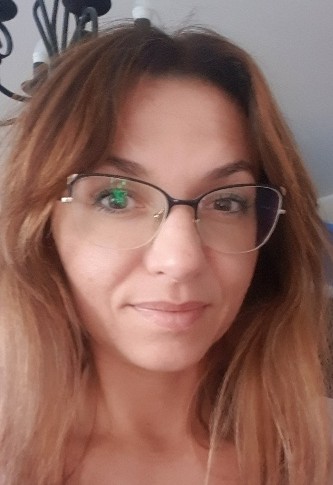
Katarzyna Jasieniecka-Gazarkiewicz obtained her PhD from IFB UG-MUG in Biological Sciences in the field of Biochemistry. During her PhD studies, she completed an internship of over a year at the Plant Breeding Institute of the Swedish University of Agriculture (Sweden). Her primary interests are biochemistry and biotechnology of plant lipids. Her research focuses on determining the biochemical and physiological functions of the proteins encoded by genes involved in lipid metabolism. In recent years, she has been focusing on understanding the function of different acyltransferases in plant adaptation to environmental stresses.
In her seminar, she will discuss the physiological function and role of selected acyl-CoA:lysophospholipid acyltransferases (LPLATs) from yeast, plants and diatoms in phospholipid remodeling. Changes in the fatty acid composition of phospholipids are essential for maintaining the integrity of living organisms' membranes. This so-called remodeling occurs for two main reasons. First, in plants and microorganisms, the fatty acid composition of membrane phospholipids must be modified in response to changes in environmental conditions (e.g., temperature). Second, oxidized fatty acids disrupt proper membrane function and must be replaced with unoxidized fatty acids. Furthermore, fatty acid exchange between the acyl-CoA pool and the phosphatidylcholine (PC) fatty acid pool is an extremely important process, as it influences the composition of fatty acids that build storage lipids.
Inhibitors of ER protein translocation in virology
Speaker: prof. Kurt Vermeire, Ph.D. Rega Institute for Medical Research, KU Leuven, Belgium
Talk: Inhibitors of ER protein translocation in virology
Time: 29.05.2026
Venue: Intercollegiate Faculty of Biotechnology, Abrahama 58, hall 042B
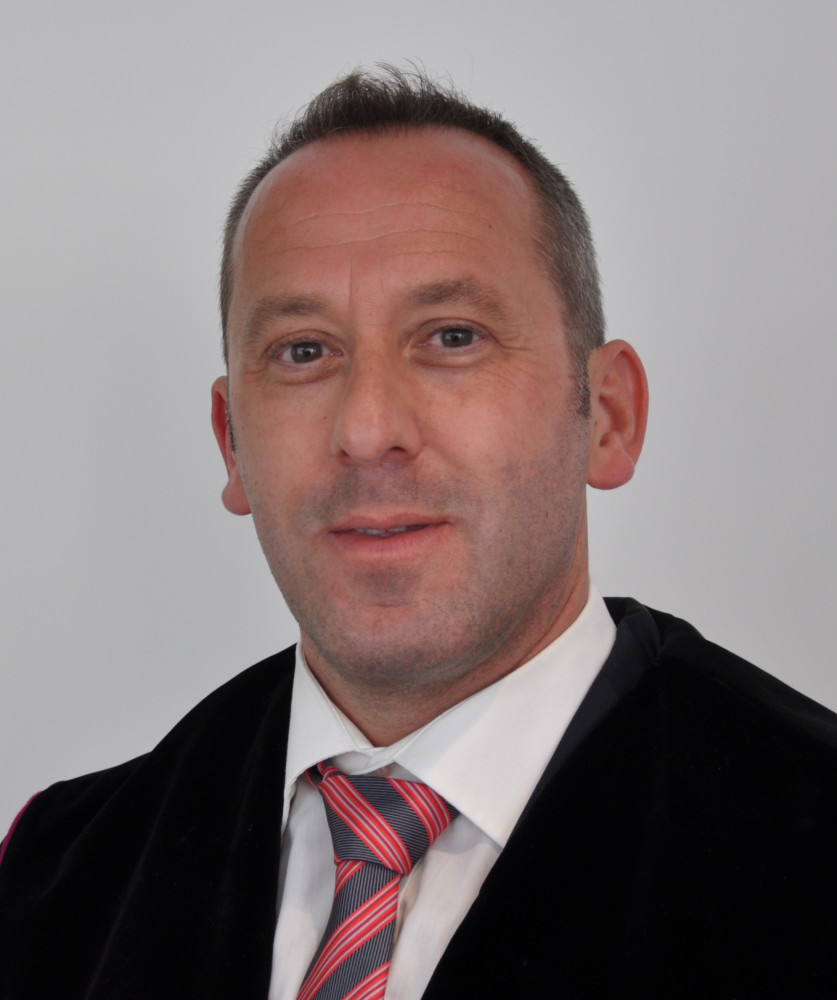
Kurt Vermeire is a Full Professor in the Department of Microbiology, Immunology & Transplantation and the Rega Institute for Medical Research at the University of Leuven (KU Leuven), Belgium. Professor Vermeire earned a master degree in Bio-engineering and a Ph.D. in Medical Sciences from KU Leuven before completing postdoctoral fellowships at the National Institute of Health (NIH, Bethesda, USA) and at the University College London (LMCB, UCL, London, UK), where he studied the mode of action of HIV entry inhibitors. In 2011, he joined as a visiting scientist the laboratory of Enno Hartmann at the University of Lübeck in Germany, where he got trained in cell-free in vitro protein translation and translocation research. On his return to Leuven in 2012, he began his independent group at the Rega Institute and was appointed Assistant Professor in the Laboratory of Virology and Chemotherapy, KU Leuven. His research involves Sec61-dependent ER translocation of viral envelope proteins and cellular receptors for human viruses, such as Respiratory Syncytial Virus (RSV), Corona Virus, Dengue Virus and Ebola Virus, with focus on small molecule inhibitors of the Sec61 translocon channel.
Dr. Vermeire has published 92 peer-reviewed articles (H-index: 31) and is co-inventor on 3 patents. As an educator, he supervises students across academic levels and Ph.D. candidates in the Doctoral School of Biomedical Sciences. Dr. Vermeire coordinates the Master’s Thesis course of the program Biomedical Sciences, teaches microbiology courses in the Faculty of Medicine at KU Leuven and is member of the Faculty Working Group on International Affairs for Biomedical Sciences.
Challenges in Biostimulants Development: From Plate to Product
Speaker: dr Małgorzata Golanowska, ICL Specialty Fertilizers
Talk: Challenges in Biostimulants Development: From Plate to Product
Time: 24.04.2026
Venue: Intercollegiate Faculty of Biotechnology, Abrahama 58, hall 042B
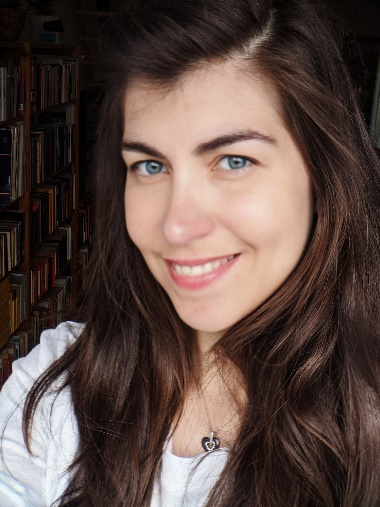
Małgorzata Golanowska obtained her PhD from IFB UG-MUG (PL) and INSA de Lyon (FR) in biochemistry and microbiology. Her studies involved plant pathogenic bacteria such as Pseudomonas syringae and Dickeya solani and how to combat diseases caused by those microorganisms by means of biocontrol.
She has 15 years of experience as a researcher in different research centers such as IFB UG-MUG (PL), INSA de Lyon (FR), NIOO-KNAW (NL) and companies such as International Flavors and Fragrances or Merieux NutriSciences (NL). Since more than 6 years, Gosia works at ICL Specialty Fertilizers (NL) with a mission of improving crop yields in a sustainable way by using beneficial microbes – microbial biostimulants. She focuses on improvement of nutrient use efficiency in plants and steering plant microbiome towards sustainable plant nutrition. Since 2022, she is a consultative member of PT Microbials at European Biostimulants Industry Council (EBIC).
Targeting Hepatitis C: Novel Vaccine Approaches and Anti-SR-BI Antibodies
Speaker: dr Katarzyna Grzyb, Laboratory of Virus Molecular Biology, Intercollegiate Faculty of Biotechnology of University of Gdańsk and Medical University of Gdańsk
Talk: Targeting Hepatitis C: Novel Vaccine Approaches and Anti-SR-BI Antibodies
Time: 28.11.2025
Venue: Intercollegiate Faculty of Biotechnology, Abrahama 58, hall 042B
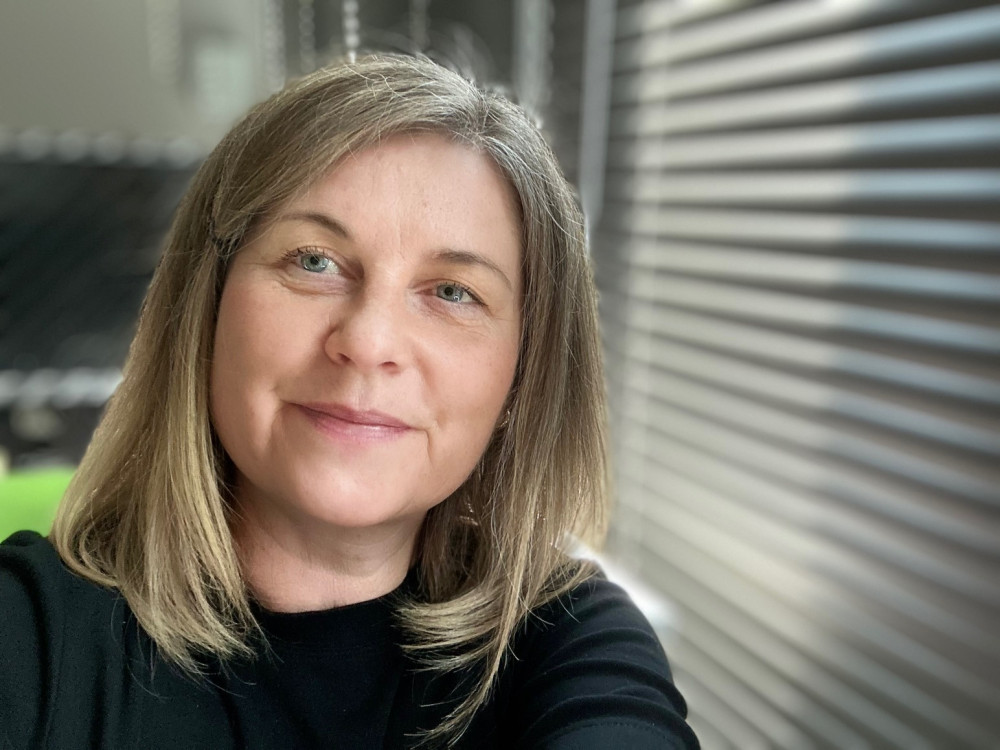 Katarzyna Grzyb obtained her PhD in Biological Sciences in 2007. Shortly thereafter, she was awarded a Marie Curie Fellowship under the EU Sixth Framework Programme and conducted postdoctoral research in Naples in the internationally renowned group of Prof. Alfredo Nicosia, working on the project “Entry inhibitors for the treatment of hepatitis C virus infection”. Her research primarily focused on the characterization of novel human monoclonal antibodies targeting the SR-BI receptor, with the aim of evaluating their therapeutic potential in preventing hepatitis C virus (HCV) reinfection following liver transplantation. After returning to Poland, her scientific interests shifted toward the design of novel HCV vaccine candidates based on recombinant E1E2 heterodimers and chimeric virus-like particles (VLPs). The strategy of targeting both structural and nonstructural HCV proteins through multiple complementary approaches represents a promising avenue for inducing durable, pan-genotypic immune responses. This line of research has been supported by three competitive grants awarded by the National Science Centre (NCN) and the National Centre for Research and Development (NCBiR). In her seminar, she will discuss the development of a prophylactic vaccine against HCV — a continuing global medical need.
Katarzyna Grzyb obtained her PhD in Biological Sciences in 2007. Shortly thereafter, she was awarded a Marie Curie Fellowship under the EU Sixth Framework Programme and conducted postdoctoral research in Naples in the internationally renowned group of Prof. Alfredo Nicosia, working on the project “Entry inhibitors for the treatment of hepatitis C virus infection”. Her research primarily focused on the characterization of novel human monoclonal antibodies targeting the SR-BI receptor, with the aim of evaluating their therapeutic potential in preventing hepatitis C virus (HCV) reinfection following liver transplantation. After returning to Poland, her scientific interests shifted toward the design of novel HCV vaccine candidates based on recombinant E1E2 heterodimers and chimeric virus-like particles (VLPs). The strategy of targeting both structural and nonstructural HCV proteins through multiple complementary approaches represents a promising avenue for inducing durable, pan-genotypic immune responses. This line of research has been supported by three competitive grants awarded by the National Science Centre (NCN) and the National Centre for Research and Development (NCBiR). In her seminar, she will discuss the development of a prophylactic vaccine against HCV — a continuing global medical need.
Retron Eco2: Of DNA making and RNA breaking in bacterial immunity
Speaker: dr Patrick Pausch, Vilnius University - Life Sciences Center, Lithuania
Talk: Retron Eco2: Of DNA making and RNA breaking in bacterial immunity
Time: 21.11.2025
Venue: Intercollegiate Faculty of Biotechnology, Abrahama 58, hall 042B
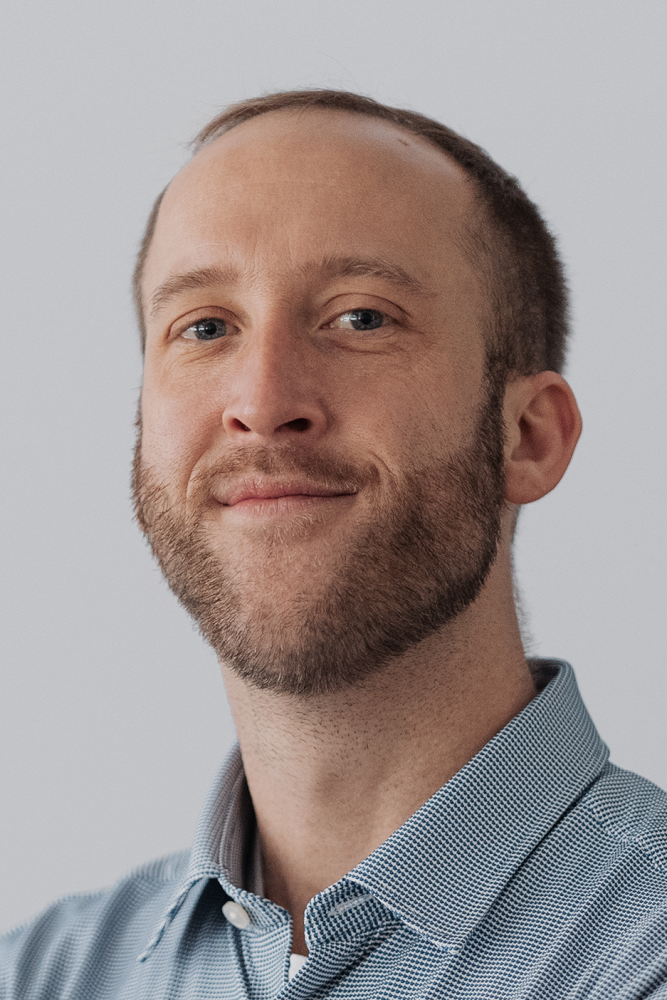
Dr Patrick Pausch is a biochemist and structural biologist whose research group explores the diversity, mechanisms, and applications of bacterial immune systems. Before establishing his laboratory in Vilnius in 2021, Patrick was a postdoctoral scholar with Jennifer Doudna at UC Berkeley, where he developed a hypercompact CRISPR nuclease. His team now studies novel CRISPR systems, molecular mechanisms of phage–host interactions, and newly discovered bacterial immune pathways. In his seminar, he will focus on one of these systems, which produces single-stranded DNA and degrades RNA to provide bacteria with immunity against phages.
Advanced Microscopy for Pandemic Preparedness - Multiplex microscopy assay for viral serology
Speaker: dr Vibor Laketa, Universitätsklinikum Heidelberg, Germany
Talk: Advanced Microscopy for Pandemic Preparedness - Multiplex microscopy assay for viral serology
Time: 14.11.2025
Venue: Intercollegiate Faculty of Biotechnology, Abrahama 58, hall 042B
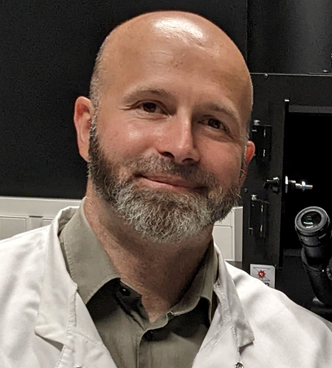 Dr. Vibor Laketa is the head of Infectious Diseases Imaging Platform (IDIP) at the Heidelberg University and focuses on providing, developing and applying high-end microscopy infrastructure under enhanced biosafety containment 2 and 3 (BSL-2 and 3) to enable infectious diseases research. Vibor obtained his PhD at the European Molecular Biology Laboratory (EMBL), Heidelberg, Germany where he worked on automated microscopy setups for high-content screening approaches and their application in investigating diverse cellular processes such as signal transduction, vesicle trafficking and neuronal growth. After the PhD he continued his research as a staff scientist at the EMBL where he operated at the interface between advanced light microscopy, robotics, chemical biology and cell biology. In 2013. he joined Heidelberg University to establish the microscopy infrastructure to enable imaging on infectious human pathogens. A comprehensive understanding of host-pathogen interactions requires quantitative assessment of individual molecular events across an entire range of spatiotemporal scales and organizational complexities. Due to recent technical developments, this is currently achievable only with microscopy. Modern microscopes have evolved into complex robotic systems capable of automatically interrogating a wide range of biological processes, from structural studies on molecular scale all the way to whole organ/body imaging in living animals. Furthermore, microscopy-based assays hold immense potential for advancing translational research by revolutionizing drug screening pipelines and enhancing the sensitivity, specificity, and adaptability of diagnostic procedures. As new diseases and therapeutic targets continue to emerge, there is a critical need for rapidly adaptable platforms that can assess their impact on human health. In his seminar he will present how microscopy can be leveraged in the context of viral serology and pandemic preparedness.
Dr. Vibor Laketa is the head of Infectious Diseases Imaging Platform (IDIP) at the Heidelberg University and focuses on providing, developing and applying high-end microscopy infrastructure under enhanced biosafety containment 2 and 3 (BSL-2 and 3) to enable infectious diseases research. Vibor obtained his PhD at the European Molecular Biology Laboratory (EMBL), Heidelberg, Germany where he worked on automated microscopy setups for high-content screening approaches and their application in investigating diverse cellular processes such as signal transduction, vesicle trafficking and neuronal growth. After the PhD he continued his research as a staff scientist at the EMBL where he operated at the interface between advanced light microscopy, robotics, chemical biology and cell biology. In 2013. he joined Heidelberg University to establish the microscopy infrastructure to enable imaging on infectious human pathogens. A comprehensive understanding of host-pathogen interactions requires quantitative assessment of individual molecular events across an entire range of spatiotemporal scales and organizational complexities. Due to recent technical developments, this is currently achievable only with microscopy. Modern microscopes have evolved into complex robotic systems capable of automatically interrogating a wide range of biological processes, from structural studies on molecular scale all the way to whole organ/body imaging in living animals. Furthermore, microscopy-based assays hold immense potential for advancing translational research by revolutionizing drug screening pipelines and enhancing the sensitivity, specificity, and adaptability of diagnostic procedures. As new diseases and therapeutic targets continue to emerge, there is a critical need for rapidly adaptable platforms that can assess their impact on human health. In his seminar he will present how microscopy can be leveraged in the context of viral serology and pandemic preparedness.
Uncovering the Roles of Long Non-Coding RNAs and Chromatin Remodelling in Dormancy and Hormonal Regulation in Arabidopsis Seed
Speaker: Dr Sebastian Sacharowski, Institute of Biochemistry and Biophysics PAS
Talk: Uncovering the Roles of Long Non-Coding RNAs and Chromatin Remodelling in Dormancy and Hormonal Regulation in Arabidopsis Seed
Time: 7.11.2025, 9:00 am
Venue: Intercollegiate Faculty of Biotechnology, Abrahama 58, hall 042B
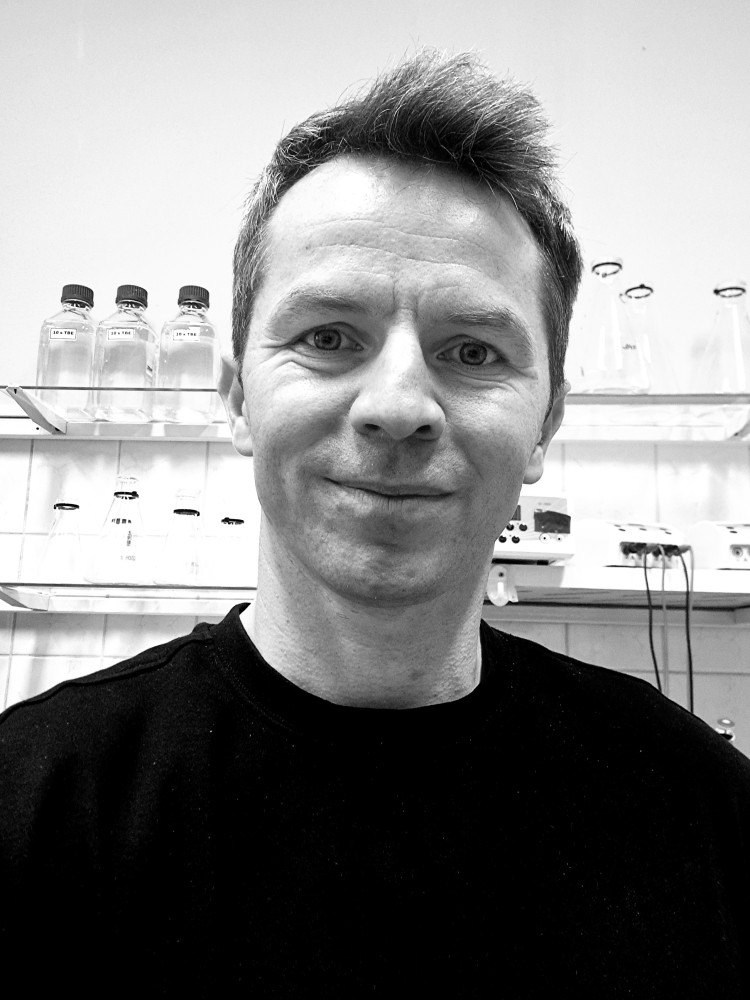 Seeds don’t leave germination to chance. Instead, they rely on sophisticated molecular quality management systems in which chromatin organisation and long non-coding RNAs (lncRNAs) monitor and adjust gene activity to match environmental cues, determining whether to germinate or remain dormant. The balance between dormancy and germination is tightly regulated by the DELAY OF GERMINATION 1 (DOG1) protein and the hormones abscisic acid (ABA), which promotes dormancy, and gibberellins (GA), which promote germination. During his talk, Sebastian Sacharowski will present how these epigenetic regulators maintain the seed-to-seedling transition, ensuring that plant life begins precisely at the right moment.
Seeds don’t leave germination to chance. Instead, they rely on sophisticated molecular quality management systems in which chromatin organisation and long non-coding RNAs (lncRNAs) monitor and adjust gene activity to match environmental cues, determining whether to germinate or remain dormant. The balance between dormancy and germination is tightly regulated by the DELAY OF GERMINATION 1 (DOG1) protein and the hormones abscisic acid (ABA), which promotes dormancy, and gibberellins (GA), which promote germination. During his talk, Sebastian Sacharowski will present how these epigenetic regulators maintain the seed-to-seedling transition, ensuring that plant life begins precisely at the right moment.
Sebastian graduated from the Poznań University of Economics and Business in 2010, and a year later joined the PhD program at the Institute of Biochemistry and Biophysics, Polish Academy of Sciences (PAS) in Warsaw. He studied how chromatin remodelling complexes affect Arabidopsis development. During this time, he also completed a short-term fellowship at the Warsaw Oncology Centre and received several research scholarships at the Max Planck Institute in Cologne. After obtaining his PhD, he joined the Laboratory of Seed Molecular Biology, where he studies lncRNAs in the context of seed dormancy. His main research focus is to understand how lncRNAs associate with chromatin and how chromatin structure influences gene expression.
Structure, action and evolution of gigantic bacterial roll-like structures
Speaker: Dr. Dukas Jurėnas, Université Libre de Bruxelles
Talk: Structure, action and evolution of gigantic bacterial roll-like structures
Time: 24.10.2025, 9:00 am
Venue: Intercollegiate Faculty of Biotechnology, Abrahama 58, hall 042B
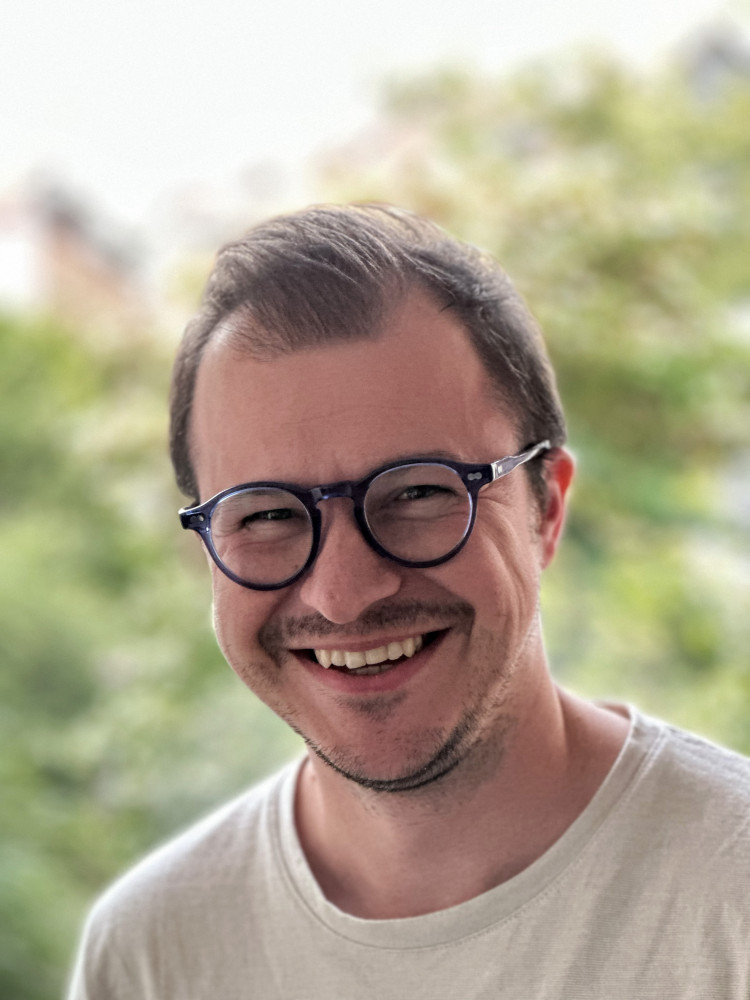
Dr. Dukas Jurėnas studies bacterial toxins, particularly those implicated in interbacterial competition and interaction with other microorganisms in the niche. He is a researcher and associated professor at Free Brussels University (ULB) in Belgium. After his studies in Vilnius University in Lithuania, he moved to Brussels University for PhD and then to CNRS-Marseille in France for a postdoc where he started to work with bacterial secretion systems and secreted effector proteins. Since 2022, he has established and independent research group at ULB, where he developed new model – Chryseobacterium, an environmental bacterium from phylum Bacteroidota. His team has identified molecular mechanisms and specific toxins that help these bacteria to compete against other microorganisms including competing bacterial species, protists, and nematodes. In his seminar, he will focus on extraordinary intracellular structures synthesized by a subpopulation of bacteria in defence against phagocytic predators.
Plant–Soil Microbial Interactions: From Molecular Mechanisms to Ecological Functions
Speaker: dr Mehdi Rashtbari, Christian-Albrechts-Universität zu Kiel (CAU), Germany
Talk: Plant–Soil Microbial Interactions: From Molecular Mechanisms to Ecological Functions
Time: 17.10.2025, 9:00 am
Venue: Intercollegiate Faculty of Biotechnology, Abrahama 58, hall 042B
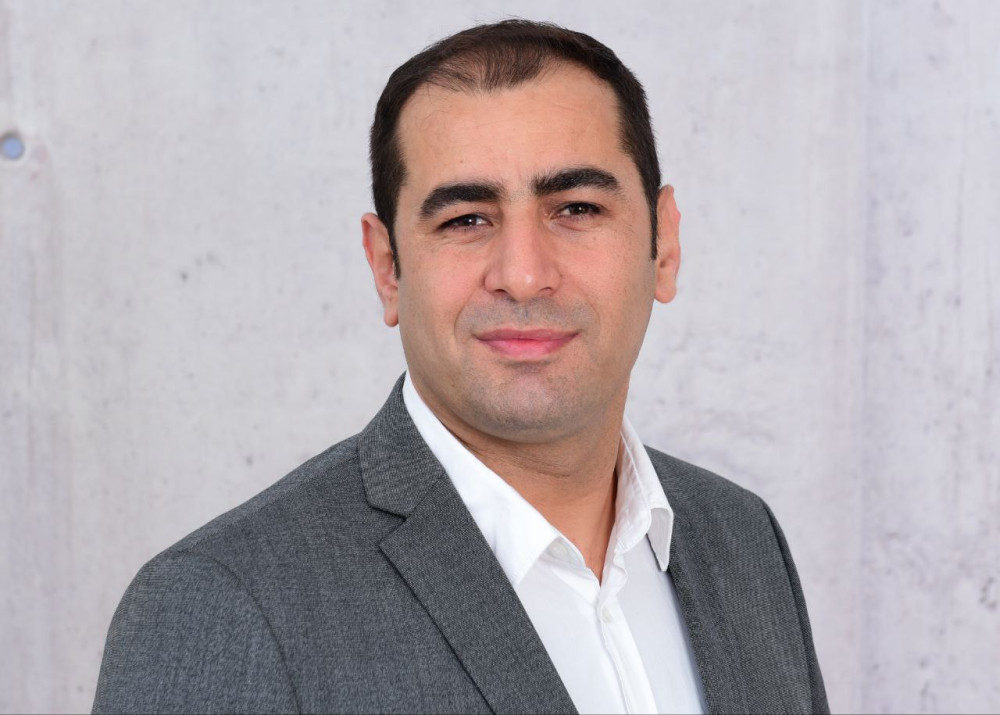 Dr. Mehdi Rashtbari is a soil microbial ecologist in the Department of Soil and Microbiome, led by Prof. Dr. Bahar S. Razavi at the Christian-Albrechts-University of Kiel, Germany. He earned his PhD in Soil and Plant Microbiome from Kiel University in 2024 and his MSc in Soil Biology and Biotechnology from the University of Tehran.
Dr. Mehdi Rashtbari is a soil microbial ecologist in the Department of Soil and Microbiome, led by Prof. Dr. Bahar S. Razavi at the Christian-Albrechts-University of Kiel, Germany. He earned his PhD in Soil and Plant Microbiome from Kiel University in 2024 and his MSc in Soil Biology and Biotechnology from the University of Tehran.
His research investigates how continuous wheat cultivation and climate stresses such as drought and warming reshape the rhizosphere-the narrow soil zone where roots and microbes interact most intensively. Dr. Rashtbari explores how soil legacy and environmental conditions influence enzyme activity, carbon flow, and microbial community dynamics in this vital interface. Using advanced tools such as glucose imaging, enzyme kinetics, and transcriptomics, his work reveals that monocropping weakens microbial functionality and alters plant sugar transport, while diversified cropping systems enhance rhizosphere resilience and soil health under changing climates.
Dr. Rashtbari has co-authored 15 peer-reviewed publications in journals including Soil Biology & Biochemistry, European Journal of Forest Research, and Soil Ecology Letters, as well as a book chapter. He is an active member of the European Geosciences Union (EGU) and the German Soil Science Society (DBG).
Bench to Bedside: Advancing Skin and Cartilage Tissue Engineering for Pediatric Patients
Speaker: Dr. Agnes Klar, Group Leader and Deputy Head at the Tissue Biology Research Unit (TBRU) at the University Children’s Hospital Zurich, Switzerland
Talk: Bench to Bedside: Advancing Skin and Cartilage Tissue Engineering for Pediatric Patients
Time: 10.10.2025, 9:00 am
Venue: Intercollegiate Faculty of Biotechnology, Abrahama 58, hall 042B
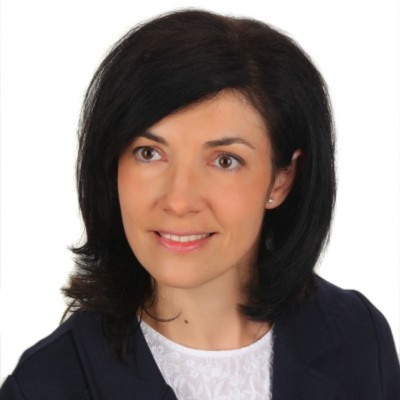 Agnes Klar is a leading researcher in regenerative medicine, specializing in skin and cartilage tissue engineering, wound healing, and tissue pathologies. She earned her MSc in Biological Sciences from the University of Konstanz (2009), her PhD from the University of Zurich (2014), and completed her habilitation at UZH in 2019.
Agnes Klar is a leading researcher in regenerative medicine, specializing in skin and cartilage tissue engineering, wound healing, and tissue pathologies. She earned her MSc in Biological Sciences from the University of Konstanz (2009), her PhD from the University of Zurich (2014), and completed her habilitation at UZH in 2019.
Her group develops tissue-like constructs that closely mimic native human physiology, with expertise in cell-matrix interactions, extracellular matrix deposition, and tissue maturation—particularly relevant for chondrogenic stem cell differentiation, 3D bioprinting, and engineered cartilage grafts.
Dr. Klar has contributed to the development of a patented autologous skin substitute currently in Phase III clinical trials for burn injuries. She leads three Innosuisse-funded innovation projects on vascularized skin grafts and adipose tissue models, and is developing a culture device for large cell-based transplants. Her SNSF-funded research explores stromal-immune interactions in chronic wounds and stem cell biology in skin regeneration. She will soon launch PHA-Cure, a Swiss-Polish bilateral project to develop PHA-based wound dressings for diabetic foot ulcers.
She has published 47 peer-reviewed articles (H-index: 22; ~1155 citations), holds two international patents, and actively contributes to international consortia including MSCA, COST, and FP7 initiatives. As an educator, she supervises students across academic levels and teaches in both the Faculty of Science and the Medical Faculty at UZH, while also mentoring PhD candidates in the Life Science Zurich Graduate School.
Cancer heterogeneity in vivo and ex vivo- challenges for immunotherapy
Speaker: prof. dr hab. Natalia Marek-Trzonkowska, International Centre for Cancer Vaccine Science (ICCVS), University of Gdańsk
Talk: Cancer heterogeneity in vivo and ex vivo- challenges for immunotherapy
Time: 06.06.2025, 9:00 am
Venue: Intercollegiate Faculty of Biotechnology, Abrahama 58, hall 042B
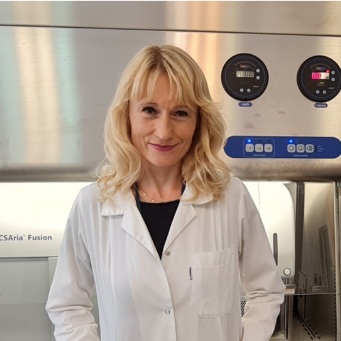 Prof. dr hab. Natalia Marek-Trzonkowska is the director of the International Centre for Cancer Vaccine Science (ICCVS) at the University of Gdańsk. Her research focuses on the clinical application of immune cells. She is the author of numerous publications and patents, including the first application of regulatory T cells (Tregs) in the treatment of type 1 diabetes in children. Currently, she has been working on cellular therapy for non-small cell lung cancer. She is a recipient of the Kościuszko Foundation's award, the Scholarship of the Minister of Science and Higher Education for Outstanding Young Scientists, and the Award of the Minister of Education and Science for Significant Achievements in Implementation Activities. The research conducted by prof. Marek- Trzonkowska has also been recognized with national and international societies, including the Polish-American Medical Society, the Polish Academy of Sciences, the International Society of Pediatric and Adolescent Diabetes (ISPAD), the European Federation of Immunological Societies (EFIS), and the International Islet and Pancreas Transplantation Association (ISPAD).
Prof. dr hab. Natalia Marek-Trzonkowska is the director of the International Centre for Cancer Vaccine Science (ICCVS) at the University of Gdańsk. Her research focuses on the clinical application of immune cells. She is the author of numerous publications and patents, including the first application of regulatory T cells (Tregs) in the treatment of type 1 diabetes in children. Currently, she has been working on cellular therapy for non-small cell lung cancer. She is a recipient of the Kościuszko Foundation's award, the Scholarship of the Minister of Science and Higher Education for Outstanding Young Scientists, and the Award of the Minister of Education and Science for Significant Achievements in Implementation Activities. The research conducted by prof. Marek- Trzonkowska has also been recognized with national and international societies, including the Polish-American Medical Society, the Polish Academy of Sciences, the International Society of Pediatric and Adolescent Diabetes (ISPAD), the European Federation of Immunological Societies (EFIS), and the International Islet and Pancreas Transplantation Association (ISPAD).
Prof. Marek- Trzonkowska will provide a lecture entitled “Cancer heterogeneity in vivo and ex vivo- challenges for immunotherapy”. During this talk she will discuss importance of understanding the diversity of populations comprising the cancer microenvironment, as well as the impact of preclinical models on cancer immunogenicity.
Mycorrhizal fungi in perennial agroecosystems: biodiversity, functionality and technological innovations
Speaker: prof. dr hab. Katarzyna Hrynkiewicz, Nicolaus Copernicus University (NCU) in Toruń
Talk: Mycorrhizal fungi in perennial agroecosystems: biodiversity, functionality and technological innovations
Time: 16.05.2025, 9:00 am
Venue: Intercollegiate Faculty of Biotechnology, Abrahama 58, hall 042B
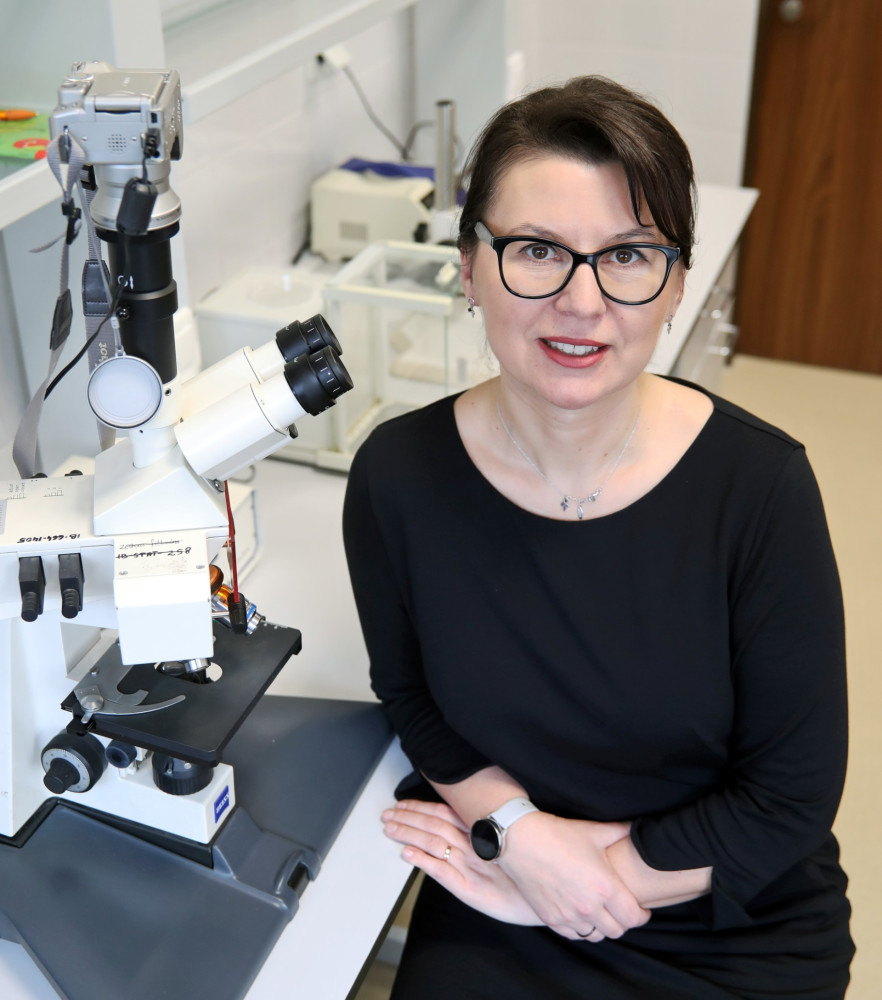 Katarzyna Hrynkiewicz is a Professor and Head of the Department of Microbiology at the Faculty of Biological and Veterinary Sciences, Nicolaus Copernicus University (NCU) in Toruń, Poland. She obtained her MSc in Biology with a specialization in molecular biology from NCU, and later earned her PhD in Biology at the same institution. She completed her habilitation at the University of Rostock, Germany, focusing on the role of microorganisms associated with the rhizosphere of willows in adverse soil conditions. In 2018, she was awarded the title of Professor.
Katarzyna Hrynkiewicz is a Professor and Head of the Department of Microbiology at the Faculty of Biological and Veterinary Sciences, Nicolaus Copernicus University (NCU) in Toruń, Poland. She obtained her MSc in Biology with a specialization in molecular biology from NCU, and later earned her PhD in Biology at the same institution. She completed her habilitation at the University of Rostock, Germany, focusing on the role of microorganisms associated with the rhizosphere of willows in adverse soil conditions. In 2018, she was awarded the title of Professor.
Following her doctoral studies, she conducted postdoctoral research under a Marie Curie Fellowship at the University of Rostock. Her scientific work centers on environmental microbiology, including plant-microbe interactions, the use of mycorrhizal and endophytic microorganisms in phytoremediation, plant stress tolerance, and soil microbiome diversity. She has coordinated and participated in numerous national and international projects, including EU Horizon 2020, BiodivERsA, and NCN grants. Her professional achievements have been recognized with multiple awards from NCU’s Rector.
Prof. Hrynkiewicz has authored numerous peer-reviewed scientific publications and actively contributes to European scientific networks, serving as a Management Committee member and Working Group leader in several COST Actions. Between 2019 and 2024, she was the Director of the Interdisciplinary Doctoral School Academia Copernicana at NCU, promoting international collaboration and innovative doctoral education.
She maintains extensive collaborations with leading research institutions through participation in international scientific projects and fellowships, including stays at the University of Rostock, Eberhard Karls University of Tübingen, and the Leibniz Institute of Vegetable and Ornamental Crops. Her current projects address microbial applications in agriculture, restoration of degraded ecosystems, plant health improvement, and the use of beneficial microorganisms in the mitigation of biotic and abiotic stresses.
Translation in Bacillus subtilis is spatially and temporally coordinated during sporulation
Speaker: dr hab. Agata Starosta, The Institute of Biochemistry and Biophysics of the Polish Academy of Sciences
Talk: Translation in Bacillus subtilis is spatially and temporally coordinated during sporulation
Time: 25.04.2025, 9:00 am
Venue: Intercollegiate Faculty of Biotechnology, Abrahama 58, hall 042B
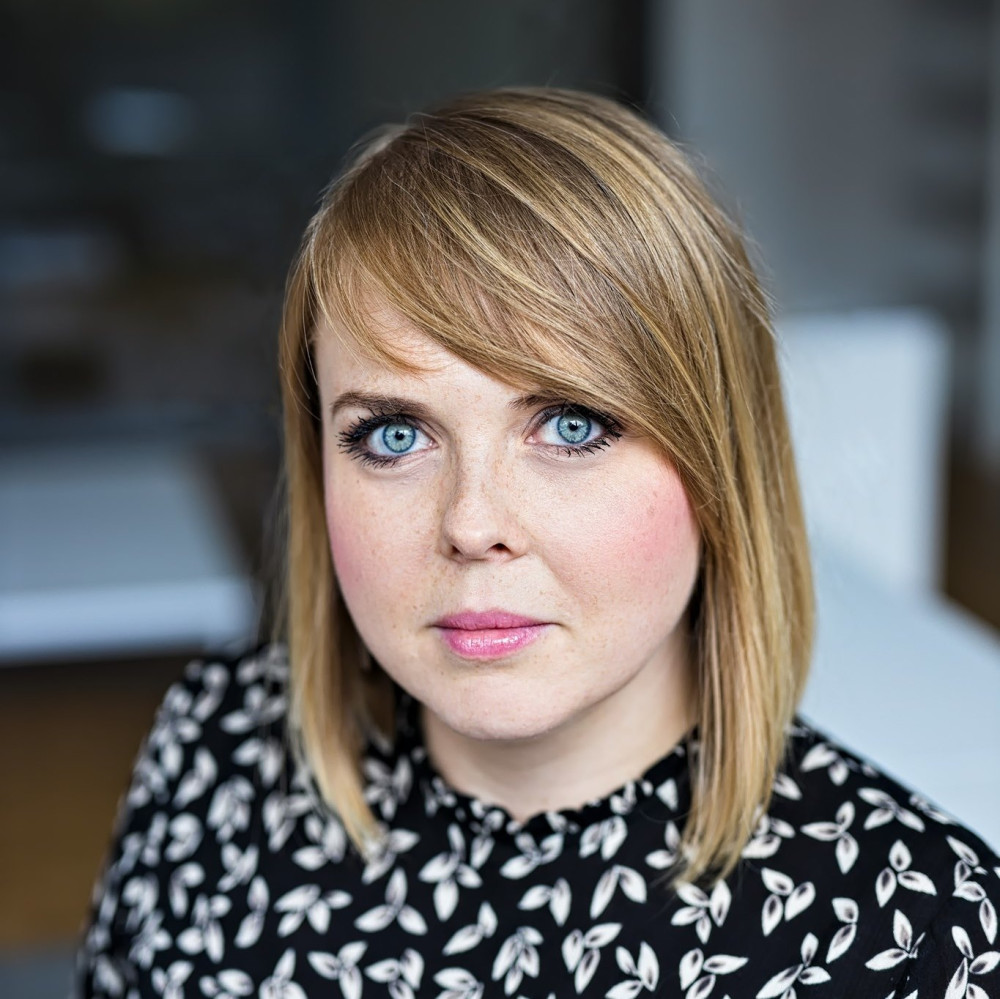 Agata Starosta completed her PhD in the laboratory of Prof. Daniel Wilson at Gene Center, Ludwig-Maximillians University in Munich, Germany. Later on, she was awarded an AXA Research PostDoc Fellowship to study the role of translational factor EF-P in protein biosynthesis, and a Marie Skłodowska-Curie Individual Fellowship to study the regulation of sporulation in Bacillus subtilis on the translational level. After receiving the First Team grant from the Foundation for Polish Science and EMBO Installation grant, she moved to Poland, and as a Principal Investigator at Maria Curie-Skłodowska University in Lublin, to start her own group researching translation regulation and specialized ribosomes in Bacillus subtilis. In Spring 2021, she moved her lab to the Institute of Biochemistry and Biophysics of Polish Academy of Science in Warsaw to start new projects on the regulation of gene expression in antibiotic-producing soil bacteria.
Agata Starosta completed her PhD in the laboratory of Prof. Daniel Wilson at Gene Center, Ludwig-Maximillians University in Munich, Germany. Later on, she was awarded an AXA Research PostDoc Fellowship to study the role of translational factor EF-P in protein biosynthesis, and a Marie Skłodowska-Curie Individual Fellowship to study the regulation of sporulation in Bacillus subtilis on the translational level. After receiving the First Team grant from the Foundation for Polish Science and EMBO Installation grant, she moved to Poland, and as a Principal Investigator at Maria Curie-Skłodowska University in Lublin, to start her own group researching translation regulation and specialized ribosomes in Bacillus subtilis. In Spring 2021, she moved her lab to the Institute of Biochemistry and Biophysics of Polish Academy of Science in Warsaw to start new projects on the regulation of gene expression in antibiotic-producing soil bacteria.
Her work has resulted in 40 international peer-reviewed research articles, a collaboration with a Nobel Prize laureate Prof. Tom Steitz. She has experience in combining biochemistry with structural biology, genetics, microscopy and high-throughput approaches, especially next-generation sequencing techniques to study complex processes in bacterial cells, especially protein synthesis, antibiotics targeting translation, antibiotic resistance mechanisms and translation regulation.
Targeting Protein-Protein Interactions in Molecular Chaperone Networks
Speaker: Prof. Jason E. Gestwicki, Department of Pharmaceutical Chemistry, Institute for Neurodegenerative Diseases (IND), University of California San Francisco, USA
Talk: Targeting Protein-Protein Interactions in Molecular Chaperone Networks
Time: 07.04.2025, 15:00 (3:00 pm)
Venue: Intercollegiate Faculty of Biotechnology, Abrahama 58, hall 042B
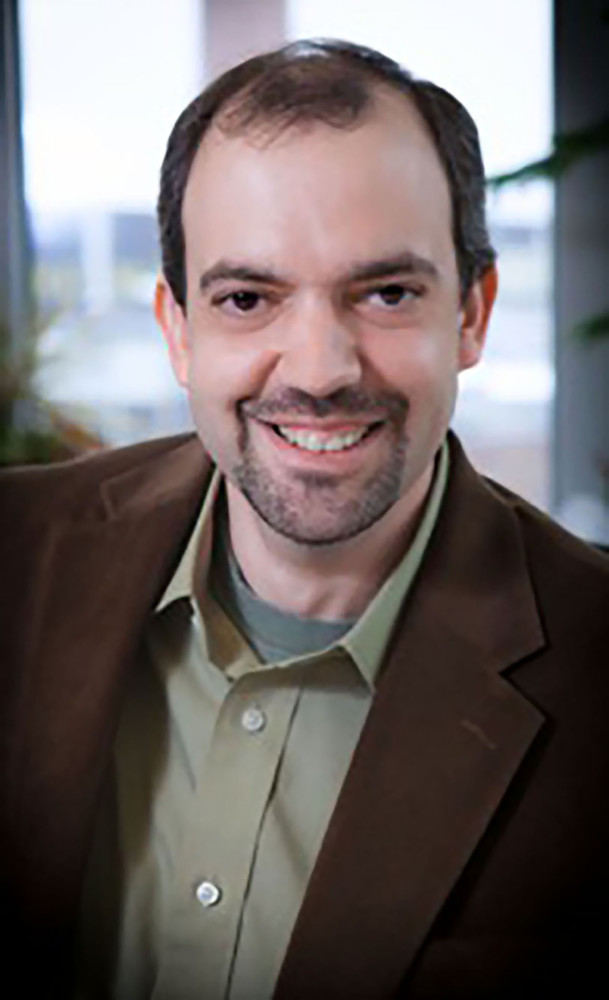
Jason E. Gestwicki is a Professor in the Department of Pharmaceutical Chemistry and the Institute for Neurodegenerative Diseases (IND) at the University of California San Francisco (UCSF). Professor Gestwicki earned a B.S. in Chemistry from the State University of New York at Fredonia and a Ph.D. in Biochemistry from University of Wisconsin-Madison before completing a postdoctoral fellowship at Stanford University. He began his independent group at the University of Michigan in 2005, where his laboratory developed chemical biology approaches to studying the roles of molecular chaperones in disease. His group developed special expertise in building drug-like small molecules that target protein-protein interactions between molecular chaperones. In 2013, he relocated to UCSF where his laboratory continues to study the mechanisms of protein homeostasis, with a focus on age-associated diseases of protein misfolding. Dr. Gestwicki has published 220+ manuscripts and is an inventor on 15+ patents. He has been active in biotechnology startups, including Amplyx (acquired by Pfizer; 2021) and Viewpoint (acquired by Visus; 2022), and is a consultant for venture capital, pharmaceutical and biotechnology firms. He is an elected Fellow of the American Association for the Advancement of Science (AAAS) and the Cell Stress Society International (CSSI). He was awarded the 2023 E. Thomas Kaiser Award from the Protein Society.
The strong and the fast: cooperation among intracellular Salmonella
Speaker: Dr. Ondrej Cerny, Czech Academy of Sciences in Prague
Talk: The strong and the fast: cooperation among intracellular Salmonella
Time: 04.04.2025, 9:00 am
Venue: Intercollegiate Faculty of Biotechnology, Abrahama 58, hall 042B
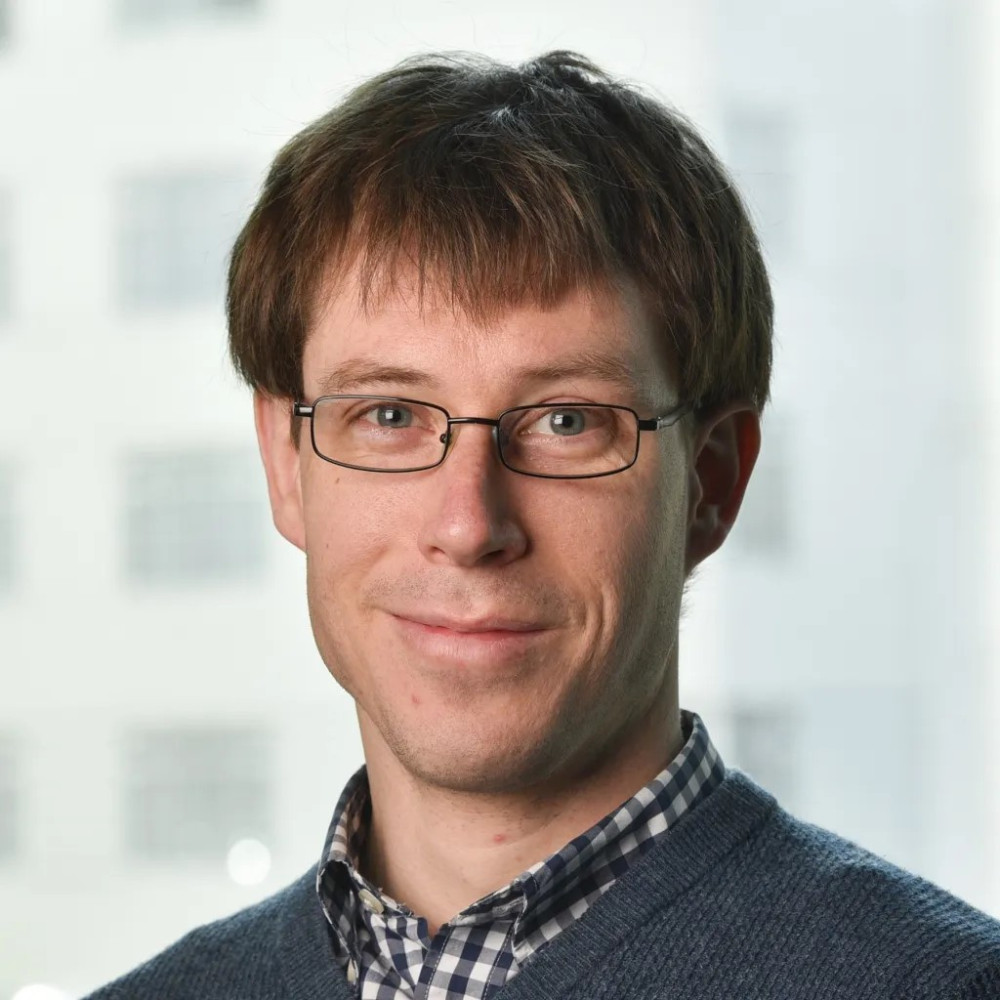 Dr. Ondrej Cerny studies interaction of pathogenic bacteria with their host at single cell level. He currently works at the Institute of Microbiology of the Czech Academy of Sciences in Prague, the Czech Republic. After his PhD, he started working on effector proteins involved in Salmonella intracellular live style in the lab of David Holden at Imperial College London, the United Kingdom. He studied Salmonella interaction with dendritic cells and the influence of the effector protein SteD on cell surface major histocompatibility complex class II (MHCII) and immunological synapse between infected dendritic cells and T cells. He identified the immunological synapse and its destabilization as a target for pathogenic bacteria allowing them to influence diverse T cell subsets. He moved back to the Institute of Microbiology of the Czech Academy of Sciences in 2021. Since 2025, he heads his own laboratory focusing on intracellular lifestyles of Salmonella. In his seminar, he will focus on cooperative virulence among distinct subpopulations of intracellular Salmonella.
Dr. Ondrej Cerny studies interaction of pathogenic bacteria with their host at single cell level. He currently works at the Institute of Microbiology of the Czech Academy of Sciences in Prague, the Czech Republic. After his PhD, he started working on effector proteins involved in Salmonella intracellular live style in the lab of David Holden at Imperial College London, the United Kingdom. He studied Salmonella interaction with dendritic cells and the influence of the effector protein SteD on cell surface major histocompatibility complex class II (MHCII) and immunological synapse between infected dendritic cells and T cells. He identified the immunological synapse and its destabilization as a target for pathogenic bacteria allowing them to influence diverse T cell subsets. He moved back to the Institute of Microbiology of the Czech Academy of Sciences in 2021. Since 2025, he heads his own laboratory focusing on intracellular lifestyles of Salmonella. In his seminar, he will focus on cooperative virulence among distinct subpopulations of intracellular Salmonella.
Mechanisms of clathrin-mediated vesicular trafficking in plants
Speaker: Dr Maciek Adamowski - Intercollegiate Faculty of Biotechnology of UG & MUG
Talk: Mechanisms of clathrin-mediated vesicular trafficking in plants
Time: 14.03.2025, 9:00 am
Venue: Intercollegiate Faculty of Biotechnology, Abrahama 58, hall 042B
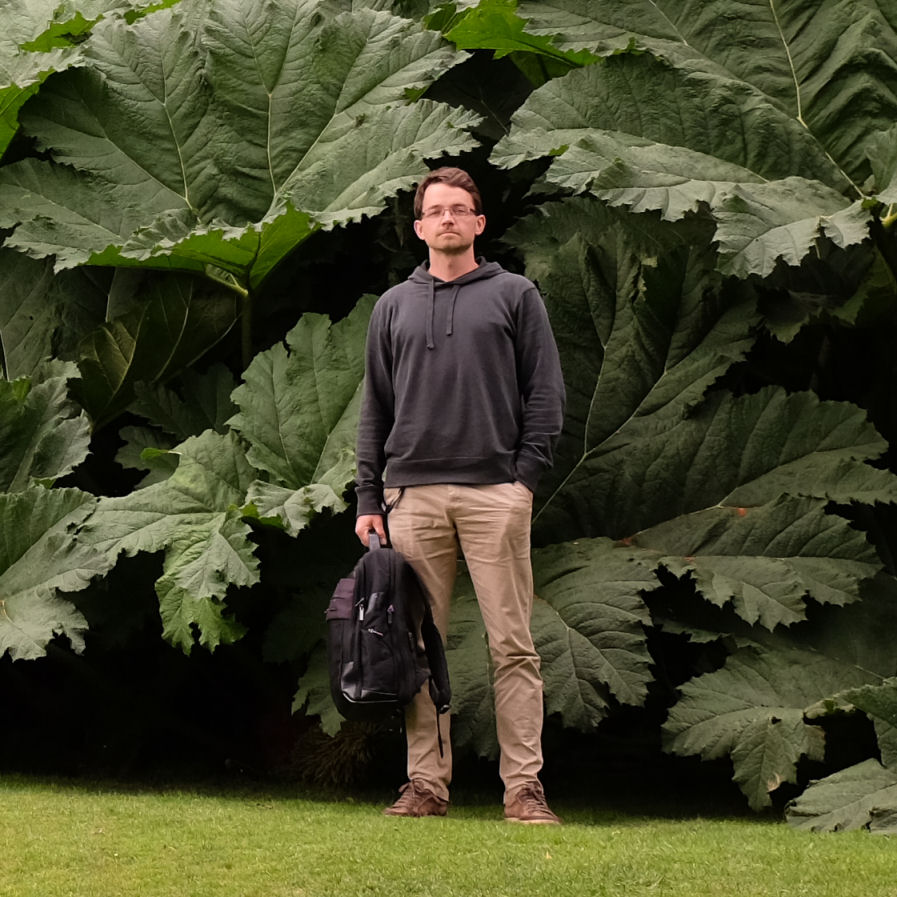 The endomembrane system is one of the defining features of all eukaryotic cells. Vesicular traffic between endomembrane compartments, as well as to and from the plasma membrane, is essential for cellular function. Among the best studied trafficking pathways is endocytosis in vesicles coated with the coat protein clathrin. Clathrin-mediated endocytosis is relatively well understood in mammalian and yeast models, while studies in plants continue to reveal novel and unique aspects of its molecular mechanism. In his talk, Maciek Adamowski will present findings on clathrin-mediated trafficking in Arabidopsis thaliana, using approaches of protein-protein interaction study, genetics and genetic engineering, and advanced live imaging.
The endomembrane system is one of the defining features of all eukaryotic cells. Vesicular traffic between endomembrane compartments, as well as to and from the plasma membrane, is essential for cellular function. Among the best studied trafficking pathways is endocytosis in vesicles coated with the coat protein clathrin. Clathrin-mediated endocytosis is relatively well understood in mammalian and yeast models, while studies in plants continue to reveal novel and unique aspects of its molecular mechanism. In his talk, Maciek Adamowski will present findings on clathrin-mediated trafficking in Arabidopsis thaliana, using approaches of protein-protein interaction study, genetics and genetic engineering, and advanced live imaging.
Maciek Adamowski graduated in Plant Biotechnology from Warsaw University of Life Sciences and conducted PhD studies as well as postdoctoral training in the group of Prof. Jiří Friml at Flanders Institute of Biotechnology and Institute of Science and Technology Austria. Upon returning to Poland, he worked at Warsaw University of Life Sciences and at Plant Breeding and Acclimatization Institute before joining Intercollegiate Faculty of Biotechnology of UG & MUG in August of 2024 as Group Leader of the newly established Laboratory of Plant Cell Biology. He works on selected molecular components and pathways of intracellular trafficking in plants, highlighting their mechanisms, cellular functions, and roles in plant body development.
Microbiomes in agroecosystems – the importance of the plant holobiont and soil microbiomes for the development of sustainable strategies of crop cultivation
Speaker: prof. dr hab. Magdalena Frąc - Institute of Agrophysics, Polish Academy of Sciences in Lublin
Talk: Microbiomes in agroecosystems - the importance of the plant holobiont and soil microbiomes for the development of sustainable strategies of crop cultivation
Time: 28.02.2025, 9:00 am
Venue: Intercollegiate Faculty of Biotechnology, Abrahama 58, hall 042B
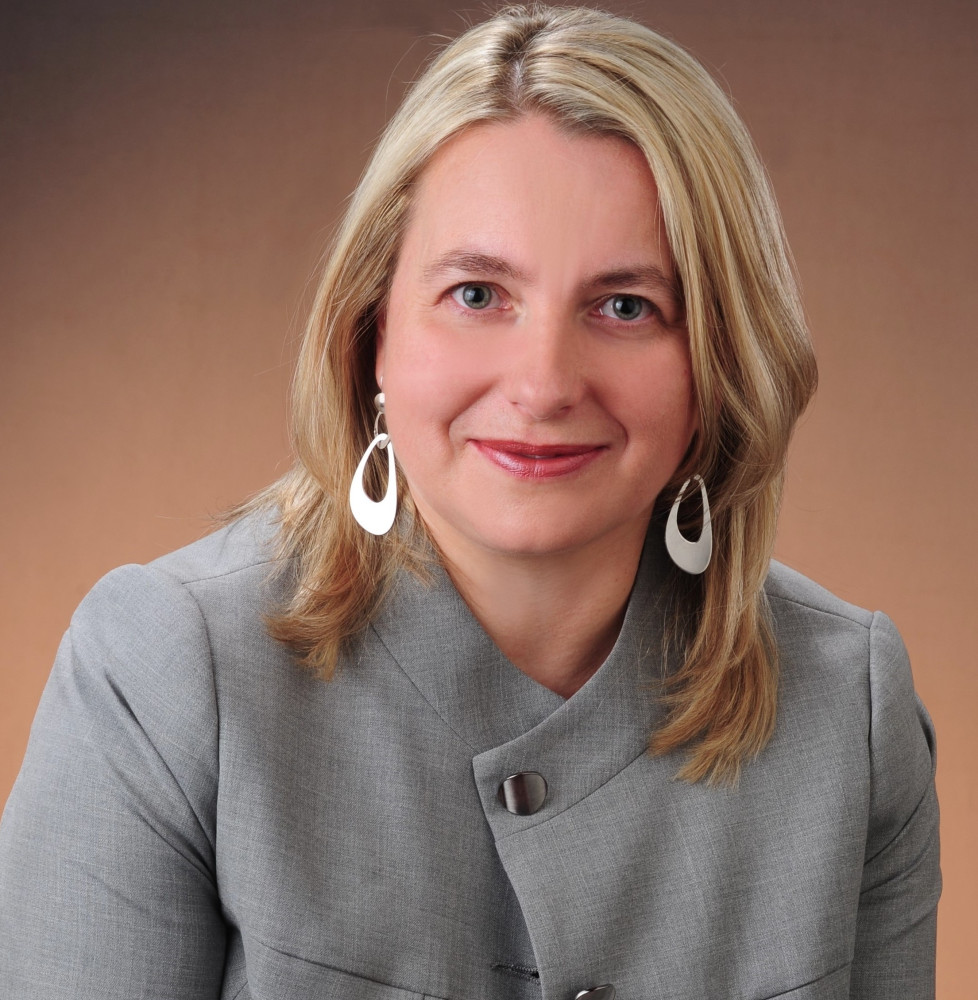 Magdalena Frąc is the Professor in agricultural sciences at the Institute of Agrophysics, Polish Academy of Sciences in Lublin, Poland. She is the Head of Department of Soil and Plant System and Supervisor of her Laboratory of Molecular and Environmental Microbiology, which organised. She set up and is chair-holder of the Molecular and Environmental Microbiology group with >15 years of experience in research in microbial activity and biochemical properties, including functional and genetic diversity of soil microbial communities. She is also focused on agricultural organic waste utilization, bioproducts and biofertilizers for agroecology, microbial indicators of soil quality and microbiological markers of ecological soil status and soil health. Her interests concern plant-soil-microbiome interactions, plant holobiont concept, and biotechnological solutions for diagnostics, control and monitoring of key fungal pathogens in sustainable agriculture. Soil mycology, phytopathogenic fungi and heat-resistant fungi are also of her interest. Other relevant experiences include coordination and implementation of national (NCN, NCBR, MNSzW) and international (Horizon Europe, H2020, EJP SOIL, ERA-NET SusCrop, Eastern Poland Programme) research and infrastructure projects (~10 Mio €).
Magdalena Frąc is the Professor in agricultural sciences at the Institute of Agrophysics, Polish Academy of Sciences in Lublin, Poland. She is the Head of Department of Soil and Plant System and Supervisor of her Laboratory of Molecular and Environmental Microbiology, which organised. She set up and is chair-holder of the Molecular and Environmental Microbiology group with >15 years of experience in research in microbial activity and biochemical properties, including functional and genetic diversity of soil microbial communities. She is also focused on agricultural organic waste utilization, bioproducts and biofertilizers for agroecology, microbial indicators of soil quality and microbiological markers of ecological soil status and soil health. Her interests concern plant-soil-microbiome interactions, plant holobiont concept, and biotechnological solutions for diagnostics, control and monitoring of key fungal pathogens in sustainable agriculture. Soil mycology, phytopathogenic fungi and heat-resistant fungi are also of her interest. Other relevant experiences include coordination and implementation of national (NCN, NCBR, MNSzW) and international (Horizon Europe, H2020, EJP SOIL, ERA-NET SusCrop, Eastern Poland Programme) research and infrastructure projects (~10 Mio €).
New vulnerability in colorectal cancer? Uncoupling of transcription termination from RNA processing
Speaker: prof. UAM dr hab. Kinga Kamieniarz-Gdula, Adam Mickiewicz University, Poznań
Talk: New vulnerability in colorectal cancer? Uncoupling of transcription termination from RNA processing
Time: 07.02.2025, 9:00 am
Venue: Intercollegiate Faculty of Biotechnology, Abrahama 58, hall 042B
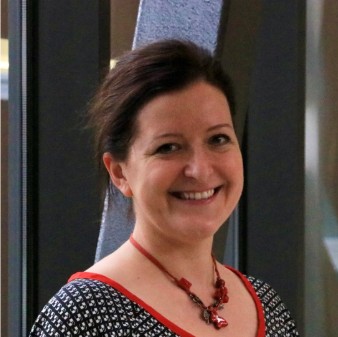 Kinga finished her undergraduate studies at Adam Mickiewicz University in Poznań. She then did her PhD as well as a short postdoc in the field of Chromatin and Epigenetics with Rob Schneider at the Max-Planck-Institute in Freiburg, Germany. After that she moved to the University of Oxford to join Nick Proudfoot's lab, supported by a Marie Skłodowska-Curie Fellowship. In Oxford, Kinga started studying the links between transcription termination and RNA processing, and became fascinated by gene ends. After 13 years abroad, Kinga returned to Poznań to set up her own research group in October 2019. Her team is generously supported by NAWA Polish Returns, NCN SONATA BIS, EMBO Installation Grant and ERC Starting Grant.
Kinga finished her undergraduate studies at Adam Mickiewicz University in Poznań. She then did her PhD as well as a short postdoc in the field of Chromatin and Epigenetics with Rob Schneider at the Max-Planck-Institute in Freiburg, Germany. After that she moved to the University of Oxford to join Nick Proudfoot's lab, supported by a Marie Skłodowska-Curie Fellowship. In Oxford, Kinga started studying the links between transcription termination and RNA processing, and became fascinated by gene ends. After 13 years abroad, Kinga returned to Poznań to set up her own research group in October 2019. Her team is generously supported by NAWA Polish Returns, NCN SONATA BIS, EMBO Installation Grant and ERC Starting Grant.
Neuro-immune interactions in the gut: circadian control of regulatory T cells by enteric neurons
Speaker: dr Tomasz Ahrends, Rockefeller University, New York, USA
Talk: Neuro-immune interactions in the gut: circadian control of regulatory T cells by enteric neurons
Time: 17.01.2025, 9:00 am
Venue: Intercollegiate Faculty of Biotechnology, Abrahama 58, hall 042B
 Multiple intestinal functions including nutrient absorption and peristalsis display regional specialization as well as time-of-day effect under the control of circadian rhythm. We investigated the role of these adaptations in the intestinal immune system and the response to dietary antigens. We found that regulatory T (Treg) cells in the murine small intestine expand during the active phase and contract during the rest phase. Treg cell expansion was supported by eosinophils and clock gene-dependent rhythmic control of enteric neurons. The circadian entrainment of these changes depended on light exposure but not on the time of food intake. This neuro-immune pathway affected immune responses to food, so that oral challenges during the night resulted in more protective tolerance. These data suggest that circadian and regional adaptations in the intestine augment regulatory responses during the active phase. Dr. Tomasz Ahrends obtained his PhD at the Netherlands Cancer Institute. Under the supervision of Prof. Jannie Borst he studied molecular mechanisms by which primary and memory CD8+ T cell responses are optimized by CD4+ T cell help. In 2018 he joined the laboratory of Dr. Daniel Mucida at the Rockefeller University, New York, studying neuro-immune interactions in the gut. In his postdoctoral research he has described how certain enteric infections induce a state of tissue tolerance, preventing neuronal loss during subsequent challenges. He then became interested in how circadian rhythm shapes regional immune responses in the small intestine. Dr. Ahrends is a recipient of the Human Frontier Science Program fellowship and the 2022 Breakout Prize for Junior Investigators.
Multiple intestinal functions including nutrient absorption and peristalsis display regional specialization as well as time-of-day effect under the control of circadian rhythm. We investigated the role of these adaptations in the intestinal immune system and the response to dietary antigens. We found that regulatory T (Treg) cells in the murine small intestine expand during the active phase and contract during the rest phase. Treg cell expansion was supported by eosinophils and clock gene-dependent rhythmic control of enteric neurons. The circadian entrainment of these changes depended on light exposure but not on the time of food intake. This neuro-immune pathway affected immune responses to food, so that oral challenges during the night resulted in more protective tolerance. These data suggest that circadian and regional adaptations in the intestine augment regulatory responses during the active phase. Dr. Tomasz Ahrends obtained his PhD at the Netherlands Cancer Institute. Under the supervision of Prof. Jannie Borst he studied molecular mechanisms by which primary and memory CD8+ T cell responses are optimized by CD4+ T cell help. In 2018 he joined the laboratory of Dr. Daniel Mucida at the Rockefeller University, New York, studying neuro-immune interactions in the gut. In his postdoctoral research he has described how certain enteric infections induce a state of tissue tolerance, preventing neuronal loss during subsequent challenges. He then became interested in how circadian rhythm shapes regional immune responses in the small intestine. Dr. Ahrends is a recipient of the Human Frontier Science Program fellowship and the 2022 Breakout Prize for Junior Investigators.
Microbiota-derived bile acid ameliorates lung inflammation through metabolic rewiring of alveolar macrophages
Speaker: Dr Tomasz Wypych, Nencki Institute of Experimental Biology, Warsaw
Talk: Microbiota-derived bile acid ameliorates lung inflammation through metabolic rewiring of alveolar macrophages
Time: 06.12.2024, 9:00 am
Venue: Intercollegiate Faculty of Biotechnology, Abrahama 58, hall 042B
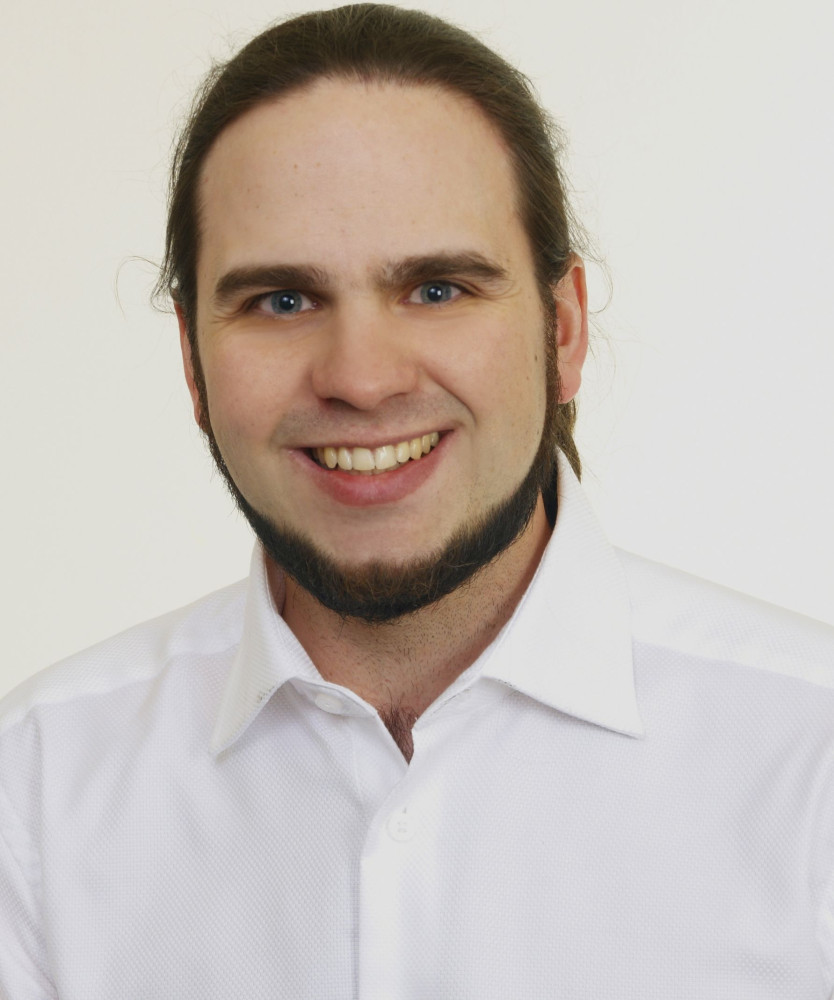
The gut microbiota profoundly shapes our immunity, acting locally in the gut and distally in other organs, such as the lungs . These wide ranging effects are achieved, at least in part, through microbial metabolites released into circulation. Secondary bile acids, which are derived from the transformation of host-derived bile acids by the gut microbiota, have recently emerged as potent anti-inflammatory mediators in the intestine, affecting the differentiation of CD4+ T cells and the function of dendritic cells. Despite this, it remains unclear which bile acid species display the most pronounced effects and what mechanisms are implicated.To fill in this gap, we comprehensively screened a library of primary, conjugated, and secondary bile acids for their ability to suppress the inflammatory response in the airways. We identified one particular species belonging to secondary bile acids (hereinafter referred to as “the Metabolite X” due to pending patent application), which profoundly inhibited the inflammatory response in the lungs. Met. X acted through Sphingosine-1-phosphate receptor 2 (S1PR2) to induce metabolic rewiring of alveolar macrophages, dampening the production of chemokines (predominantly CXCL9, CXCL10, and CXCL11), and reactive oxygen species. Collectively, our data identify the microbiota-dependent secondary bile acid that ameliorates lung inflammation through S1PR2-dependent metabolic rewiring of alveolar macrophages.
Dr inż. Tomasz Wypych is the head of the Host-Microbiota Laboratory at the Nencki Institute of Experimental Biology. He obtained his PhD in 2016 from the University of Bern, under the supervision of Prof. Federica Sallusto. His PhD thesis concerned the role of B cells as antigen presenting cells in asthma. He then completed his postdoctoral training at Lausanne University Hospital and Monash University focusing on the cross-talk between host cells and the microbiota in shaping susceptibility to asthma. His current research revolves around the effects of microbial metabolites on immunity. Major scientific achievements of Dr. Wypych include publication of 17 peer-reviewed articles in the area of immunology and microbiome. He is also an author of 2 patent applications and secured funding for 5 major grants (IDEAS grant, NHMRC Australia; Sonata grant, NCN Poland; OPUS grant, NCN Poland, First Team FENG grant, FNP Poland and OPUS+LAP grant, NCN, Poland and SNSF, Switzerland). Finally, he was awarded the Scholarship from the Ministry of Science and Education for Outstanding Young Scientists.
Development of innovative approaches to control bacterial plant pathogens and impair the spread of multidrug resistance in the natural environment
Speaker: dr Agata Motyka-Pomagruk - Research and Development Laboratory, Laboratory of Plant Protection and Biotechnology, Intercollegiate Faculty of Biotechnology UG&MUG
Talk: Development of innovative approaches to control bacterial plant pathogens and impair the spread of multidrug resistance in the natural environment
Time: 29.11.2024, 9:00 am
Venue: Intercollegiate Faculty of Biotechnology, Abrahama 58, hall 042B
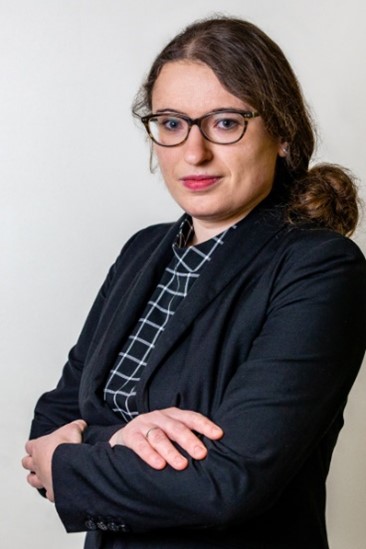 Dr. Agata Motyka-Pomagruk works as an assistant professor and deputy quality manager at the accredited by Polish Centre for Accreditation for compliance with ISO 17025 and certified according to ISO 14001 Research & Development Laboratory of Intercollegiate Faculty of Biotechnology University of Gdańsk and Medical University of Gdańsk. Co-author of 42 scientific publications and 4 book chapters, principal investigator of Preludium 11 (National Science Centre in Poland), executor in other 22 projects, completed research internships at Institut National des Sciences Appliquées (Lyon, France), University of Florence (Italy) and Norwegian Institute of Bioeconomy Research (As, Norway), co-author of the implementation, 5 national patents and 7 patent applications (including two international ones), scholarship holder of the Ministry of Science and Higher Education in the competition for outstanding young scientists (2023), awarded by Prime Minister for outstanding doctoral dissertation (2020), co-author and author of over 84 conference reports, president of Gdańsk Department of Polish Phytopathological Society.
Dr. Agata Motyka-Pomagruk works as an assistant professor and deputy quality manager at the accredited by Polish Centre for Accreditation for compliance with ISO 17025 and certified according to ISO 14001 Research & Development Laboratory of Intercollegiate Faculty of Biotechnology University of Gdańsk and Medical University of Gdańsk. Co-author of 42 scientific publications and 4 book chapters, principal investigator of Preludium 11 (National Science Centre in Poland), executor in other 22 projects, completed research internships at Institut National des Sciences Appliquées (Lyon, France), University of Florence (Italy) and Norwegian Institute of Bioeconomy Research (As, Norway), co-author of the implementation, 5 national patents and 7 patent applications (including two international ones), scholarship holder of the Ministry of Science and Higher Education in the competition for outstanding young scientists (2023), awarded by Prime Minister for outstanding doctoral dissertation (2020), co-author and author of over 84 conference reports, president of Gdańsk Department of Polish Phytopathological Society.
In this seminar, Dr. A. Motyka-Pomagruk will present accomplishments forming her application for habilitation that are focused on three topics: i) increasing knowledge on genomics and phenotypic characteristics of phytopathogenic bacteria from the Pectobacteriaceae family, ii) development of innovative methods for controlling bacterial plant pathogens, based on direct or indirect use of cold atmospheric plasmas and iii) examination of innovative methods of antibiotic degradation using cold atmospheric plasmas in order to limit development and spread of multidrug resistance in the natural environment. Her main research interests involve broadly understood environmental and clinical microbiology, phytopathology, comparative genomics, bioinformatics, statistical analyzes and visualization of biological data, methods of detecting, identifying and eradicating bacterial pathogens.
Functional connection between the transcribing bunyaviral polymerase and the translating ribosome
Speaker: Dr Piotr Gerlach, The International Institute of Molecular Mechanisms and Machines Polish Academy of Sciences, Warsaw
Talk: Functional connection between the transcribing bunyaviral polymerase and the translating ribosome
Time: 15.11.2024, 9:00 am
Venue: Intercollegiate Faculty of Biotechnology, Abrahama 58, hall 042B
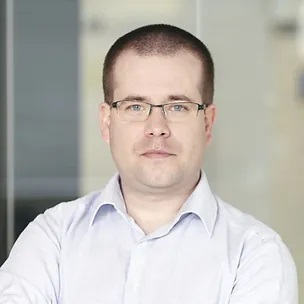 Dr. Piotr Gerlach is heading the Laboratory of Structural Virology at Imol Polish Academy of Sciences. He joined IMol in 2021 within the frame of the FNP-founded ReMedy IRAP. Originally from Warsaw, during his PhD in Dr. Stephen Cusack’s group at EMBL in Grenoble, he succeeded in determining the first atomic structure of a bunyaviral L protein polymerase. Securing an EMBO Long Term Fellowship, he joined Prof. Elena Conti’s lab at the Max Planck Institute of Biochemistry in Munich, where he used cryo-EM to study multi-subunit complexes involved in RNA metabolism. Dr. Gerlach’s group at Imol, supported by EMBO IG and NCN SONATA BIS grants, studies how infectious RNA viruses reorganize and exploit cellular translation.
Dr. Piotr Gerlach is heading the Laboratory of Structural Virology at Imol Polish Academy of Sciences. He joined IMol in 2021 within the frame of the FNP-founded ReMedy IRAP. Originally from Warsaw, during his PhD in Dr. Stephen Cusack’s group at EMBL in Grenoble, he succeeded in determining the first atomic structure of a bunyaviral L protein polymerase. Securing an EMBO Long Term Fellowship, he joined Prof. Elena Conti’s lab at the Max Planck Institute of Biochemistry in Munich, where he used cryo-EM to study multi-subunit complexes involved in RNA metabolism. Dr. Gerlach’s group at Imol, supported by EMBO IG and NCN SONATA BIS grants, studies how infectious RNA viruses reorganize and exploit cellular translation.
Translation is one of the major sites of the virus-host battlefront. On the one hand, infected cells shut down most of the translation, activating innate immune and integrated stress response pathways at the same time. At the same time, RNA viruses, being unconditionally dependent on cellular protein synthesis machinery, use a range of strategies to reorganize and exploit cellular translation, forcing ribosomes to translate viral mRNA. Dr. Gerlach’s group is particularly interested in bunyaviruses – a large and understudied group of segmented, negative-strand RNA viruses. In his lecture, he will cover functional and structural aspects of the bunyaviral L protein polymerases and he will discuss the preliminary insights into the bunyaviral transcription-translation coupling mechanism.
The interplay of mtDNA maintenance proteins and mtRNA homeostasis, and how to study it
Speaker: Dr. Hans Spelbrink, Radboud University Medical Center, Nijmegen, the Netherlands
Talk: The interplay of mtDNA maintenance proteins and mtRNA homeostasis, and how to study it
Time: 18.10.2024, 9:00 am
Venue: Intercollegiate Faculty of Biotechnology, Abrahama 58, hall 042B
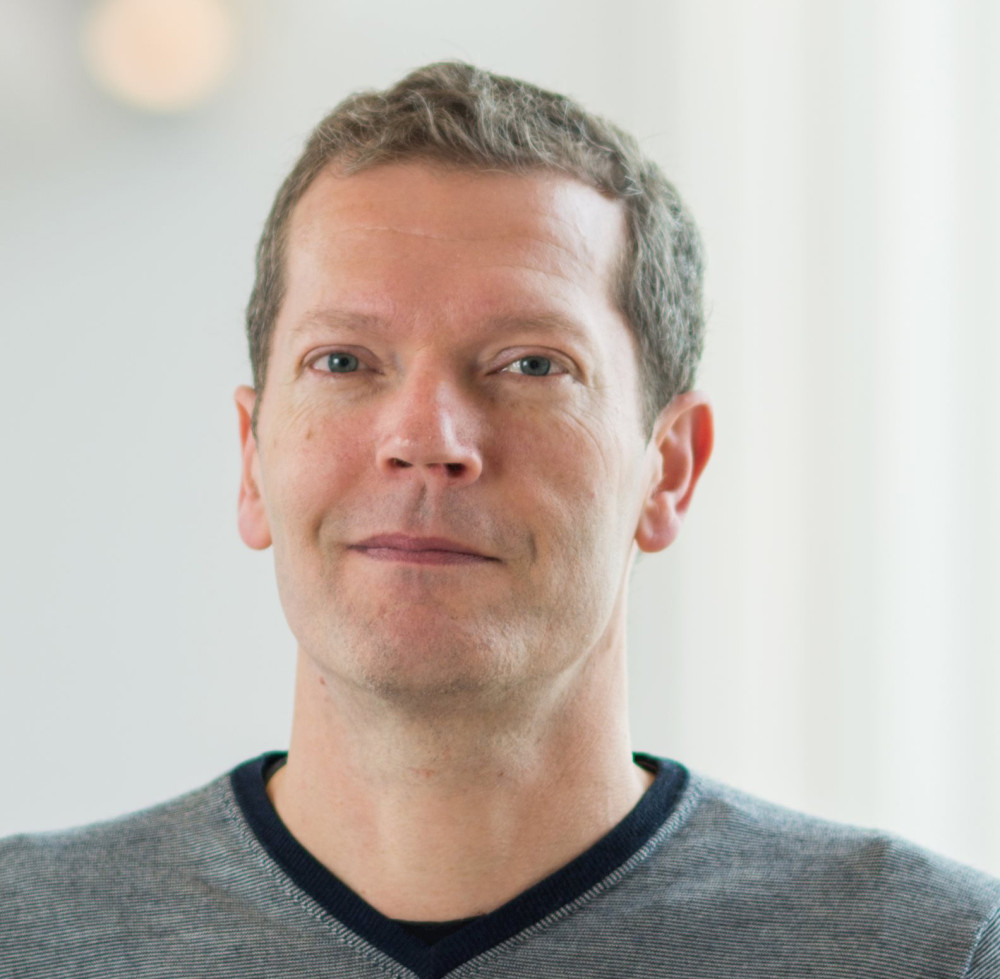 Dr. Hans Spelbrink is a molecular cell biologist currently working at the Radboud University Medical Center, Nijmegen, the Netherlands. Since his PhD he has a long track record in mitochondrial research that has throughout the more than 25 years of research concentrated on mtDNA, its maintenance and expression. After moving to Finland in 1997, where he did a postdoc and subsequently started his own laboratory, he initiated the development of a polymerase gamma mutator model in human cells that has contributed also to the development of the mouse POLG1 mutator model (published in 2004), the analysis of which I took part in. In 2001, in a landmark paper published in Nature Genetics, he identified a novel mtDNA maintenance protein, which was the long sought-after mtDNA helicase, Twinkle, that was at the same time identified as the first mtDNA replication factor involved in human disease, namely autosomal dominant progressive external ophthalmoplegia. In two collaborative studies, Twinkle later also was shown to be involved in a recessive ataxia and in mtDNA depletion syndrome. Several subsequent studies (the most important ones published in 2007 & 2009) characterized Twinkle protein function using inducible cell cultures. These studies also addressed the mechanisms of mtDNA replication as did several other joint publications in more recent years. The characterization of Twinkle also provided the first clear demonstration that mtDNA in mammals (as shown in yeast many years earlier) was organized in discrete protein-DNA complexes within the mitochondrial network which contradicted the commonly held textbook view at that time that mammalian mtDNA was ‘naked’. In 2003 the nucleoid view was consolidated by demonstrating several other proteins such as TFAM and mtSSB to co-purify and co-localize with mtDNA in discrete structures. This research also suggested that nucleoids are amenable to biochemical isolation as he and others have shown in more recent publications. In 2010 he moved back to the Netherlands to join the Nijmegen Centre for Mitochondrial Disorders where he focused on establishing methods to more systematically identify nucleoid proteins using nucleoid targeted isolation methods in combination with mass-spectrometry. This research, in the last 5 years, has extended towards the more general identification and characterization of proteins involved with all aspects of mitochondrial gene expression. In his seminar, he will focus on the interplay between mtDNA maintenance and mitochondrial RNA homeostasis, focussing on cell biological and proteomic aspects of this interplay.
Dr. Hans Spelbrink is a molecular cell biologist currently working at the Radboud University Medical Center, Nijmegen, the Netherlands. Since his PhD he has a long track record in mitochondrial research that has throughout the more than 25 years of research concentrated on mtDNA, its maintenance and expression. After moving to Finland in 1997, where he did a postdoc and subsequently started his own laboratory, he initiated the development of a polymerase gamma mutator model in human cells that has contributed also to the development of the mouse POLG1 mutator model (published in 2004), the analysis of which I took part in. In 2001, in a landmark paper published in Nature Genetics, he identified a novel mtDNA maintenance protein, which was the long sought-after mtDNA helicase, Twinkle, that was at the same time identified as the first mtDNA replication factor involved in human disease, namely autosomal dominant progressive external ophthalmoplegia. In two collaborative studies, Twinkle later also was shown to be involved in a recessive ataxia and in mtDNA depletion syndrome. Several subsequent studies (the most important ones published in 2007 & 2009) characterized Twinkle protein function using inducible cell cultures. These studies also addressed the mechanisms of mtDNA replication as did several other joint publications in more recent years. The characterization of Twinkle also provided the first clear demonstration that mtDNA in mammals (as shown in yeast many years earlier) was organized in discrete protein-DNA complexes within the mitochondrial network which contradicted the commonly held textbook view at that time that mammalian mtDNA was ‘naked’. In 2003 the nucleoid view was consolidated by demonstrating several other proteins such as TFAM and mtSSB to co-purify and co-localize with mtDNA in discrete structures. This research also suggested that nucleoids are amenable to biochemical isolation as he and others have shown in more recent publications. In 2010 he moved back to the Netherlands to join the Nijmegen Centre for Mitochondrial Disorders where he focused on establishing methods to more systematically identify nucleoid proteins using nucleoid targeted isolation methods in combination with mass-spectrometry. This research, in the last 5 years, has extended towards the more general identification and characterization of proteins involved with all aspects of mitochondrial gene expression. In his seminar, he will focus on the interplay between mtDNA maintenance and mitochondrial RNA homeostasis, focussing on cell biological and proteomic aspects of this interplay.
Rethinking Cyanobacteria: Photosynthetic Biotechnology for Net Zero
Speaker: dr hab. Maurycy Daroch, School of Environment and Energy, Peking University Shenzhen Graduate School, China
Talk: Rethinking Cyanobacteria: Photosynthetic Biotechnology for Net Zero
Time: 28.06.2024, 9:00 am
Venue: Intercollegiate Faculty of Biotechnology, Abrahama 58, hall 042B
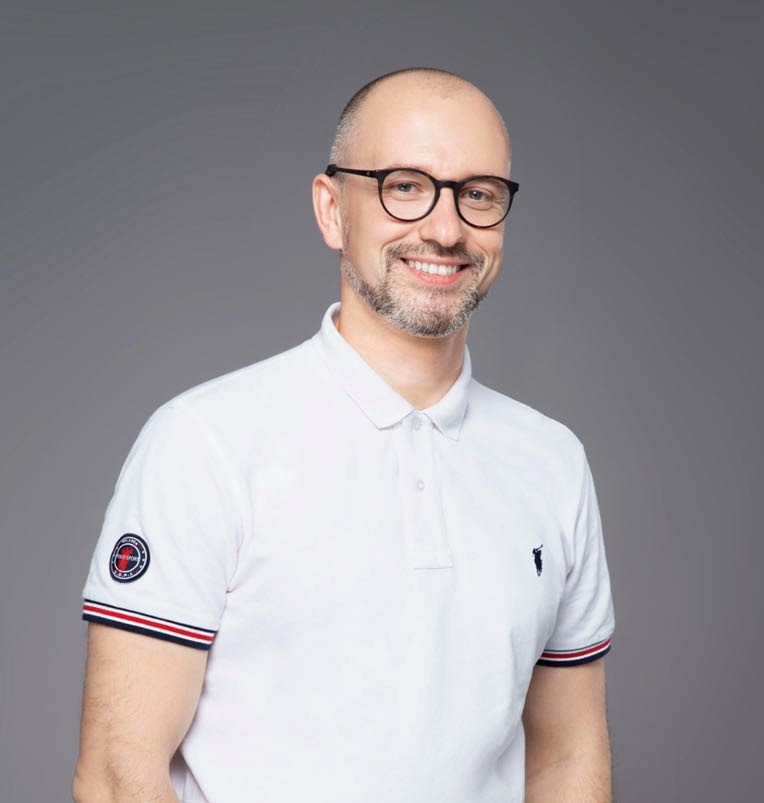 Over the last 2.5 billion years, cyanobacteria equipped with the Calvin cycle transformed the atmosphere and fertilised our entire planet, allowing for the evolution of complex life forms, including humans. This makes these photosynthetic bacteria arguably the most important group of microorganisms to have ever existed on Earth. Since their early divergence from anoxygenic ancestors, cyanobacteria colonised the entire planet and developed a remarkable diversity of primary and secondary metabolism.
Over the last 2.5 billion years, cyanobacteria equipped with the Calvin cycle transformed the atmosphere and fertilised our entire planet, allowing for the evolution of complex life forms, including humans. This makes these photosynthetic bacteria arguably the most important group of microorganisms to have ever existed on Earth. Since their early divergence from anoxygenic ancestors, cyanobacteria colonised the entire planet and developed a remarkable diversity of primary and secondary metabolism.
This diversity and metabolic flexibility present an intriguing opportunity for waste valorization, offering a potential solution for simultaneously closing carbon, nitrogen, and micronutrient loops of various industries while generating valuable products such as biochemicals, biofuels and active compounds.
The presentation showcases the diversity of this group and their successful utilization, for valorisation of carbon, nitrogen and sulphur from various wastes. The associated biobased value chains brings about the valorisation of anthropogenic waste into an array of natural (phycoerythrins, phycocyanins, myxoxantophylls) and engineered bioproducts such as isoprene, ethylene and 3-hydroxypropionate in line with the biorefinery approach.
To maximize the performance of these photosynthetic microbial cell factories, we developed and explored the concept of miniploidy, a method of genome number control and refined genetic transformation protocols to facilitate fast mutant generation and decrease the genetic instability in the biosynthesis of valuable products.
More recently we embarked on the exciting journey to alter the central metabolic pathways of carbon fixation and developed the concept of cyanobacterial photochemotrophy. The ultimate goal of this new type of metabolism is to entirely replace the inefficient Calvin cycle and allow the new iteration of refactored cyanobacteria to once again take the central stage in carbon fixation on Earth and play a pivotal role in reversing anthropogenic climate change.
Force-biased nuclear import sets nuclear-cytoplamic volumetric coupling by osmosis
Speaker: dr Paolo Maiuri, University of Naples, Italy
Talk: Force-biased nuclear import sets nuclear-cytoplamic volumetric coupling by osmosis
Time: 17.05.2024, 9:00 am
Venue: Intercollegiate Faculty of Biotechnology, Abrahama 58, hall 042B
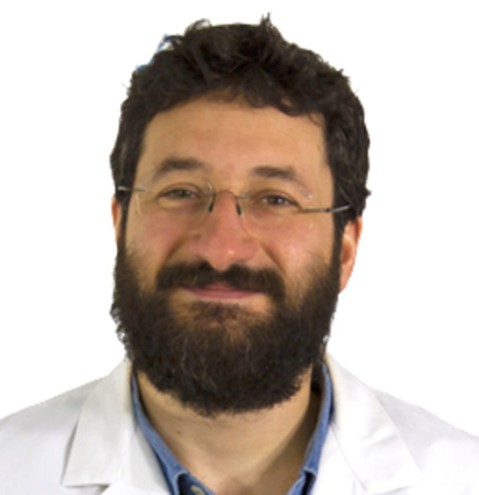
Dr Paolo Maiuri is a biophysicist with experience in quantitative biology. He did his PhD in HIV transcription at the International Centre for Genetic Engineering and Biotechnology in Trieste, Italy. Then, he moved to Paris to Institute Curie to study cell biology of cell polarity and division. In 2015 he become a principal investigator in IFOM-IEO Institute in Milan, Italy where he investigated nuclear polarity and cell migration. Currently, he works at the University of Naples Federico II, Naples, Italy where his main interest is to how cells sense and react to external physical cues and how this impacts on tumor onset or evolution. He combines cell biology approaches with quantitative imaging and micro-fabrication to decipher basic biological functions. He is author or co-author of >50 scientific articles published in the most prestigious journals including PNAS, Science, Science Immunology, Nature Cell Biology, Nature Communications, Cell, Nature Materials.
When Antibiotics Fail: Understanding Bacterial Persistence During Infection
Speaker: dr Severin Ronneau, University of Namur, Belgium
Talk: When Antibiotics Fail: Understanding Bacterial Persistence During Infection
Time: 26.01.2024, 9:00 am
Venue: Intercollegiate Faculty of Biotechnology, Abrahama 58, hall 042B
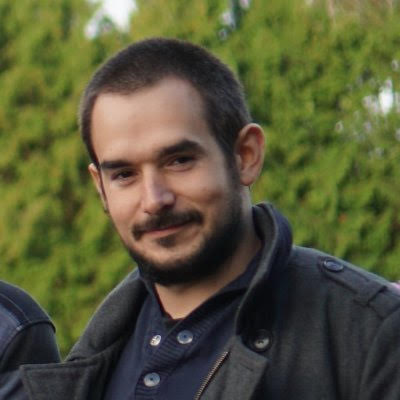 Séverin Ronneau completed his Ph.D. in Microbiology in 2016 at the University of Namur, Belgium. During his thesis, he discovered a novel pathway regulating (p)ppGpp stress alarmone accumulation in Caulobacter and Sinorhizobium in response to nitrogen starvation. After completing his thesis, he was awarded a long-term EMBO fellowship to investigate antibiotic persistence during infection in Sophie Helaine's lab at the CMBI in London, and later at the Harvard Medical School in Boston. Following his postdoc, he secured a Marie Sklodowska Curie grant to advance his independent research in Namur, Belgium. Currently, he is exploring the regulation of (p)ppGpp in Salmonella during infection, drawing upon his expertise from both his Ph.D. and postdoc experiences.
Séverin Ronneau completed his Ph.D. in Microbiology in 2016 at the University of Namur, Belgium. During his thesis, he discovered a novel pathway regulating (p)ppGpp stress alarmone accumulation in Caulobacter and Sinorhizobium in response to nitrogen starvation. After completing his thesis, he was awarded a long-term EMBO fellowship to investigate antibiotic persistence during infection in Sophie Helaine's lab at the CMBI in London, and later at the Harvard Medical School in Boston. Following his postdoc, he secured a Marie Sklodowska Curie grant to advance his independent research in Namur, Belgium. Currently, he is exploring the regulation of (p)ppGpp in Salmonella during infection, drawing upon his expertise from both his Ph.D. and postdoc experiences.
In this seminar, Dr. Séverin Ronneau will discuss his recent work on antibiotic persisters during infection. Bacterial persistence, characterized by chronic and relapsing infections, poses a significant threat to human health, causing considerable morbidity and often requiring multiple courses of antibiotics. Such long-lasting infections are caused by various bacterial pathogens, including Mycobacterium tuberculosis, Salmonella, Pseudomonas, Staphylococcus aureus, and pathogenic Escherichia coli. During infection, Salmonella specifically responds to engulfment by host macrophages by forming high proportions of antibiotic persisters. These persisters evade the combined action of antibiotics and host immune killing mechanisms for prolonged periods by adopting a non-growing state. However, the molecular mechanisms that govern the formation, maintenance, and regrowth of persisters are not yet fully understood. Dr. Séverin Ronneau will discuss the factors that control persister physiology inside immune cells and how we can leverage this knowledge to sensitize these cells to antibiotics, thereby reducing the risk of relapse
Stimulating myelin repair in the central nervous system
Speaker: dr Aleksandra Rutkowska, Medical University of Gdansk
Talk: Stimulating myelin repair in the central nervous system
Time: 24.11.2023, 9:00 am
Venue: Intercollegiate Faculty of Biotechnology, Abrahama 58, hall 042B
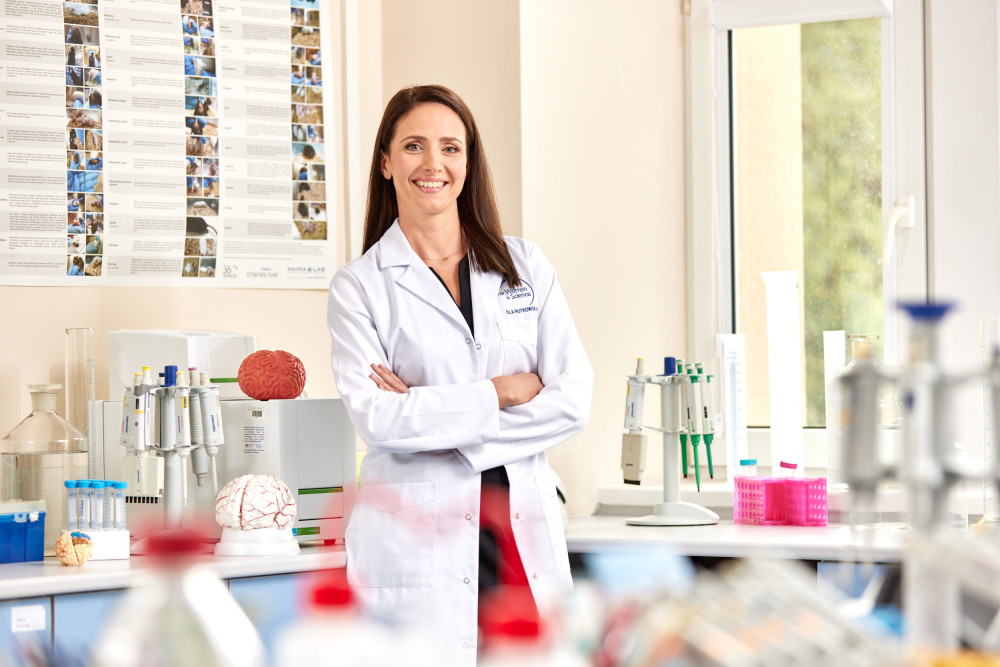 Ola Rutkowska is a translational neuroscientist at the Medical University of Gdansk. She earned her master's degree in Neuroscience from Trinity College Dublin in 2010, during which she conducted research at a pharmaceutical company Actelion in Switzerland investigating sphingosine-1-phosphate agonists immunomodulatory function in primary rodent microglia. Her doctoral research in Molecular Neuropharmacology, also at Trinity College Dublin, was co-funded by the Irish Research Council and a Swiss pharmaceutical giant – Novartis. This unique collaboration enriched her expertise in both academic scientific research and the pharmaceutical industry. During her doctoral studies, Ola focused on understanding the EBI2 receptor's expression and function within the CNS. She discovered EBI2 receptor in astrocytes, unravelled its role as an immune modulator in the CNS and shed light on its involvement in myelination.
Ola Rutkowska is a translational neuroscientist at the Medical University of Gdansk. She earned her master's degree in Neuroscience from Trinity College Dublin in 2010, during which she conducted research at a pharmaceutical company Actelion in Switzerland investigating sphingosine-1-phosphate agonists immunomodulatory function in primary rodent microglia. Her doctoral research in Molecular Neuropharmacology, also at Trinity College Dublin, was co-funded by the Irish Research Council and a Swiss pharmaceutical giant – Novartis. This unique collaboration enriched her expertise in both academic scientific research and the pharmaceutical industry. During her doctoral studies, Ola focused on understanding the EBI2 receptor's expression and function within the CNS. She discovered EBI2 receptor in astrocytes, unravelled its role as an immune modulator in the CNS and shed light on its involvement in myelination.
During her post-doc at St. Jamses’ university hospital in Dublin she joined a JPND-funded project BiomarkAPD in which she focused on biomarkers for dementia diagnosis, subsequently leading her to explore less invasive alternatives to cerebrospinal fluid sampling, such as blood-based biomarkers and setting up her own startup Labertis Scientific.
Throughout her career, Ola has secured various grants and funding opportunities. In 2015 she received the POLONEZ grant from NCN and returned to Poland after over 11 years spent in Ireland and Switzerland. In Gdansk she started her own research group at the Medical University of Gdansk. Subsequently, she received the OPUS grant and recently a SONATA. This year Ola has also received the Ministry for Science and Education scholarship for exceptional young scientists and the L’Oreal-UNESCO for Women in Science award.
Currently, Ola is an Assistant Professor at the dept. of Anatomy and Neurobiology, a PI and the Deputy Head at the Brain Diseases Centre at MUG. She leads a team comprising four PhD and two master's students working on projects spanning a range of topics including myelination and the pathophysiology of the BBB and targeting a number of receptors and channels such as EBI2, Piezo1, GPP65, GPR4, GPR68.
Mechanisms of bacterial DNA repair
Speaker: prof. dr hab. Marcin Nowotny, International Institute of Molecular and Cell Biology in Warsaw - IIMCB
Talk: Mechanisms of bacterial DNA repair
Time: 17.11.2023, 9:00 am
Venue: Intercollegiate Faculty of Biotechnology, Abrahama 58, hall 042B
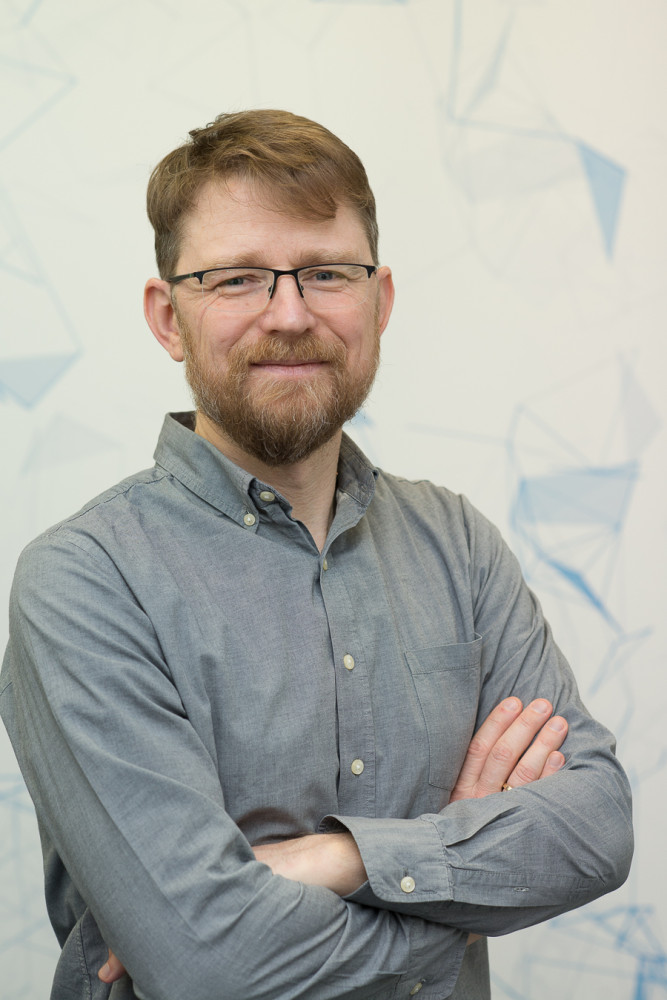
Marcin Nowotny graduated from the Faculty of Chemistry at the University of Warsaw in 1998. In 2002 he defended his doctoral thesis at the Nencki Institute of Experimental Biology. He received the title of professor in 2020. In 2003-2008, he worked in the group of Dr. Wei Yang at the National Institutes of Health (NIH) in Bethesda, USA. Since 2008 he heads the Protein Structure Laboratory at the International Institute of Molecular and Cellular Biology in Warsaw, Poland. He is a member of several international scientific societies and organizations (Academia Europaea, European Molecular Biology Organization). He is a laureate of the Foundation for Polish Science Award (2022) for research on the molecular mechanisms of DNA damage and its repair. Marcin Nowotny uses structural biology to understand the mechanisms of processing of nucleic acids - DNA and RNA. He is particularly interested in DNA repair pathways, DNA transposition, reverse transcription, RNA processing and the mechanism of action of nucleic acid therapeutics. Laboratory link:https://www.iimcb.gov.pl/en/research/6-laboratory-of-protein-structure
Investigation of pectinolytic bacteria in surface waters, update of the outline of the Pectobacteriaceae family
Speaker: Dr Nicole-Hugouvieux-Cotte-Pattat, University of Lyon, Laboratory MAP CNRS UMR5240
Talk: Investigation of pectinolytic bacteria in surface waters, update of the outline of the Pectobacteriaceae family
Time: 06.10.2023, 9:00 am
Venue: Intercollegiate Faculty of Biotechnology, Abrahama 58, hall 042B
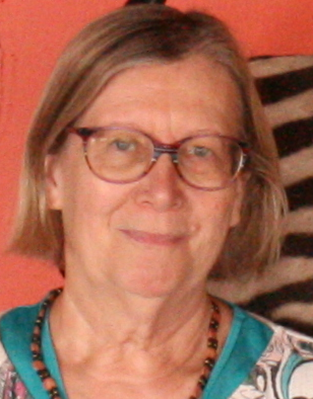 Nicole Hugouvieux-Cotte-Pattat got a PhD in microbiology in 1981, delivered by INSA-Lyon and Lyon 1 University, on the Escherichia coli metabolic pathways used for hexuronate degradation. In 1982, she obtained a permanent researcher position at CNRS (Centre National de la Recherche Scientifique, France). She studied the different pectinases involved in the degradation of pectin by the plant pathogenic bacterium Dickeya dadantii (called at the time Erwinia chrysanthemi). Pectinolytic enzymes are essential factors of the bacterial virulence against plants. She obtained the research habilitation in 1987 and she had a post-doctoral position at the University of Geneva in 1988-1989, to study the expression of genes of the TOL catabolic plasmid of Pseudomonas putida. From 1994, she supervised her team studying the virulence functions of the plant pathogenic bacterium Dickeya dadantii. She explored the D. dadantii genes involved in virulence, the regulation of their expression and the metabolic pathways necessary for the assimilation of plant compounds. From 1995 to 2005, she was the deputy director of the laboratory Microbiology and Genetics. In 2005, she created the laboratory Microbiology, Adaptation and Pathogenesis (MAP, UMR5240) supported by CNRS, INSA and Lyon 1 University. She directed this laboratory until 2015. From 2016 to 2020, she headed a molecular biology platform of the Lyon University. She developed genomic approaches to investigate the diversity of the genus Dickeya by analysing poorly characterized strains from old collections and carrying out surveys of Dickeya strains present in the environment, particularly in lake water. These recent works enable her to describe three new Dickeya species, D. lacustris, D. parazeae and D. poaceiphila and a new genus Musicola inside the Pectobacteriaceae family.
Nicole Hugouvieux-Cotte-Pattat got a PhD in microbiology in 1981, delivered by INSA-Lyon and Lyon 1 University, on the Escherichia coli metabolic pathways used for hexuronate degradation. In 1982, she obtained a permanent researcher position at CNRS (Centre National de la Recherche Scientifique, France). She studied the different pectinases involved in the degradation of pectin by the plant pathogenic bacterium Dickeya dadantii (called at the time Erwinia chrysanthemi). Pectinolytic enzymes are essential factors of the bacterial virulence against plants. She obtained the research habilitation in 1987 and she had a post-doctoral position at the University of Geneva in 1988-1989, to study the expression of genes of the TOL catabolic plasmid of Pseudomonas putida. From 1994, she supervised her team studying the virulence functions of the plant pathogenic bacterium Dickeya dadantii. She explored the D. dadantii genes involved in virulence, the regulation of their expression and the metabolic pathways necessary for the assimilation of plant compounds. From 1995 to 2005, she was the deputy director of the laboratory Microbiology and Genetics. In 2005, she created the laboratory Microbiology, Adaptation and Pathogenesis (MAP, UMR5240) supported by CNRS, INSA and Lyon 1 University. She directed this laboratory until 2015. From 2016 to 2020, she headed a molecular biology platform of the Lyon University. She developed genomic approaches to investigate the diversity of the genus Dickeya by analysing poorly characterized strains from old collections and carrying out surveys of Dickeya strains present in the environment, particularly in lake water. These recent works enable her to describe three new Dickeya species, D. lacustris, D. parazeae and D. poaceiphila and a new genus Musicola inside the Pectobacteriaceae family.
The Pectobacteriaceae family includes plant pathogenic bacteria able to provoke various diseases, in particular plant maceration due to the production of pectinases attacking the plant cell wall. To better understand their natural diversity, a survey of pectinolytic bacteria was carried out in lakes of the French region La Camargue near the Mediterranean Sea. Numerous isolates of two Dickeya species were found in this type of surface water. In addition, some atypical pectinolytic isolates were recovered from some lakes containing brackish water. In phylogenetic trees, the novel strains forms a new clade of Pectobacteriaceae, distinct from the previously known genera of this family. Based on phenotypic, genomic and phylogenetic characteristics, we propose the creation of a new genus for these pectinolytic isolates. Our phylogenomic studies confirm that Symbiopectobacterium also belongs to the Pectobacteriaceae family but indicate that the genus Acerihabitans should be reclassified in the Bruguierivoracaceae family.
Ribonucleases and poly(A) polymerases in health and disease
Speaker: prof. Andrzej Dziembowski, International Institute of Molecular and Cell Biology in Warsaw
Talk: Ribonucleases and poly(A) polymerases in health and disease
Time: 02.06.2023, 9:00 am
Venue: Intercollegiate Faculty of Biotechnology, Abrahama 58, hall 042B
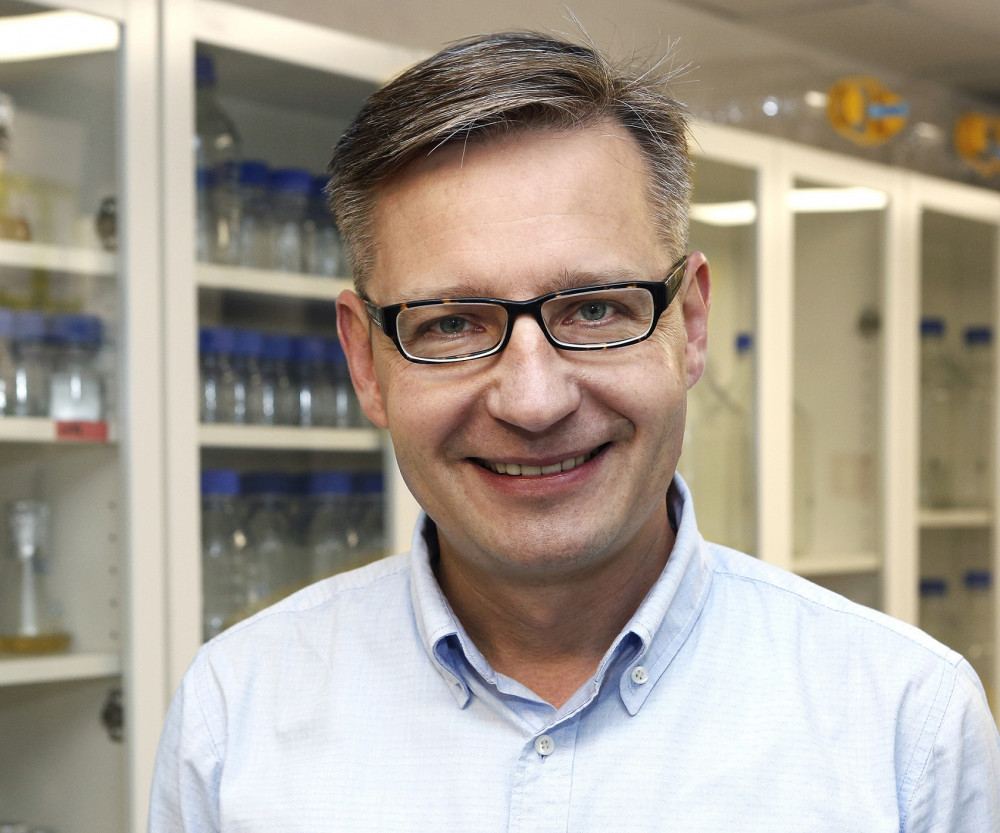
Andrzej Dziembowski is the head of an ERA Chair Group at the International Institute of Molecular and Cell Biology in Warsaw, is a professor at the Warsaw University Faculty of Biology, and holds the Waclaw Szybalski Honorary Chair at the University of Gdańsk. He is also a member of EMBO and Academia Europaea.
Prof. Dziembowski graduated from the Faculty of Biology at the University of Warsaw, where he received his PhD. For several years, he worked at the CNRS Center for Molecular Genetics in Gif-sur- Yvette, France. He then headed an independent laboratory at the Institute of Biochemistry and Biophysics of the Polish Academy of Sciences in Warsaw. In 2019, the laboratory moved to the International Institute of Molecular and Cellular Biology in Warsaw.
Prof. Dziembowski’s primary research interest is posttranscriptional gene expression regulation. Currently, the lab studies RNA biology at the organism level, using Direct RNA Sequencing as an experimental approach and transgenic mouse lines as a model system.
Prof. Dziembowski is the author of more than 100 research articles, many of which have been published in prestigious journals such as Nature, Cell, Nature Structural and Molecular Biology, Genes and Development, Molecular Cell, EMBO Journal and EMBO Reports. His research has been supported by numerous national and international grants, including ERC Advanced Grant (2022).
Sunshine and health - more than just vitamin D and skin cancer
Speaker: Prof. Richard Weller, University of Edinburgh
Talk: ‘Sunshine and health - more than just vitamin D and skin cancer’
Time: 11.05.2023, 14:30 pm (Thursday!)
Venue: Intercollegiate Faculty of Biotechnology, Abrahama 58, hall 042B
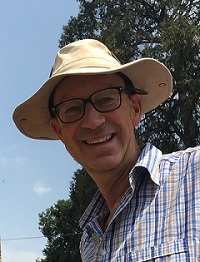 Prof. Richard Weller is a dermatologist and a scientist. He graduated in medicine at St Thomas' Hospital, University of London (now part of King's College, London) and then undertook my general/internal medicine training in the north of England and in Australia. Following this, he specialized in dermatology at the Institute of Dermatology (St John's) in London, Aberdeen and Edinburgh.
Prof. Richard Weller is a dermatologist and a scientist. He graduated in medicine at St Thomas' Hospital, University of London (now part of King's College, London) and then undertook my general/internal medicine training in the north of England and in Australia. Following this, he specialized in dermatology at the Institute of Dermatology (St John's) in London, Aberdeen and Edinburgh.
In parallel to his clinical training, he also pursued research, with a scholarship from the University of Edinburgh, and spent three years in postdoctoral research training at Heinrich-Heine Universität in Dusseldorf, and at the University of Pittsburgh, USA. He came back to the UK as a Senior Lecturer and then a Reader in Dermatology and Principal Investigator at the Centre for Inflammation Research, University of Edinburgh.
Currently, Richard is engaged both in clinical duties as an honorary NHS Consultant Dermatologist and in research at the University of Edinburgh and as the NHS Dermatology lead. He is also active in teaching as a Programme Director of the Masters in Medical Science degree. He is also very active in public engagement; his TED talk presenting his research, which has now been viewed more than 1 million times.
Richard’s interests include skin disease, especially eczema and psoriasis, and UV light exposure on human health, including cardiovascular risk and cancer. He carries out basic research and translation studies and published his work in both dermatology and high-profile internal medicine journals, including NEJM, J Allergy and Clin Immunol, Brit J Dermatol, JAMA Cardiology, Diabetologia.
How prokaryotes are teaching us about our immunity
Speaker: Dr Christophe Rouillon, Institute of Structural Biology, University of Bonn, Germany
Talk: How prokaryotes are teaching us about our immunity
Time: 28.04.2023, 9:00 am
Venue: Intercollegiate Faculty of Biotechnology, Abrahama 58, hall 042B
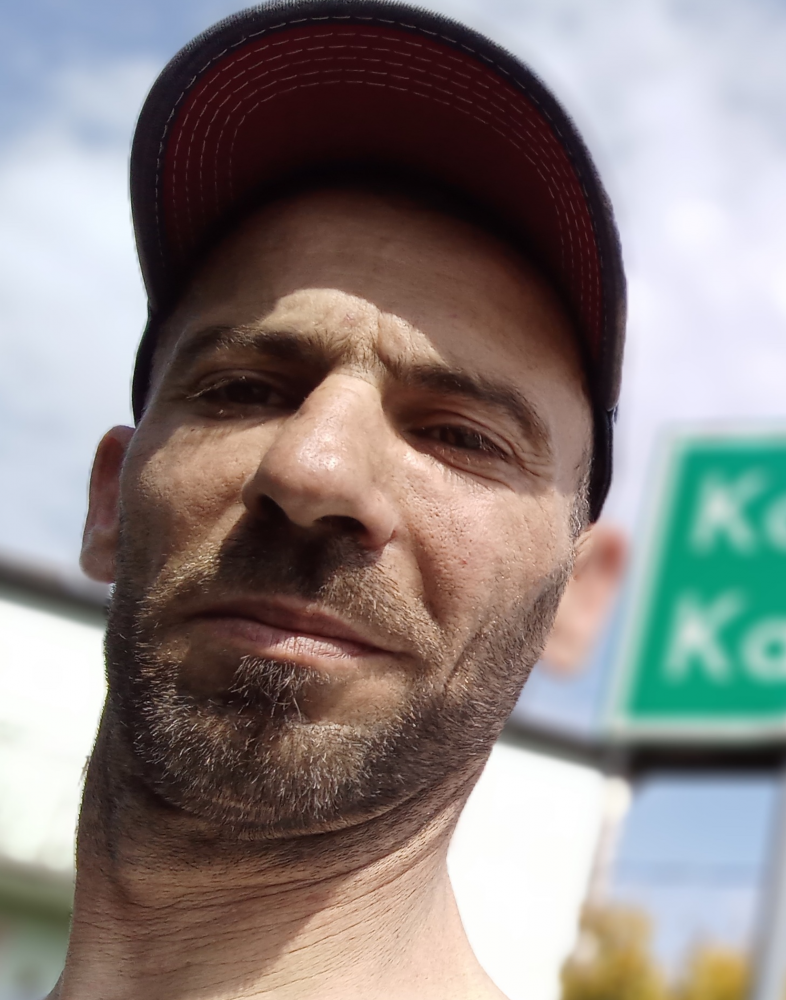
Dr. Christophe Rouillon is a biochemist specialised on informational events and immunity in prokaryotes. After his degree in biotechnology from Nancy University (France) he worked 5 years in French Institutes (Curie, Pasteur, IRD) and pharmaceutical company Eurofin before doing a Master and PhD at the French Marine Institute (Ifremer, Brest) with Dr Joel Querellou. His PhD focussed on the DNA replication factors of an hyperthermophilic archaea. He then moved to St Andrews University (Scotland) in Prof Malcolm White lab to work on archaeal DNA repair before joining the CRISPR adventure in the same lab. Since 2009, Christophe worked mostly on the CRISPR systems at a molecular level in the UK (St Andrews Uni) and Germany (Leipzig Uni, Max Planck Berlin/Bonn and Bonn Uni). He is currently very interested in newly discovered prokaryotic defence systems.
The molecular mechanisms of congenital infection with betaherpesvirus - the human cytomegalovirus - focusing on the issue of latency establishment
Speaker: Magdalena Weidner-Glunde, Ph.D. DSc, Institute of Animal Reproduction and Food Research of the Polish Academy of Sciences in Olsztyn
Talk: The molecular mechanisms of congenital infection with betaherpesvirus - the human cytomegalovirus - focusing on the issue of latency establishment
Time: 14.04.2023, 9:00 am
Venue: Intercollegiate Faculty of Biotechnology, Abrahama 58, hall 042B
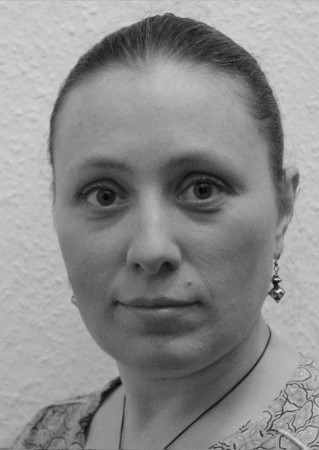
Dr. Magdalena Weidner-Glunde graduated with a bachelor's degree with honors and summa cum laude in Biology with a major in Cell Biology and Physiology and a second individual major: Chemistry/Mathematics/Informatics at the University of Wisconsin-Whitewater in the USA. In 2000, she was accepted into the Biochemistry, Cell and Molecular Biology Ph.D. program at Johns Hopkins University, School of Medicine in Baltimore, USA where in 2005 she defended her dissertation, done under the supervision of Prof. Diane Hayward, on the molecular mechanisms of persistence of gammaherpesvirus - Kaposi's sarcoma virus. Both as part of her PhD and later, while working as a post-doc in the laboratory of Prof. Thomas Schulz at the Institute of Virology at Medizinische Hochschule Hannover in Germany, she explored the molecular mechanisms of oncogenic gammaherpesvirus persistence. In 2018, after returning to Poland, Dr. Weidner-Glunde established her own research group and the Laboratory of Molecular Microbiology and Virology at the Institute of Animal Reproduction and Food Research of the Polish Academy of Sciences in Olsztyn. Dr. Weidner-Glunde's team currently studies the molecular mechanisms of congenital infection with betaherpesvirus - the human cytomegalovirus - focusing on the issue of latency establishment.
Optimizing a microbial platform to break down and valorize waste plastic
Speaker: dr George DiCenzo, Queen's University, Kingston, Canada
Talk: Optimizing a microbial platform to break down and valorize waste plastic
Time: 17.03.2023, 9:00 am
Venue: Intercollegiate Faculty of Biotechnology, Abrahama 58, hall 042B
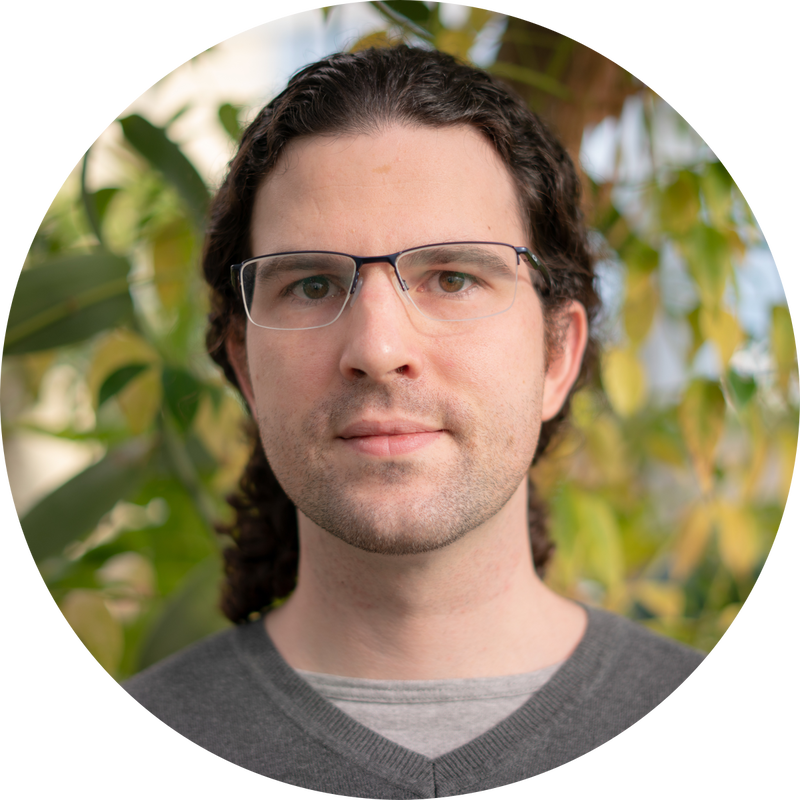 Dr. George diCenzo during his BSc worked in the group of Prof. Turlough Finan, for which he got a degree in 2012 in Molecular Biology and Genetics from McMaster University in Canada. Also in Dr. Finan's group Dr. George DiCenzo completed his PhD in 2017 in Biology. Subsequently, he joined the group of Prof. Alessio Mengoni at the University of Florence (Italy) as a NSERC Postdoctoral Fellow, where he also worked closely with Prof. Marco Fondi. During this time, he also did a two months internship in the group of Peter Mergaert at a CNRS institute close to Paris in France. In 2017 Dr. DiCenzo was awarded with the Armand Frappier Outstanding Student Award from the Canadian Society of Microbiology for his PhD research on bacterial genome organization. Since 2019 he is hired as an Assistant Professor in the Department of Biology at Queen's University. He leads a research group that uses wetlab and bioinformatics methods to study diverse topics in microbiology, with a focus on the genomics and biology of nitrogen-fixing bacteria, the biodegradation of plastics, and soil microbial communities. He is a co-author of 49 research papers in prestigious journals including for instance Proceedings of the National Academy of Sciences or Nature Communications. Outside of the lab, Dr. DiCenzo enjoys travelling and supporting hockey teams, in his case the Toronto Maple Leafs.
Dr. George diCenzo during his BSc worked in the group of Prof. Turlough Finan, for which he got a degree in 2012 in Molecular Biology and Genetics from McMaster University in Canada. Also in Dr. Finan's group Dr. George DiCenzo completed his PhD in 2017 in Biology. Subsequently, he joined the group of Prof. Alessio Mengoni at the University of Florence (Italy) as a NSERC Postdoctoral Fellow, where he also worked closely with Prof. Marco Fondi. During this time, he also did a two months internship in the group of Peter Mergaert at a CNRS institute close to Paris in France. In 2017 Dr. DiCenzo was awarded with the Armand Frappier Outstanding Student Award from the Canadian Society of Microbiology for his PhD research on bacterial genome organization. Since 2019 he is hired as an Assistant Professor in the Department of Biology at Queen's University. He leads a research group that uses wetlab and bioinformatics methods to study diverse topics in microbiology, with a focus on the genomics and biology of nitrogen-fixing bacteria, the biodegradation of plastics, and soil microbial communities. He is a co-author of 49 research papers in prestigious journals including for instance Proceedings of the National Academy of Sciences or Nature Communications. Outside of the lab, Dr. DiCenzo enjoys travelling and supporting hockey teams, in his case the Toronto Maple Leafs.
The lung vascular endothelium as an innate sensor of respiratory virues and its significance in the immunopathology of respiratory viral infections
Speaker: dr hab. Maciej Chałubiński, Medical University in Łódź
Talk: The lung vascular endothelium as an innate sensor of respiratory virues and its significance in the immunopathology of respiratory viral infections
Time: 13.01.2023, 9:00 am
Venue: Intercollegiate Faculty of Biotechnology, Abrahama 58, hall 042B
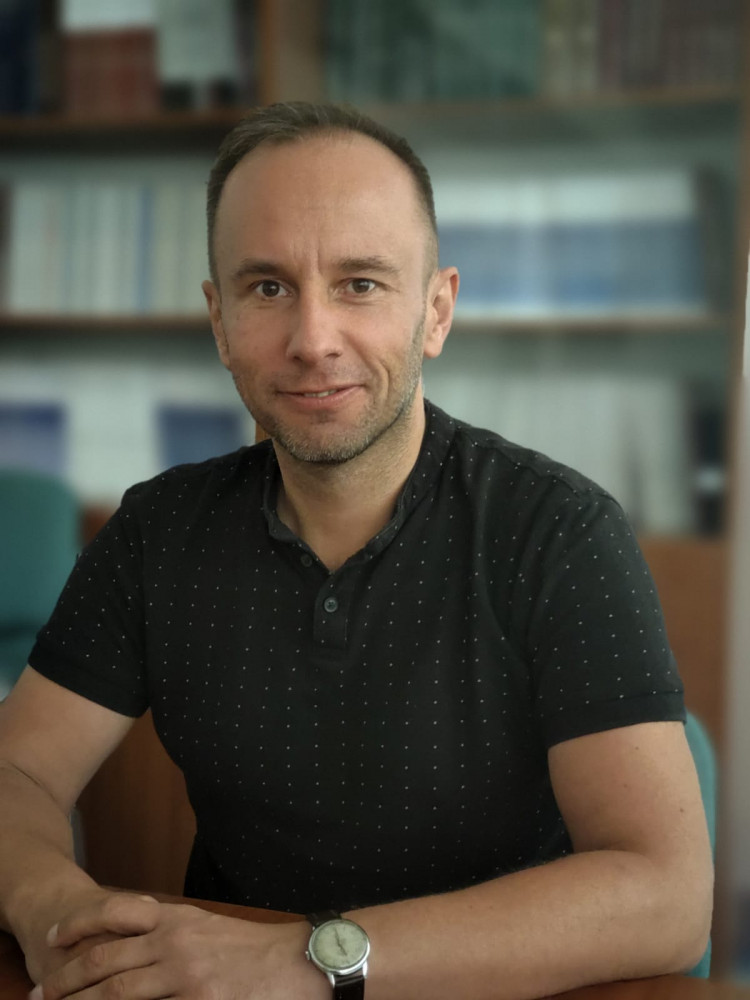 Maciej Chałubiński, MD, PhD, is a clinician, specializing in allergology, internal medicine, and continuing with a clinical immunology specialization. After graduation with a medical degree from the Medical University of Łódź (2002) Maciej carried out postgraduate research training at Utrecht University in the Netherlands; in 2008 he obtained his PhD in Immunology through the training at the Department of Clinical Immunology, Rheumatology and Allergy at the University of Łódź.
Maciej Chałubiński, MD, PhD, is a clinician, specializing in allergology, internal medicine, and continuing with a clinical immunology specialization. After graduation with a medical degree from the Medical University of Łódź (2002) Maciej carried out postgraduate research training at Utrecht University in the Netherlands; in 2008 he obtained his PhD in Immunology through the training at the Department of Clinical Immunology, Rheumatology and Allergy at the University of Łódź.
In 2008-2010 Maciej held a post-doctoral position at the Swiss Institute of Allergy and Asthma Research (SIAF) in Davos at the University of Zurich, Switzerland, funded by a fellowship of the Global Allergy and Asthma European Network (GA2LEN) under by 6th EU Research Framework as well as the fellowship from European Academy of Allergy and Clinical Immunology (EAACI). He returned to his home university in 2010 as a teaching adjunct and then between 2012-2016 Maciej was leading the Laboratory of Tissue Immunopharmacology, at the Department of Internal Diseases and Clinical Pharmacology. He was awarded habilitation in internal medicine in 2016.
Currently Maciej is the head of the Department of Immunology and Allergy, where he combines clinical duties with research involvement. Maciej obtained funding for multiple research projects from National Science Centre projects; he also chairs Polish sides of two Horizon EU consortia. In addition, he is actively participating in the organization and editorial involvement, as the president of the thematic section of the Polish Society of Allergology: "Microbiom, infections and allergy", and Editor in Chief of “Allergy, Asthma, Immunology ‐ clinical review”. He is an author of 42 international scientific articles in the field of immunology, virology, allergy, and cardiology, including publications in Allergy and J Allergy Clin Immunol as well as an author of book chapters in allergology.
Maciej’s research interests involve the role of the lung vascular endothelium and bronchial epithelium in the immunopathology of airway viral infections and asthma, innate immunity, trained immunity, and allergy.
Translational genetics reveals insight into protective tissue immunity
Speaker: dr Marta Brandt, Broad Institute of MIT and Harvard, US
Talk: Translational genetics reveals insight into protective tissue immunity
Time: 16.12.2022, 9:00 am
Venue: Intercollegiate Faculty of Biotechnology, Abrahama 58, hall 042B
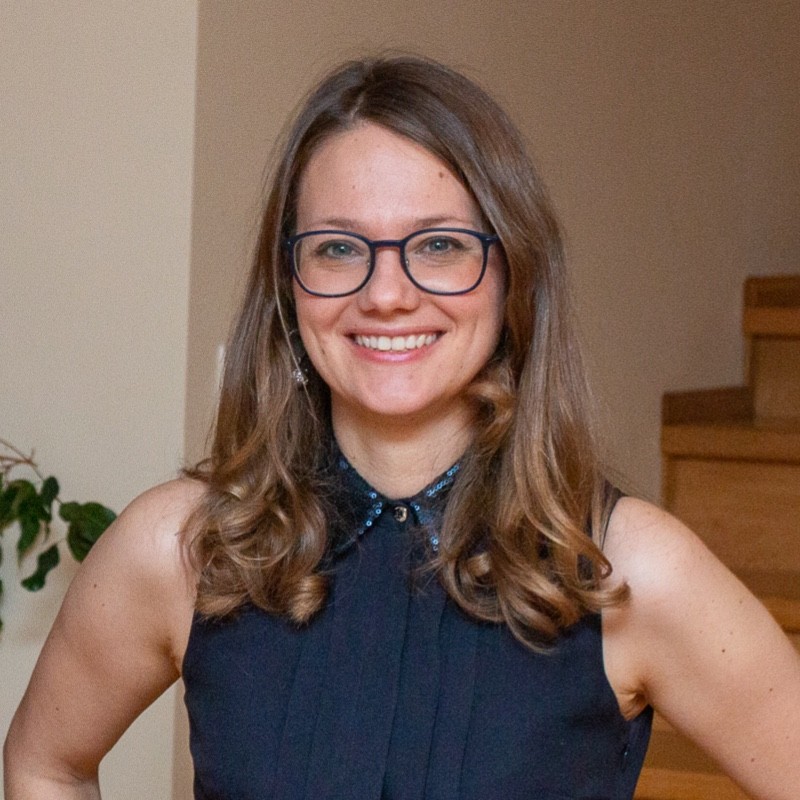 Dr. Marta Brandt obtained both her BCs and MCs at the Intercollegiate Faculty of Biotechnology at the University of Gdansk and Medical University of Gdansk. She conducted her master thesis research in Molecular Bacteriology Group led by Prof. dr hab Michal Obuchowski. After graduating in 2011, she obtained La Caixa fellowship to pursue her graduate studies at the Spanish National Cancer Research Center (CNIO) in Madrid. During her PhD in the laboratory of Dr. Nabil Djouder she was investigating contribution of nutrient signaling and mTOR kinase to the development of colorectal cancer in mouse models. Her research demonstrated that inhibition of mTOR has dual outcomes depending on the etiology of the tumor. After defending her PhD in 2017, she joined the laboratory of Dr. Ramnik Xavier at the Broad Institute of MIT and Harvard in 2018, first as a Postdoc and now as a Research Scientist. Her work is focused on translating human genetics to functional biology related to antifungal immune response and inflammatory bowel disease.
Dr. Marta Brandt obtained both her BCs and MCs at the Intercollegiate Faculty of Biotechnology at the University of Gdansk and Medical University of Gdansk. She conducted her master thesis research in Molecular Bacteriology Group led by Prof. dr hab Michal Obuchowski. After graduating in 2011, she obtained La Caixa fellowship to pursue her graduate studies at the Spanish National Cancer Research Center (CNIO) in Madrid. During her PhD in the laboratory of Dr. Nabil Djouder she was investigating contribution of nutrient signaling and mTOR kinase to the development of colorectal cancer in mouse models. Her research demonstrated that inhibition of mTOR has dual outcomes depending on the etiology of the tumor. After defending her PhD in 2017, she joined the laboratory of Dr. Ramnik Xavier at the Broad Institute of MIT and Harvard in 2018, first as a Postdoc and now as a Research Scientist. Her work is focused on translating human genetics to functional biology related to antifungal immune response and inflammatory bowel disease.
Structural basis for dynamic regulation of expression of a toxin-antitoxin system in Salmonella
Speaker: dr Grzegorz Grabe, Harvard Medical School, US
Talk: Structural basis for dynamic regulation of expression of a toxin-antitoxin system in Salmonella
Time: 09.12.2022, 9:00 am
Venue: Novotel Gdańsk Marina
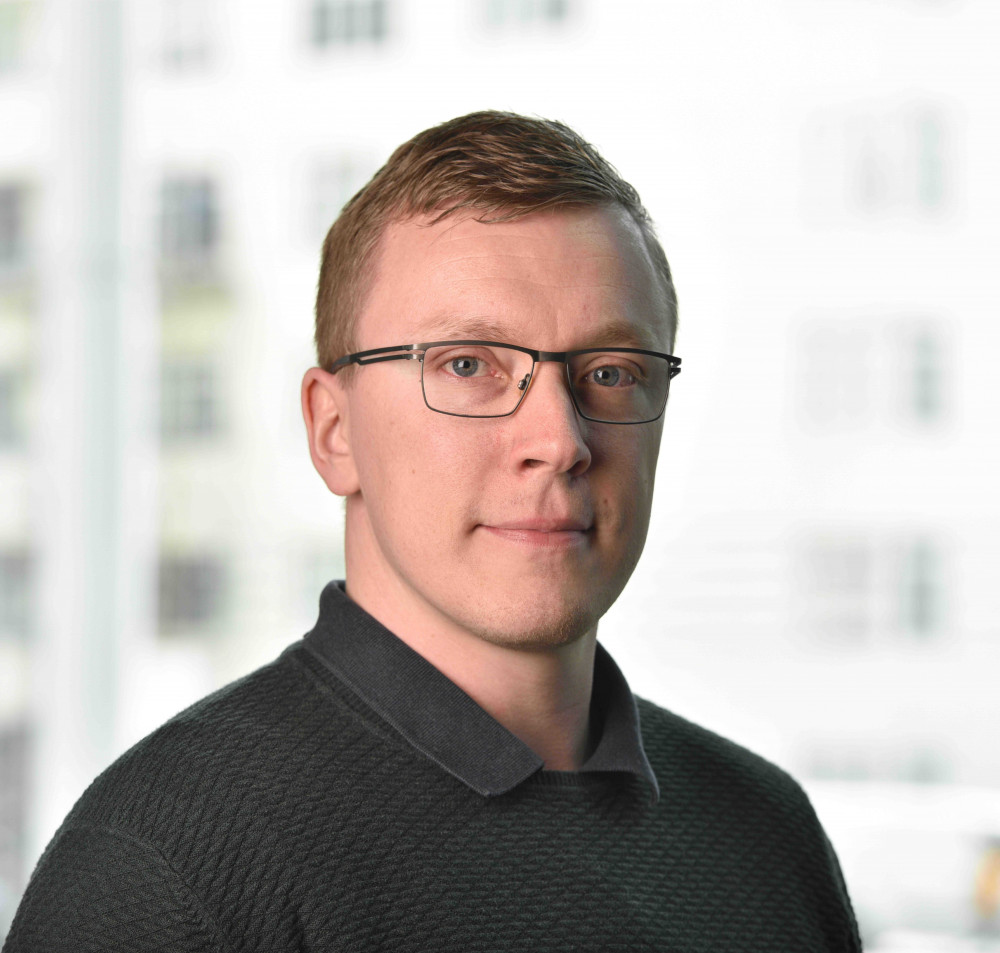
Grzegorz Grabe received his BSc (2007) and MSc (2010) degrees at Intercollegiate Faculty of Biotechnology in University of Gdansk and Medical University of Gdansk. In 2011 he was awarded the Wellcome Trust MRes+PhD studentship that he undertook at Imperial College London in a research group of Professor David Holden. While there, he studied virulence of an intracellular bacterial pathogen, Salmonella enterica. Having obtained his PhD degree in 2016, he then joined the lab of Professor Sophie Helaine at Imperial College London and later Harvard Medical School to study mechanisms of neutralization and regulation of Salmonella enterica toxin-antitoxin systems.
A molecular switch to adjust activity and specificity of the quality control ubiquitin ligase CHIP
Speaker: dr Wojciech Pokrzywa, Laboratory of Protein Metabolism at the International Institute of Molecular and Cell Biology in Warsaw
Talk: A molecular switch to adjust activity and specificity of the quality control ubiquitin ligase CHIP
Time: 25.11.2022, 9:00 am
Venue: Intercollegiate Faculty of Biotechnology, Abrahama 58, hall 042B
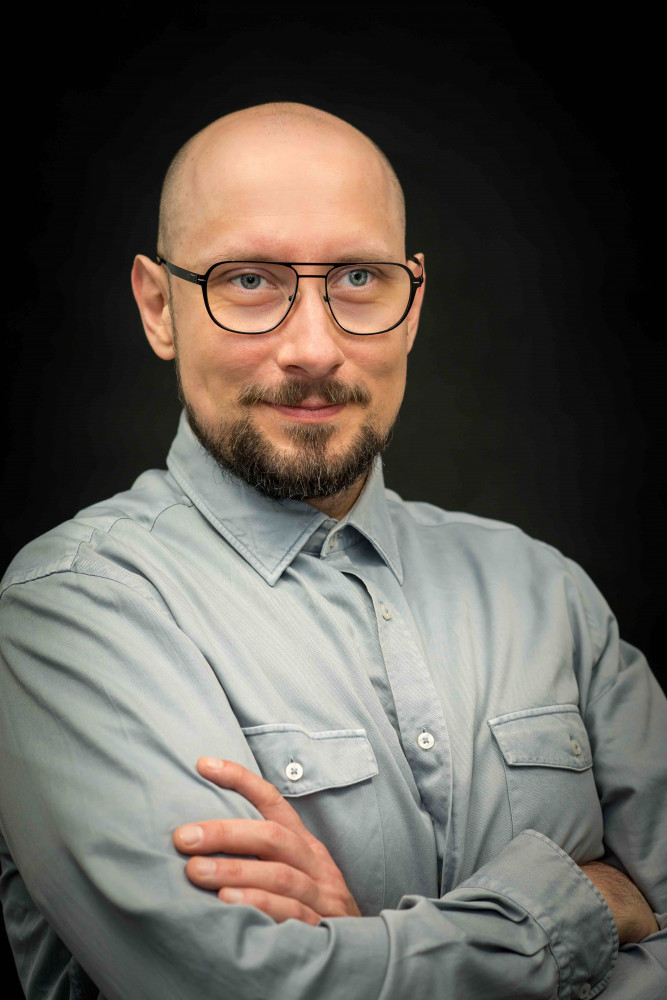 Dr hab. Wojciech Pokrzywa is a molecular biologist heading the Laboratory of Protein Metabolism at the International Institute of Molecular and Cell Biology in Warsaw. His research focuses on the ubiquitin-proteasome system, chaperone network, regulation of translation, and muscular exophers in proteostasis. His laboratory uses a combination of biochemical, microscopic, molecular genetics, and bioinformatics techniques, supported by mammalian cell assays and the nematode Caenorhabditis elegans.
Dr hab. Wojciech Pokrzywa is a molecular biologist heading the Laboratory of Protein Metabolism at the International Institute of Molecular and Cell Biology in Warsaw. His research focuses on the ubiquitin-proteasome system, chaperone network, regulation of translation, and muscular exophers in proteostasis. His laboratory uses a combination of biochemical, microscopic, molecular genetics, and bioinformatics techniques, supported by mammalian cell assays and the nematode Caenorhabditis elegans.
Wojciech received his first M.Sc. degree in Microbiology at the University of Wroclaw, Poland. Next, he moved to Belgium, where he obtained his second M.Sc. degree and his Ph.D. in Biological Engineering and Agronomic Sciences at the Catholic University of Louvain. He did his postdoctoral fellowship at the Cologne Excellence Cluster on Cellular Stress Responses in Aging-Associated Diseases (CECAD), University of Cologne, Germany, in the group of prof. Thorsten Hoppe, during which he published in, i.a., Cell, Cell Metabolism, Nature Communications, or Nature Structural & Molecular biology. Since 2017 he runs his own interdisciplinary research group at the International Institute of Molecular and Cell Biology in Warsaw and has already published several articles in journals such as EMBO Journal, EMBO reports, Molecular Cell, and Nature Communications.
Wojciech is an awardee of multiple national and European grants, many of which are for highly collaborative projects with Polish and international groups. He received OPUS, GRIEG, and SONATA BIS from the National Science Centre (Poland), FIRST TEAM from the Foundation for Polish Science, EMBO Installation Grant, and funding from the German Research Foundation (DFG) for the consortium project on mechanical stress protection. Wojciech is also a keen science popularizer – apart from conducting the lectures at the Festival of Science in Warsaw, he recently received a Social Responsibility of Science grant from the Ministry of Education and Science for developing an educational computer game about the mechanisms of protein degradation. In addition, Wojciech is also a successful mentor of early career researchers, as his Ph.D. students receive prestigious awards, including the PRELUDIUM grants from the National Science Centre (Poland) or Fulbright Junior Research Award.
Mitochondrial DNA: bystander or active contributor to inflammation?
Speaker: prof. Bartosz Szczesny, University of Texas Medical Branch, Galveston, USA
Talk: "Mitochondrial DNA: bystander or active contributor to inflammation?"
Time: 18.11.2022, 9:00 am
Venue: Intercollegiate Faculty of Biotechnology, Abrahama 58, hall 042B
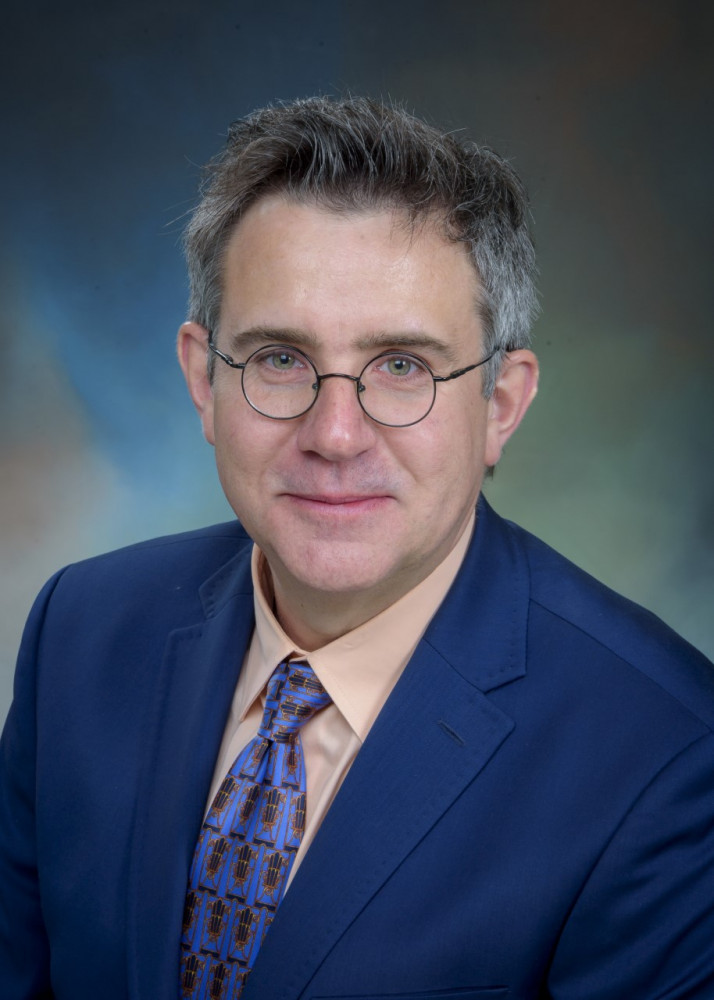 Bartosz Szczesny, PhD is an associate professor in the Departments of Ophthalmology and Visual Sciences, and Anesthesiology at the University of Texas Medical Branch (UTMB) at Galveston, Texas. He completed his MSc and PhD at the University of Wroclaw, Poland, and postdoctoral training at UTMB. The focus of his research group is to understand the role of mitochondrial dysfunction, particularly mitochondrial DNA damage and repair, in physiological and pathological conditions. He will be discussing the dual role of mitochondrial DNA that is actively released from injured cells via extracellular vesicles as an important signaling molecule in the induction of inflammatory response, and as a novel marker of cell injury. He will present recent advances in understanding the novel role of damaged mitochondrial DNA derived from epithelial cells in activation of microglia in the central nervous system/retina and alveolar macrophages in lungs. He will also present recently developed and validated method for fast, inexpensive, and accurate measurement of cell free DNA as a liquid biopsy technology for the early detection and quantitative monitoring of trauma severity. He will be discussing the presence of cell/organ specific markers within circulating extracellular vesicles containing DNA as a novel biomarker for the assessment of traumatic brain injury. His research is supported by NIH, NSF, and private foundations.
Bartosz Szczesny, PhD is an associate professor in the Departments of Ophthalmology and Visual Sciences, and Anesthesiology at the University of Texas Medical Branch (UTMB) at Galveston, Texas. He completed his MSc and PhD at the University of Wroclaw, Poland, and postdoctoral training at UTMB. The focus of his research group is to understand the role of mitochondrial dysfunction, particularly mitochondrial DNA damage and repair, in physiological and pathological conditions. He will be discussing the dual role of mitochondrial DNA that is actively released from injured cells via extracellular vesicles as an important signaling molecule in the induction of inflammatory response, and as a novel marker of cell injury. He will present recent advances in understanding the novel role of damaged mitochondrial DNA derived from epithelial cells in activation of microglia in the central nervous system/retina and alveolar macrophages in lungs. He will also present recently developed and validated method for fast, inexpensive, and accurate measurement of cell free DNA as a liquid biopsy technology for the early detection and quantitative monitoring of trauma severity. He will be discussing the presence of cell/organ specific markers within circulating extracellular vesicles containing DNA as a novel biomarker for the assessment of traumatic brain injury. His research is supported by NIH, NSF, and private foundations.
Applications of Genetic and Genomic Technologies in Animal Production
Speaker: dr Andrzej Sosnicki, Global Technical Projects, US
Talk: "Applications of Genetic and Genomic Technologies in Animal Production"
Time: 28.10.2022, 9:00 am
Venue: Intercollegiate Faculty of Biotechnology, Abrahama 58, hall 042B
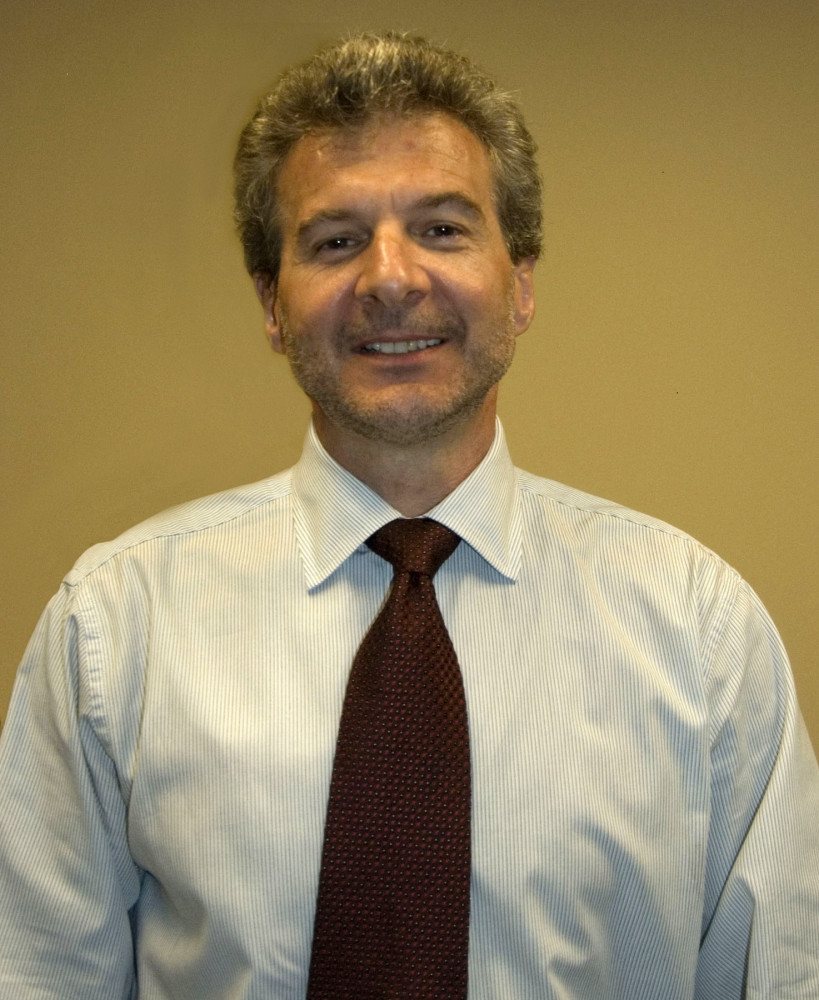 Andrzej Sosnicki received his MS in Biology/Animal Physiology and Ph.D. in Agricultural Sciences/Muscle Biology from the University of Life Sciences in Poznan, Poland. As an Assistant and then Associate Professor he was conducting skeletal muscle physiology and pathology research, and he taught undergraduate and graduate courses at the Department of Zootechnical Sciences.
Andrzej Sosnicki received his MS in Biology/Animal Physiology and Ph.D. in Agricultural Sciences/Muscle Biology from the University of Life Sciences in Poznan, Poland. As an Assistant and then Associate Professor he was conducting skeletal muscle physiology and pathology research, and he taught undergraduate and graduate courses at the Department of Zootechnical Sciences.
In 1985 Andrzej relocated to the Muscle Biology & Meat Science Laboratory, University of Wisconsin-Madison where he studied muscle histopathology and meat quality of poultry and red-meat animals. Subsequently, in 1988 he moved to the Department of Zoology, University of Tennessee, Knoxville, where he researched skeletal muscle physiology & locomotion. In 1989 Andrzej joined the Department of Biology at the University of Pennsylvania, Philadelphia, where he further focused on studying physiological principles of skeletal muscle function during locomotion.
In 1990 Dr. Sosnicki relocated back to Madison, WI where he worked at the R&D Department of Oscar Mayer Foods Corporation (OMFC)/Kraft Foods Corp. At OMFC he was a Manager of the Animal & Poultry Research division directing integrative research focusing on creating value in vertically integrated poultry & pork production and meat processing systems.
In 1995 joined PIC to establish and manage the company’s Muscle Biology Program, emphasizing the commercial importance of pig carcass value in Pig Improvement Company (PIG) genetic improvement program. During his tenure at PIC, he has also developed and managed PIC’s Performance Validation Program, and he has been Director of Genus-PIC Global Technical Services. He has also been responsible for P&L of business accounts in North and Latin America and in the EU. Dr. Sosnicki is currently Director of Global Technical Projects further integrating pig growth and skeletal muscle physiology into the matrix of PIC’s genetic improvement program.
Dr. Sosnicki is the author/co-author of over forty publications, six book chapters and several popular-science articles. He was an Adjunct Associate Professor at the Department of Animal Science of Iowa State University, Ames, IA in 2002-2010, and an Adjunct Associate Professor at the Department of Animal & Avian Sciences of the University of Maryland, College Park, MD in 2016-2019. He is a reviewer of American Meats Science Association’s ‘Myth Crusher’, Meat Science, Livestock Sciences (also a member of the Editorial Committee), and Journal of Animal Science scientific magazines. He received American Meat Institute Distinguished Extension-Industry Service Award in 2013 and American Meat Science Association’s International Lectureship Award in 2015.
The title of the Seminar “Applications of Genetic and Genomic Technologies in Animal Production” clearly implies that the seminar will primarily focus on the practical aspects of Animal Breeding & Production, although the information will not be all inclusive due to limited time availability. We will discuss the value of animal genetic and genomics tools, computation technology, elite farms housing pure lines, commercial lines, and cross-bred pedigreed populations as the foundation of the best possible rates of genetic improvement.
Today, the global production-to-consumption animal-source food systems are complex, and meats now are safer, tastier, more nutritious, abundant, diverse, and convenient, and less costly than ever before. Future advancements in genetic and genomic selection will enable implementation of more complex and successful breeding programs further contributing to the success of the modern, sustainable pork production.
Genetic mechanisms in atopic eczema – from population to cell biology
Speaker: prof. Sara Brown, The University of Edinburgh, UK
Talk: "Genetic mechanisms in atopic eczema – from population to cell biology"
Time: 21.10.2022, 9:00 am
Venue: Intercollegiate Faculty of Biotechnology, Abrahama 58, hall 042B
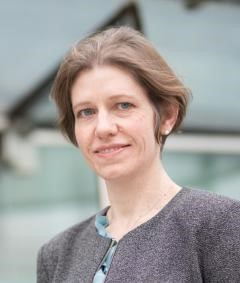 Professor Sara Brown is a clinical academic, with research focused on genetic predisposition to the inflammatory skin disease atopic/eczema and associated systemic conditions. She graduated with Honours in Medicine & Surgery from the University of Edinburgh and completed her specialist training in Dermatology in Newcastle-upon-Tyne and then obtained an MD in Human Genetics with commendation in 2008. She spent 10 months as a post-CCT Fellow in Paediatric Dermatology in Dublin, Ireland, before moving to Dundee in October 2009.
Professor Sara Brown is a clinical academic, with research focused on genetic predisposition to the inflammatory skin disease atopic/eczema and associated systemic conditions. She graduated with Honours in Medicine & Surgery from the University of Edinburgh and completed her specialist training in Dermatology in Newcastle-upon-Tyne and then obtained an MD in Human Genetics with commendation in 2008. She spent 10 months as a post-CCT Fellow in Paediatric Dermatology in Dublin, Ireland, before moving to Dundee in October 2009.
Sara was awarded a Wellcome Trust Intermediate Clinical Fellowship in 2009, to continue her research on the role of filaggrin in atopic disease. In 2014 Sara established her own lab in the School of Medicine and in 2015 was the first UK dermatologist to be awarded a prestigious Wellcome Trust Senior Research Fellowship in Clinical Science, in recognition and support of her on-going research in molecular genetic dermatology focussed on understanding eczema pathogenesis. In 2015 Sara was promoted to a Personal chair in Molecular and Genetic Dermatology. Her lab moved to the Institute of Genetics and Cancer, University of Edinburgh in 2020.
Sara become interested in genetic mechanisms underlying skin disease at the time of the ground-breaking discovery of FLG mutations. She conducted the first population-based cohort study to show that FLG null mutations affect risk of the milder eczema phenotype that is very prevalent in the community, in addition to the severe disease. Sara continued her research in atopic eczema and she has developed a pipeline of discovery from genomic and genetic variation at the population level, to subgroups in vivo and mechanistic studies in vitro. She is an active member of a European Barrier Epidermal Research Network (E2BRN) and was recently elected its co-chair; she also takes part in Europe-wide COST initiatives related to the skin. As a clinician-scientist Sara has participated in multiple research trials and multi-centre studies focused on eczema genetics. Her contributions include multiple publications in high-end journals, incl. J Allergy Clin Immunol, Lancet, J Investigative Dermatology, Nature Genetics, Nature Communications, PLOS One Medicine, J Am Acad Dermatology.
Allele differences in the sRNA arcZ gene result in variant prokaryotic and eukaryotic antimicrobial activities of Dickeya solani against bacteria, yeast and fungi.
Speaker: dr Erwan Gueguen, University of Lyon, Laboratory MAP CNRS UMR5240
Talk: "Allele differences in the sRNA arcZ gene result in variant prokaryotic and eukaryotic antimicrobial activities of Dickeya solani against bacteria, yeast and fungi."
Time: 14.10.2022, 9:00 am
Venue: Intercollegiate Faculty of Biotechnology, Abrahama 58, hall 042
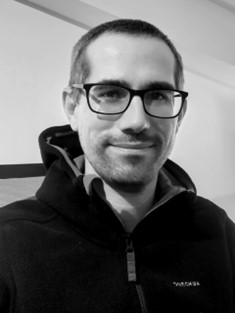 Abstract:
Abstract:
The necrotrophic plant pathogenic bacterium Dickeya solani is an invader of the potato agrosystem in Europe. All isolated strains of D. solani contain several large polyketide/fatty acid/non-ribosomal peptide synthetase clusters. Analogy with genes described in other bacteria suggests that two clusters are involved in the production of secondary metabolites of the oocydin and zeamine families. A 3rd cluster that we named ssm for Solani secondary metabolite had an unknown function. In this study, we used a reverse genetics strategy to create mutants impacted in the three secondary metabolite clusters ssm, ooc, and zms to compare the phenotype of the D. solani strain D s0432-1 with its associated mutants. We demonstrated the antimicrobial functions of these three PKS/NRPS clusters against, yeasts and fungi of the phylum Ascomycota. We unveiled the function of the new secondary metabolite cluster ssm (for solani secondary metabolite), only conserved in some Dickeya species, which produces a secondary metabolite inhibiting yeasts. Finally, phenotyping and small-scale comparative genomic of WT isogenic D. solani strains led us to the discovery that the sRNA ArcZ plays a primary role in the control of the three PKS/NRPS clusters ssm, ooc and zms.
CV of Erwan Gueguen:
Erwan Gueguen received his PhD in molecular microbiology from Paul Sabatier University in 2006, where he explored the transposition mechanism of the mobile genetic element IS911. He completed his postdoctoral training in two distinct labs. From 2007 to 2010, he worked in Andrew Darwin's laboratory at New York University, where he studied the Psp stress response system of Yersinia enterocolitica, and from 2010 to 2012, he worked in Eric Cascales' lab at CNRS in Marseille, France, where he studied the type 6 secretion systems of bacteria in the genus Yersinia and Citrobacter. In 2012, he was hired as a permanent researcher and lecturer at the University of Lyon (France) to investigate first the resistance of bacteria to heavy metals and then the mechanism of plant infection by bacteria of the genus Dickeya. Erwan Gueguen is a bacterial genetics expert. He recently developed the high-throughput transposon sequencing approach for the bacterium Dickeya dandatii and cooperated on its application in D. solani and Xanthomonas hortorum. He recently became interested in the bacterium Dickeya solani, a very aggressive pathogen of potato agrosystem. Dr Gueguen is also very involved in teaching. He is the head of the microbial genetics teaching team and the head of the microbiology program for the life sciences degree at the Claude Bernard University in Lyon.
A short presentation of Typhaine Brual, a PhD student of Dr. Erwan Gueguen will follow the talk of Dr. Gueguen
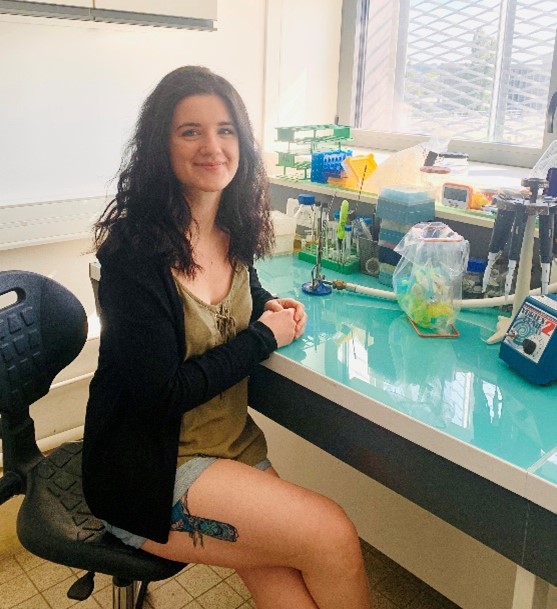 Abstract:
Abstract:
Regulation of the virulence of pectinolytic bacteria by RsmC protein
Pectinolytic bacteria are responsible for soft rot disease in plants. At the beginning of the infection, these bacteria multiply while evading the plant's immune system. When they are in sufficient numbers, they produce enzymes such as pectinases to digest the plant cell wall[1]. The timing of the onset of pectinases secretion is decisive and is finely regulated: if it occurs too early, the infection is not efficient. Motility is also crucial for host colonization an immobile mutant does not cause symptoms. The flagellum is also a target of the plant immune system, so its synthesis is highly controlled. Deciphering these regulatory mechanisms is important for understanding the development of virulence in these bacteria. A previous work from my laboratory showed that a protein named RsmC would play a role in the control of virulence in Dickeya dadantii, a model organism of pectinolytic bacteria[2]. The rsmC gene is conserved only in Pectobacteriaceae and has been poorly studied.The structure of RsmC is unknown and only one study describes this protein as an "anti-FlhDC protein", i.e. a repressor of the FlhDC regulator, a complex regulating both motility and secretion of pectinases[3].
The objective of my work is to understand the role of RsmC in the regulation of virulence in D. dadantii using two approaches: 1) Defining the interactome of RsmC, to understand by which intermediary this protein exerts its function; 2) Deciphering the expression conditions of the rsmC gene to study when and how RsmC intervenes in the life cycle of D. dadantii.
[1] Hugouvieux-Cotte-Pattat N. et al., 2020. eLS John Wiley & Sons, Ltd : Chichester
[2] Royet K. et al., 2019. Molecular Plant Pathology, 20,287-306.
[3] Chatterjee A. et al., 2009. Journal of Bacteriology, 191, 4582-4593.
Modelling of SARS-CoV-2 infection as a tool to reveal new viral mechanisms
Speaker: dr Tomasz Turowski, IBB PAN, Warszawa
Talk: "Modelling of SARS-CoV-2 infection as a tool to reveal new viral mechanisms"
Time: 10.06.2022, 9:00 am
Venue: Intercollegiate Faculty of Biotechnology, Abrahama 58, hall 042
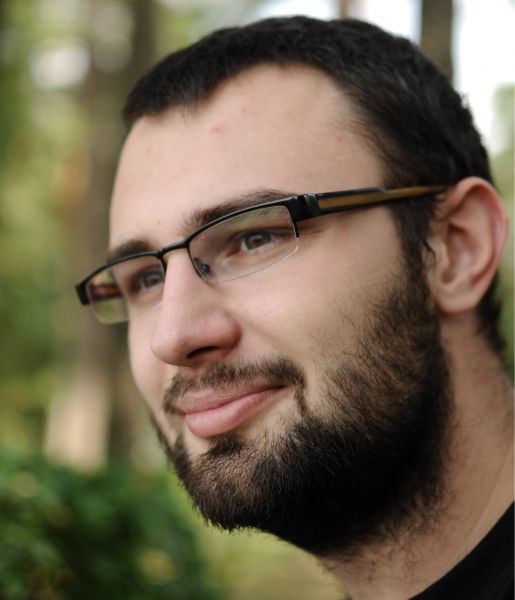
Dr. Tomasz Turowski holds a Master Degree in Molecular Biology (from Nicolaus Copernicus University in Torun). In 2013 he was awarded his PhD in Chemistry at the Warsaw University of Technology (Institute of Biotechnology), working on coupling between tRNA transcription and decay under the supervision of Prof. Magdalena Rakowska-Boguta. He carried out his postdoctoral training at the Wellcome Centre for Cell Biology at the University of Edinburgh (Scotland, UK) in the group of Prof. David Tollervey. During this time, he got interested in biochemistry and bioinformatics. Tomasz’s research interests include transcription elongation of RNA polymerase I and III, which are relatively unique transcription systems in higher organisms. During the SARS-CoV-2 pandemic he participated in a collaborative effort to characterize SARS-CoV-2 host-virus interactions during viral infection. His recent work combines an interdisciplinary approach utilising UV cross-linking in vivo, bioinformatics and mathematical modelling. Tomasz was awarded a Polish Return grant funded by NAWA and in August 2021 started his own group at the Institute of Biochemistry and Biophysics Polish Academy of Sciences in Warsaw. The Laboratory of Transcription Mechanisms headed by Dr. Turowski is interested in understanding how the transcription affects gene regulation. They apply basic knowledge to problems such as SARS-CoV-2 transcription and RNA polymerase III-related leukodystrophy.
Functional Lipid liquid-liquid immiscibility at immune interfacial barriers
Speaker: dr Jorge Bernardino De La Serna, Faculty of Medicine, National Heart & Lung Institute, Imperial College London
Talk: "Functional Lipid liquid-liquid immiscibility at immune interfacial barriers"
Time: 27.05.2022, 9:00 am
Venue: Intercollegiate Faculty of Biotechnology, Abrahama 58, hall 042
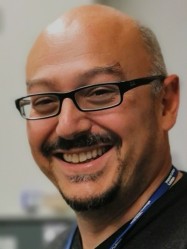
Dr Bernardino de la Serna holds two Master Degrees, one in Chemistry and another in Biochemistry (from University Complutense of Madrid (Spain). He was awarded his PhD at the working in the Department of Biochemistry and Molecular Biology under the supervision of Prof. Perez-Gil.
He carried out his postdoctoral training at the Center for BioMembrane Physics (MEMPHYS) at the University of Southern Denmark. In 2014 Jorge was awarded Marie Skłodowska-Curie Career Integration Fellowship and moved to the University of Oxford (United Kingdom). There he was based at the MRC-Weatherall Institute of Molecular Medicine, Nuffield Department of Medicine, in the group of Prof. Christian Eggeling. During this time he got interested in super resolution imaging and undertook additional training in super-resolution fluorescence microscopy at the lab of Nobel Prize Laureate Prof. Stephan Hell at the Max Planck Institute for Biophysical Chemistry, Göttingen (Germany). Thereafter, he moved to the Oxford-Harwell Campus to undertake a new role of a Staff Scientist at the United Kingdom Research and Innovation (UKRI), working at the Central Laser Facility at the Rutherford Appleton Laboratory. In 2019 Jorge joined the National Heart and Lung Institute, Imperial College London (United Kingdom) as a Senior Lecturer. His academic career also includes additional research stays, e.g. fellowship at the Humboldt University in Berlin and stays at the University of California at Santa Barbara, Venezuelan Institute for Scientific Investigations (IVIC) in Caracas Venezuela, SENAI/CETIQT in Rio de Janeiro, Brazila and Umeå University in Sweden.
Jorge’s interests include research on molecular sensing and remodeling in the airways, interactions between host cell and toxic pollutants, nanoparticles and pathogens, engineered nanoparticles as drug delivery systems, organ-on-a-chip models and advanced imaging techniques, incl. super-resolution (STED) fluorescence microscopy.
Immune modulatory extracellular vesicles: applications as biomarkers and for clinical treatment
Speaker: prof. Susanne Gabrielsson, Karolinska Institutet, Department of Medicine Clinical Allergy Research Unit, Solna, Sweden
Talk: "Immune modulatory extracellular vesicles: applications as biomarkers and for clinical treatment"
Time: 06.05.2022, 9:00 am
Venue: Intercollegiate Faculty of Biotechnology, Abrahama 58, hall 042
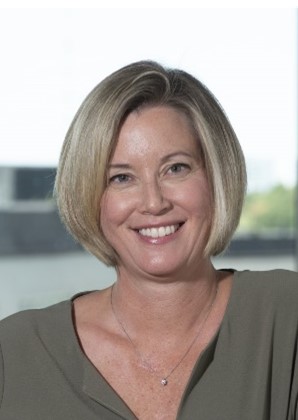
Prof. Gabrielsson graduated with a PhD from Stockholm University. She then moved to France for as a postdoc at the Curie Institute in Paris, developing interest in dendritic cells and T cell responses. After this, she returned to Sweden and established a group dedicated to exosome research at the Karolinska Institutet. Susanne has been a pioneer in the field of immune effects of exosomes and she is one of the leading authors of the field having published 37 articles on the subject.
She was the first to describe the presence of exosomes in bronchoalveolar lavage fluid, as well as in breast milk. Her work has revealed that exosomes are major players in lung diseases such as asthma and sarcoidosis, where they contribute to inflammation. Professor Gabriellson lab carries out studies in animal models to give new insights into the role of exosomes in cancer progression. She also has a major interest in exosome-based therapies for immunotherapeutic applications or biomarkers in cancer.
Modeling protein-glycosaminoglycan interactions in biologically relevant systems
Speaker: Sergey Samsonov
Talk: "Modeling protein-glycosaminoglycan interactions in biologically relevant systems"
Time: 08.04.2022, 9:00 am
Venue: Online and Live in the "IFB seminars" group of MS Teams. Group password: ypidr3d
.jpg) Sergey Samsonov graduated in Biophysics at Peter the Great St. Petersburg Polytechnic University in 2006. He obtained his first PhD in 2009 in Bioinformatics at the Dresden University of Technology, where he investigated the impact of solvent and effects of fluorination in protein-protein interactions. In 2010 he obtained his second PhD title in the field of Biochemistry at St. Petersburg University for the continuation of his Master Thesis topic on copper metabolism proteins. Since then and until 2017 he was a postdoctoral researcher in the group of Structural Bioinformatics at Dresden University of Technology within the project “Transregio 67: Functional biomaterials for controlling healing processes in bone and skin tissue – from material to clinic”, where he started to work in the field of modelling glycosaminoglycans (GAG) containing biomolecular systems. In 2017 he received a joint grant from National Centre of Sciences (Poland) and EU Commission within POLONEZ Programme to start his own research group at the University of Gdańsk. In 2018 he obtained the title of dr hab. at the University of Tours (France) (Habilitation à diriger des recherches). In 2019, he received two new grants from National Centre of Sciences (Poland), one of which is within collaborative Programme with German Research Council, both of which represent the extension of his GAG modeling studies. His research interests are in approaching the understanding of various aspects of GAG interactions with other biomacromolecules and development of specific methodology for this class of polysaccharides with the assistance of molecular docking, molecular dynamics, free energy calculations and quantum chemistry approaches.
Sergey Samsonov graduated in Biophysics at Peter the Great St. Petersburg Polytechnic University in 2006. He obtained his first PhD in 2009 in Bioinformatics at the Dresden University of Technology, where he investigated the impact of solvent and effects of fluorination in protein-protein interactions. In 2010 he obtained his second PhD title in the field of Biochemistry at St. Petersburg University for the continuation of his Master Thesis topic on copper metabolism proteins. Since then and until 2017 he was a postdoctoral researcher in the group of Structural Bioinformatics at Dresden University of Technology within the project “Transregio 67: Functional biomaterials for controlling healing processes in bone and skin tissue – from material to clinic”, where he started to work in the field of modelling glycosaminoglycans (GAG) containing biomolecular systems. In 2017 he received a joint grant from National Centre of Sciences (Poland) and EU Commission within POLONEZ Programme to start his own research group at the University of Gdańsk. In 2018 he obtained the title of dr hab. at the University of Tours (France) (Habilitation à diriger des recherches). In 2019, he received two new grants from National Centre of Sciences (Poland), one of which is within collaborative Programme with German Research Council, both of which represent the extension of his GAG modeling studies. His research interests are in approaching the understanding of various aspects of GAG interactions with other biomacromolecules and development of specific methodology for this class of polysaccharides with the assistance of molecular docking, molecular dynamics, free energy calculations and quantum chemistry approaches.
Symsagittifera roscoffensis as a main Actor* of The Plant~Animals ~ Symbiosity of Creation
Speaker: Elvin Flamingo and Xavier Bailly
Talk: "Symsagittifera roscoffensis as a main Actor* of The Plant~Animals ~ Symbiosity of Creation"
Time: 11.03.2022, 9:00 am
Venue: Online in the "IFB seminars" group of MS Teams. Group password: ypidr3d
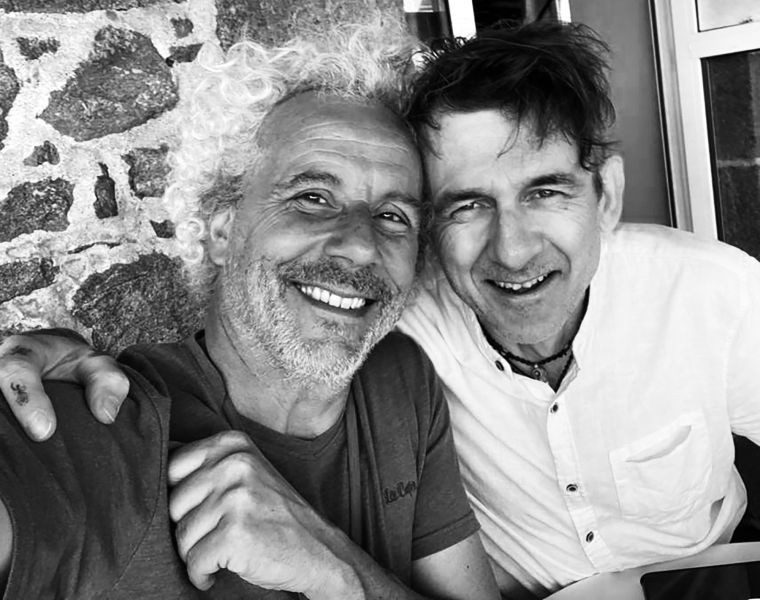 Elvin Flamingo is an artist working in the fields of Bioart and Art&Science. His projects combine art, biology, and technology. His most important project, thus far, is The Symbiosity of Creation, which was the topic of his doctoral thesis. It began in 2012 and is planned to continue to 2034. The work's point of departure is the cultivation of exotic ants. It consists of three parts invoking the themes of destruction and re-creation. The Symbiosity of Creaton received broad national and international coverage and was presented at various exhibitions, including Kunsthal Aarhus in Denmark, at the Art&Science Convesations seminar in Kassel, Germany, and at TEDx Between Genres exhibition in Gdynia. It received the Critic's Award at the Media Art Biennale WRO: Test Exposure, Wrocław, Poland, in 2015.
Elvin Flamingo is an artist working in the fields of Bioart and Art&Science. His projects combine art, biology, and technology. His most important project, thus far, is The Symbiosity of Creation, which was the topic of his doctoral thesis. It began in 2012 and is planned to continue to 2034. The work's point of departure is the cultivation of exotic ants. It consists of three parts invoking the themes of destruction and re-creation. The Symbiosity of Creaton received broad national and international coverage and was presented at various exhibitions, including Kunsthal Aarhus in Denmark, at the Art&Science Convesations seminar in Kassel, Germany, and at TEDx Between Genres exhibition in Gdynia. It received the Critic's Award at the Media Art Biennale WRO: Test Exposure, Wrocław, Poland, in 2015.
The Symbiosity of Creation is a manifesto, which involves — among others — the following points:
• The Symbiosity of Creation is a change in the position of the author from demiurge to participant.
• SC is a shared creation conducted with utter devotion full respect for all participating beings.
• SC lacks the possibility of creating only for the time of exhibition — it is necessary to foresee carefully the future of the work.
• SC is a process in which everything has meaning, both the decisions of the human-artist and the non-humans participating in the process — the decisions of both parties have a creative influence on one and other, and it does not matter which decisions are more important.
Other important works of Elvin Flamingo include • The Language of Stray Bodies, • Self Cells Portrait, • New-Bio-Territories, • We—The Common Body, • After Humans, the Biocorporation, • Reconstruction of Non-human Culture.
In 2021 Elvin Flamingo started to work on Plant~Animals ~ Symbiosity of Creation in cooperation with Xavier Bailly Ph.D, which premiered at the program of Ars Electronica, Linz, Austria in 2021.
Elvin Flamingo (prof. ASP dr hab. Jarosław Czarnecki) is also lecturer at the Faculty of Sculpture and Intermedia of the Academy of Fine Arts in Gdańsk, Poland and was the Associate Dean of Intermedia (2016-2019).
* the Actor corresponds with the ANT (Actor Network Theory) by Bruno Latour
Transcriptional memory of interferon gamma target genes
Speaker: dr Wojciech Siwek, Harvard Medical School, USA, ICCVS, University of Gdańsk
Talk: "Transcriptional memory of interferon gamma target genes"
Time: 25.02.2022, 2:00 pm
Venue: Online in the "IFB seminars" group of MS Teams. Group password: ypidr3d.
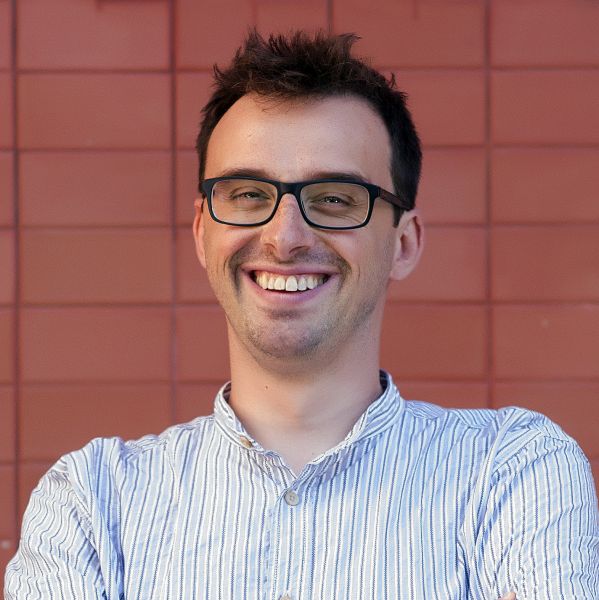 Dr Wojciech Siwek graduated from the University of Warsaw. He did his PhD at the International Institute of Molecular and Cell Biology, Warsaw followed by two postdocs at Instituto Gulbenkian de Ciência, Lisbon, Portugal & Department of Biochemistry, University of Oxford, UK. Currently, he is an independent Marie Skłodowska-Curie research fellow at Massachusetts General Hospital, Harvard Medical School, Boston, USA & International Centre for Cancer Vaccine Science, University of Gdańsk. Dr Siwek is interested in epigenetic mechanisms in innate immunity and transcriptional memory.
Dr Wojciech Siwek graduated from the University of Warsaw. He did his PhD at the International Institute of Molecular and Cell Biology, Warsaw followed by two postdocs at Instituto Gulbenkian de Ciência, Lisbon, Portugal & Department of Biochemistry, University of Oxford, UK. Currently, he is an independent Marie Skłodowska-Curie research fellow at Massachusetts General Hospital, Harvard Medical School, Boston, USA & International Centre for Cancer Vaccine Science, University of Gdańsk. Dr Siwek is interested in epigenetic mechanisms in innate immunity and transcriptional memory.
Legume tasters: The panoply of symbiotic rhizobia host preference
Speaker: prof. Alessio Mengoni, University of Florence, Italy
Talc: "Legume tasters: The panoply of symbiotic rhizobia host preference"
Time: 17/12/2021, 9:00 am
Venue: Intercollegiate Faculty of Biotechnology, Abrahama 58, hall 042
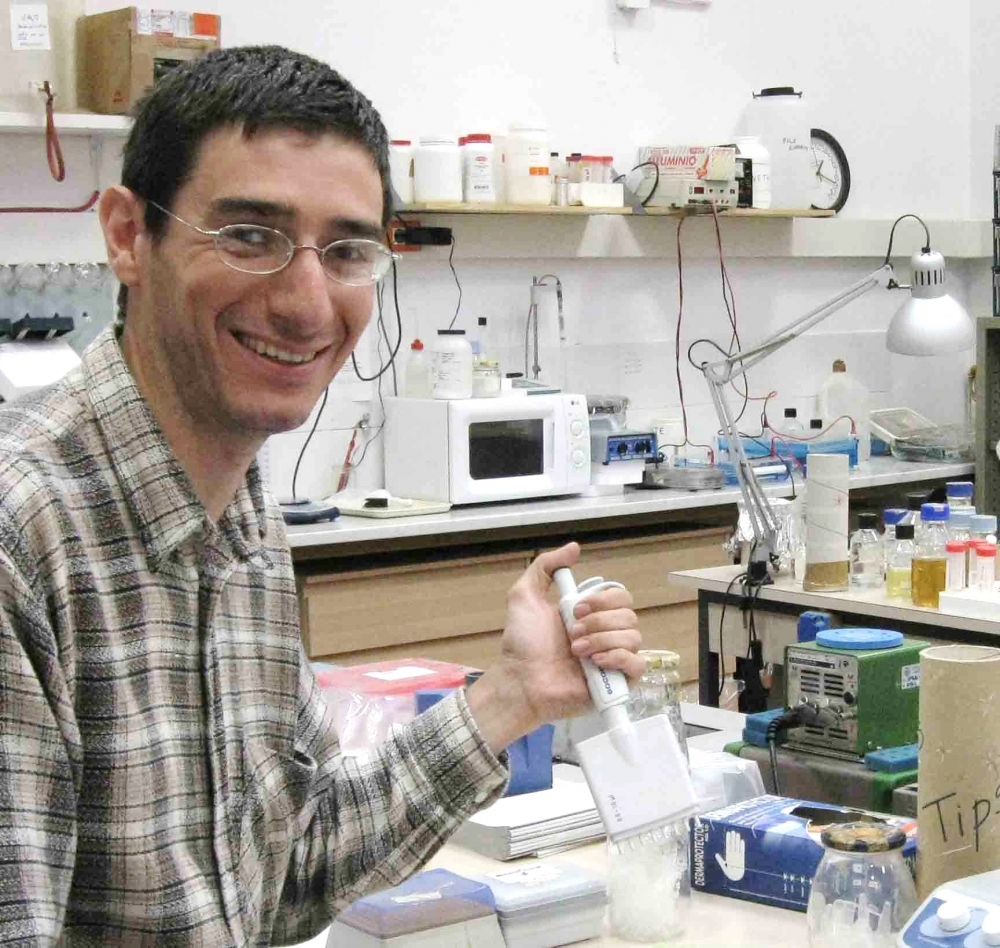 Bio: Alessio Mengoni graduated in biological sciences in 1997 and obtained a PhD in genetics from the University of Pavia in 2000. He is associate professor of Genetics, qualified as full professor, at the Department of Biology of the University of Florence and has been visiting professor at the Intercollegiate Faculty of Biotechnology MUIG & GU, Gdansk, Poland and at the School of Sun-Yat Sen University, Guangzhou, China. He holds courses in genetics, genetic engineering, genomics and systems biology in the degree programs in Biotechnology and Biology. Main research interests deal with the study of interactions between plants and microorganisms, in particular related to plant growth-promoting bacteria and plant microbiome for applications in agricultural and environmental biotechnology. He is the author of over 170 scientific articles, a patent and founding partner of a spin-off company of the University of Florence for microbiological and genetic analysis (EcolGene Srl). Bibliometric indices: h index = 37, 4105 total citations (Scopus database, October 2021). He has been PI and partner in the last 5 years of various national and international projects, including a Italian Ministry of Agriculture funded project on bioinoculants (MICRO4Legumes), a project on microbial genomic diversity of the National Research Plan in Antarctica (ANTreN), a soil metagenomics project (METATRACK, CR Firenze Foundation), a project on the microbiome of patients affected by Cystic Fibrosis (Italian Cystic Fibrosis Research Foundation), and two H2020 projects on plant bioinoculants (SIMBA) and International Space Station microbiota (BIOWYSE).
Bio: Alessio Mengoni graduated in biological sciences in 1997 and obtained a PhD in genetics from the University of Pavia in 2000. He is associate professor of Genetics, qualified as full professor, at the Department of Biology of the University of Florence and has been visiting professor at the Intercollegiate Faculty of Biotechnology MUIG & GU, Gdansk, Poland and at the School of Sun-Yat Sen University, Guangzhou, China. He holds courses in genetics, genetic engineering, genomics and systems biology in the degree programs in Biotechnology and Biology. Main research interests deal with the study of interactions between plants and microorganisms, in particular related to plant growth-promoting bacteria and plant microbiome for applications in agricultural and environmental biotechnology. He is the author of over 170 scientific articles, a patent and founding partner of a spin-off company of the University of Florence for microbiological and genetic analysis (EcolGene Srl). Bibliometric indices: h index = 37, 4105 total citations (Scopus database, October 2021). He has been PI and partner in the last 5 years of various national and international projects, including a Italian Ministry of Agriculture funded project on bioinoculants (MICRO4Legumes), a project on microbial genomic diversity of the National Research Plan in Antarctica (ANTreN), a soil metagenomics project (METATRACK, CR Firenze Foundation), a project on the microbiome of patients affected by Cystic Fibrosis (Italian Cystic Fibrosis Research Foundation), and two H2020 projects on plant bioinoculants (SIMBA) and International Space Station microbiota (BIOWYSE).
Abstract . Mutualistic interactions have great importance in biology and are key to either macro- and micro-ecosystems functioning, from biogeochemical cycles to the animal and plant microbiome. Many studies have been performed to investigate the molecular aspects of mutualism, however, the genetic repertoire needed for efficient association with host by the microbial symbionts is still poorly understood. Several studies highlighted that the expression of the desired phenotype in the host resides in species-specific, even genotype-specific interactions between the symbiotic partners. Consequently, there is a need to dissect such an intimate level of interaction, aiming to identify the main genetic components in both partners playing a role in symbiotic differences/host preferences [1]. The rhizobia are an exemplary model of microbial mutualist. They are facultative mutualist partners of leguminous plants, with which they establish nitrogen-fixing symbioses.
By applying complementary approaches spanning from computational reconstruction of metabolic interactions to transcriptomic and comparative genomic analyses, we dissected genotype-by-genotype interactions in the model symbiotic partnership between the rhizobium Sinorhizobium meliloti and the host plant (Medicago spp.).
Results from integrated rhizobium-plant genome-scale metabolic model [2], genome-wide association [3] and comparative transcriptomic analyses [4] of late and early stages of symbiosis will be presented and discussed in the light of explaining and exploiting the large genomic diversity rhizobial symbiont populations in the perspective of improving microbial inoculants formulations in sustainable agriculture practices.
Metabolic control of helper T cell lineage selection
Speaker: dr Daniel Puleston, Johns Hopkins University - US
Talk: "Metabolic control of helper T cell lineage selection"
Time: 03/12/2021, 2:00 pm
Venue: Intercollegiate Faculty of Biotechnology, Abrahama 58, hall 042
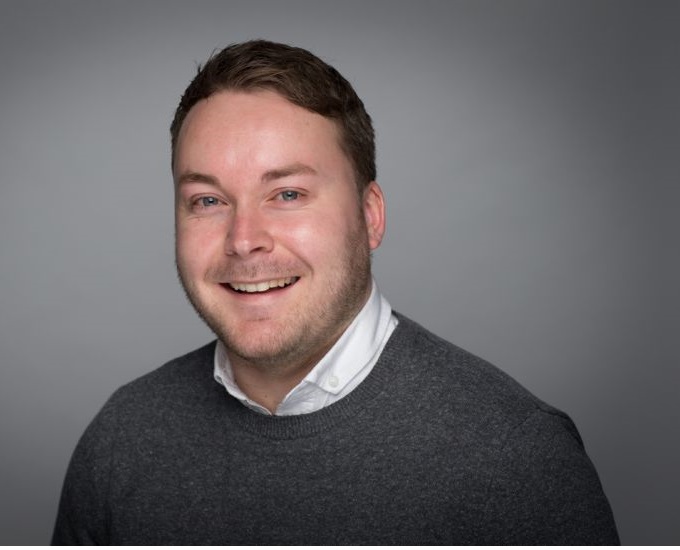 Dan graduated with a bachelor degree from the University of Plymouth (UK) and then followed with a master degree in Integrated Immunology at the University of Oxford. He continued there in the lab of Prof. Katja Simon where he did his PhD, investigating the role of autophagy in T cells. He then moved to Germany for a postdoc at the Max Planck Institute for Immunobiology & Epigenetics in Freiburg where he joined the lab of the Prof. Erika Pearce, the Institute Director, to carry out research in immunemetabolism. Currently, since May 2021, Dan is based at Johns Hopkins University in Baltimore, at the The Sidney Kimmel Comprehensive Cancer Centre.
Dan graduated with a bachelor degree from the University of Plymouth (UK) and then followed with a master degree in Integrated Immunology at the University of Oxford. He continued there in the lab of Prof. Katja Simon where he did his PhD, investigating the role of autophagy in T cells. He then moved to Germany for a postdoc at the Max Planck Institute for Immunobiology & Epigenetics in Freiburg where he joined the lab of the Prof. Erika Pearce, the Institute Director, to carry out research in immunemetabolism. Currently, since May 2021, Dan is based at Johns Hopkins University in Baltimore, at the The Sidney Kimmel Comprehensive Cancer Centre.
Dan has a fantastic track record of important awards, including multiple scholarships from the Colleges of the University of Oxford, The Ita Askonas Medal for research in immunology, EMBO post-doctoral fellowship and very prestigious Sir Henry Wellcome Post-Doctoral Fellowship awarded by The Wellcome Trust, to name a few.
Dan has an even more impressive publication record, having published in the highest-ranked journals, incl. Nature Immunology, Nature Metabolism, Cell Metabolism, Cell Host & Microbe, PNAS, Journal of Clinical Investigation and Autophagy. Recently, his first-author research article appeared in Cell. Apart from this, Dan has two patents resulting from his work in the topic of immune modulation, he was also a secretary of the Oxford Immunology Group, and acted as a Guest Associated Editor for Frontiers in Immunology. Finally, he is also involved in the admission process for the Integrated Immunology programme at the University of Oxford.
On Brains and Vessels: How perivascular fibroblasts contribute to ALS neurodegeneration
Speaker: Dr Sebastian Lewandowski
Talk: "On Brains and Vessels: How perivascular fibroblasts contribute to ALS neurodegeneration"
Time: 15.10.2021, 9:00 am
Venue: Intercollegiate Faculty of Biotechnology, Abrahama 58, hall 042
 Bio: Dr Lewandowski’s research aims to explain the interdependence between the neuronal and vascular cells. His recent work has shown that brain vascular fibroblasts are activated before the onset of neuroinflammation and neurodegeneration in ALS (Månberg et al 2021). His future studies in ALS could help to redefine the mechanisms of ALS etiology, clinical prognosis and therapy. Dr Lewandowski is a member of the Swedish Medical Association, Swedish Society for Neuroscience and a steering group member of the junior faculty at the Karolinska Institute. He has received grants for his ALS research from the Ulla-Carin Lindquist Foundation, the Åhlens Foundation, and the Olle Engkvist Byggmästare Foundation. He received his undergraduate degree from the University of Gdansk and obtained his PhD in molecular biology from the Nencki Institute of Experimental Biology in Warsaw. He performed his postdoctoral training at laboratory of Prof. Ulf Eriksson at the Karolinska Institute.
Bio: Dr Lewandowski’s research aims to explain the interdependence between the neuronal and vascular cells. His recent work has shown that brain vascular fibroblasts are activated before the onset of neuroinflammation and neurodegeneration in ALS (Månberg et al 2021). His future studies in ALS could help to redefine the mechanisms of ALS etiology, clinical prognosis and therapy. Dr Lewandowski is a member of the Swedish Medical Association, Swedish Society for Neuroscience and a steering group member of the junior faculty at the Karolinska Institute. He has received grants for his ALS research from the Ulla-Carin Lindquist Foundation, the Åhlens Foundation, and the Olle Engkvist Byggmästare Foundation. He received his undergraduate degree from the University of Gdansk and obtained his PhD in molecular biology from the Nencki Institute of Experimental Biology in Warsaw. He performed his postdoctoral training at laboratory of Prof. Ulf Eriksson at the Karolinska Institute.
Abstract. Although the core symptoms of ALS feature rapid, degeneration of motor neurons, we still know little how other cells including blood vessels contribute to ALS etiology. Our work shows that cerebral perivascular fibroblast cells become active long before the onset of neuroinflammation and remodel perivascular spaces with specific collagen and chemokine proteins in ALS mouse models and sporadic ALS patients (Månberg et al. Nature Medicine 2021). Targeted plasma proteomics of 452 ALS patients showed that perivascular fibroblast specific proteins increase vastly outperforms current standards of prediction for patient survival. We believe our results provide a novel conceptual framework to re-evaluate cellular contributions to etiology and dynamics of ALS neurodegeneration. Since enlarged perivascular spaces are repeatedly observed in aging, dementia and other neurological disorders, perivascular fibroblast cell activity could represent a common mechanism in cerebral injury response.
Neoantigen discovery & proteomics development at International Centre for Cancer Vaccine Science
Speaker: Dr Sachin Kote
Talk: "Neoantigen discovery & proteomics development at International Centre for Cancer Vaccine Science"
Time: 11.06.2021, 9:00 am
Venue: Online in the "IFB seminars" group of MsTeams. Group password: ypidr3d.
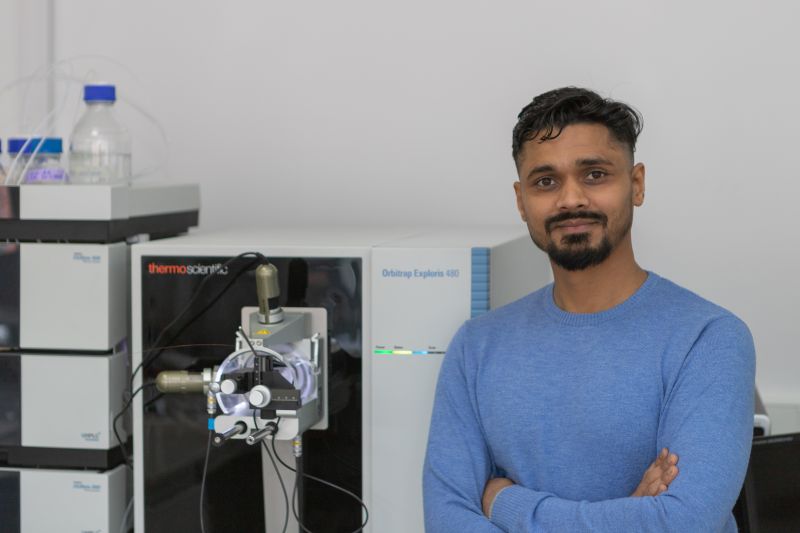
I am acting team leader of the chemical biology group at the International Centre for Cancer Vaccine Science (ICCVS). I am currently leading the neoantigen discovery/immunopeptidomics projects and proteomics development at ICCVS, University of Gdansk, Poland (www.iccvs.ug.edu.pl) since 2018.
I have specialized in peptidomics, proteomics, and cancer vaccine science. I have been working in the field of proteomics concerning health, environment, and safety for the past 12 years. I started my research career as a research project assistant in the proteomics laboratory at the National Chemical Laboratory (NCL), India. Herein, I have developed a strong interest in proteomics, mass spectrometry (MS), and biomarker discovery. Afterward, I moved to Italy for doctoral studies focusing on invitro and invivo nano-bio-interactions, biomarker findings upon nano-exposure, and nanotoxicology using advanced proteomics tools. I have completed my doctoral studies with an excellent Ph.D. award from the University of Salento, Lecce, Italy. Later on, I moved to north Italy for my first postdoctoral studies at the Istituto Italiano di Tecnologia (IIT), Genova, Italy. During my tenure, I developed biological/protein nanoparticles for the safe delivery of nanomedicine applications. In the second but very challenging project, I have developed a dissolution test for risk assessment nanomaterials. I am proud to say that our development of dissolution test is included in the nano-regulatory guidelines i.e., The Organization for Economic Co-operation and Development (OECD, ENV/JM/MONO, 2020, 9) guidelines. These guidelines are applicable in 36 industrialized countries in North and South America, Europe, Asia, and the Pacific.
Additionally, I have a background in Bioinformatics, Clinical Research & Clinical Data Management (CRCDM), and Diploma in Medical Laboratory Technology (DMLT).
Academic basic research vs. big pharma R&D- similarities and differences based on my career transition from postdoc to early drug discovery at GlaxoSmithKline
Speaker: dr Maja Firczuk
Talk: "Academic basic research vs. big pharma R&D- similarities and differences based on my career transition from postdoc to early drug discovery at GlaxoSmithKline"
Time: 7 may 2021, 9:00 am.
Venue: Online in the "IFB seminars" group of MS Teams. Group password: ypidr3d.
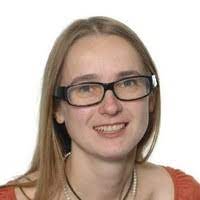
I have completed all my higher education at MWB in Gdansk. I have gained an extensive expertise in biochemistry during my PhD on Hsp70 protein systems, in the group of prof. Marszalek. In 2007 I have started postdoctoral research in systems biology of eukaryotic mRNA translation pathway, first at University on Manchester then at Warwick University. In 2018 I decided to have a career change and moved to work as a biochemist in early drug discovery at GSK.
In my talk I want to share learnings form my career journey and give you an overview of drug discovery process.
Immunopathogensis of dengue; lessons for COVID-19?
Speaker: prof. Neelika Malavige (Department of Immunology and Molecular Medicine, Faculty of Medical Sciences, University of Sri Jayewardenepura, Sri Lanka)
Talk: „Immunopathogensis of dengue; lessons for COVID-19?”
Time: 12 March 2021, 9:00 am
Venue: Online in the "IFB seminars" group of MS Teams. Group password: ypidr3d.
 Neelika Malavige is a Professor and Head of the Department of Immunology and Molecular Medicine at University of Sri Jayewardenepura, a Director of Centre for Dengue Research and an academic visitor at the MRC Human Immunology Unit, University of Oxford. She is also a member of Executive Committee of the International Society of Infectious Diseases.
Neelika Malavige is a Professor and Head of the Department of Immunology and Molecular Medicine at University of Sri Jayewardenepura, a Director of Centre for Dengue Research and an academic visitor at the MRC Human Immunology Unit, University of Oxford. She is also a member of Executive Committee of the International Society of Infectious Diseases.
Neelika has obtained medical training and qualifications through University of Colombo, Sri Lanka, Royal College of Physicians, UK and European Academy of Allergology and Clinical Immunology. She did her PhD at the University of Oxford, investigating immune responses to Varicella Zoster virus, having received a Commonwealth Scholarship. She is currently both a scientist and a practising clinician with interest in infectious diseases and allergies. Neelika has obtained research funding of around $ 2 mln and with that support she set up and developed the Centre for Dengue Research at the University of Sri Jayewardenepura.
Neelika’s current research interest involve immune responses to Dengue virus and biomarker identification; she is also running clinical trials to reduce vascular leak in severe disease. With the onset of the COVID-19 pandemic, Neelika and her team have been also investigating humoral and cellular responses to SARS-CoV2 and sequencing the viral strains.
She has published extensively on Dengue, VZV and now also on COVID-19 in prestigious journals, including Nature Communications, Scientific Reports and PLoS NeglectedTropical Diseases. She has been awarded countless excellence research awards and multiple awards for quality in research supervision. She has been involved in science popularisation, has been proclaimed a “role model” for Women in STEM and has recently won the title of “The most inspiring woman of the year” in Sri Lanka.
Oxford-AstraZeneca Covid-19 vaccine - questions and answers session
Speaker: Dr Adam Ritchie (Jenner Institute, Nuffield Department of Medicine, Wellcome Trust Centre for Human Genetics, University of Oxford)
Talk: Oxford-AstraZeneca Covid-19 vaccine - questions and answers session
Time: 29 January 2021, 9:00 am
Venue: Online in the "IFB seminars" group of MS Teams. Group password: ypidr3d.
 Dr Ritchie completed his Bachelor of Science degree in Medical Microbiology and Immunology (2001) and PhD in Immunology (2005), both at the University of New South Wales in Australia. His doctoral research involved investigation of modulation of immune responses by Pseudomonas aeruginosa. After his PhD, he moved to the University of Oxford, working as a postdoctoral researcher in infection risk of blood products, which focused on malaria and variant Creutzfeldt–Jakob disease. Then, he followed with a post-doctoral research position in HIV/AIDS immunology at the Weatherall Institute for Molecular Medicine, University of Oxford as part of the Centre for HIV/AIDS Vaccine Immunology (CHAVI) consortium (2008-2012). During the time he coordinated the CHAVI002 study into individuals resistant to HIV infection in cohorts in the UK and Uganda.
Dr Ritchie completed his Bachelor of Science degree in Medical Microbiology and Immunology (2001) and PhD in Immunology (2005), both at the University of New South Wales in Australia. His doctoral research involved investigation of modulation of immune responses by Pseudomonas aeruginosa. After his PhD, he moved to the University of Oxford, working as a postdoctoral researcher in infection risk of blood products, which focused on malaria and variant Creutzfeldt–Jakob disease. Then, he followed with a post-doctoral research position in HIV/AIDS immunology at the Weatherall Institute for Molecular Medicine, University of Oxford as part of the Centre for HIV/AIDS Vaccine Immunology (CHAVI) consortium (2008-2012). During the time he coordinated the CHAVI002 study into individuals resistant to HIV infection in cohorts in the UK and Uganda.
From 2011 to 2017 Dr Ritchie was the Lecturer in Science and Public Policy at the Blavatnik School of Government, a new department at Oxford that he helped establish. Here he taught public policy students and policy makers how to work with scientific evidence, including preparing for and responding to pandemics.
Currently, he is working at the Jenner Institute, University of Oxford as a Senior Project Manager in Vaccine Development and is part of the Oxford COVID Vaccine Trial Group. Initially working on Rabies vaccine from 2017, he set up and manages phase I clinical trials for this vaccine in the UK and Tanzania. In 2020 his role changed due to the pandemic; he was instrumental in developing and delivering the manufacturing process for the ChAdOx1 nCoV-19 vaccine. This included setting up the Manufacturing consortium now producing the vaccine under licence with AstraZeneca, obtaining a UK government commitment of £65 million support for manufacturing, and managing £15 million of that budget.
Dr Ritchie is also actively involved in multiple non-research roles at Oxford, including as the Senior Admissions Adviser for Blavatnik School of Government, and as a Lecturer in Human Science at St Catherine’s College. He holds a Post-Graduate Diploma in Learning and Teaching in Higher Education at the University of Oxford and the Higher Education Academy (2013). He is a Senior fellow of the Higher Education Academy, and received the St Bonaventure University Medal of Honor (2012) and University of Oxford Teaching Excellence Award (2013) for his contributions to education.
Dr Ritchie has co-authored work published by Journal of Virology, Vaccine, Journal of Clinical Investigation, Retrovirology, Infection and Immunity, etc. His most recent work focusing on the COVID19 vaccine resulted in multiple papers published in The Lancet and Nature Medicine.
Regulation of gene expression through biomolecular condensation
Speaker: dr Adam Kłosin (Max Planck Institute of Molecular Cell Biology and Genetics, Dresden, Germany)
Talk: Regulation of gene expression through biomolecular condensation
Time: 06 November 2020, 9:00 am
Venue: Online in the "IFB seminars" group of MS Teams. Group password: ypidr3d.
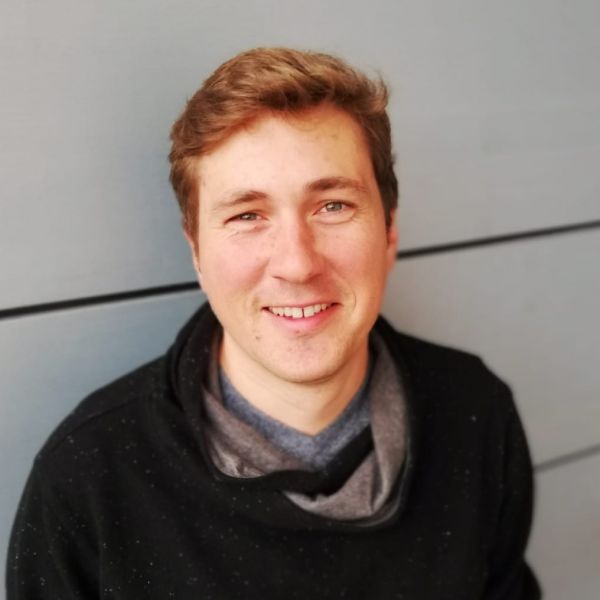 Adam Kłosin is a postdoctoral researcher and a Marie Skłodowska-Curie Fellow at the Max Planck Institute of Molecular Cell Biology and Genetics in Dresden, Germany. In 2016 he completed his PhD in the group of Ben Lehner at the Centre for Genomic Regulation in Barcelona where he studied mechanisms of epigenetic inheritance in Caenorhabditis elegans. He then moved to Dresden to train in the arts of biological phase separation in the group of Tony Hyman. In his research he applies biophysical methods to understand various aspects of gene regulation such as transcriptional initiation and control of protein expression variability. His most recent work demonstrates a very effective mechanism for noise reduction in mammalian cells based on compartmentalisation of a protein via liquid- liquid phase separation. He is currently investigating the role of disordered protein domains in regulating interactions with the DNA in the context of transcriptional initiation.
Adam Kłosin is a postdoctoral researcher and a Marie Skłodowska-Curie Fellow at the Max Planck Institute of Molecular Cell Biology and Genetics in Dresden, Germany. In 2016 he completed his PhD in the group of Ben Lehner at the Centre for Genomic Regulation in Barcelona where he studied mechanisms of epigenetic inheritance in Caenorhabditis elegans. He then moved to Dresden to train in the arts of biological phase separation in the group of Tony Hyman. In his research he applies biophysical methods to understand various aspects of gene regulation such as transcriptional initiation and control of protein expression variability. His most recent work demonstrates a very effective mechanism for noise reduction in mammalian cells based on compartmentalisation of a protein via liquid- liquid phase separation. He is currently investigating the role of disordered protein domains in regulating interactions with the DNA in the context of transcriptional initiation.
Towards a HIV cure: in which cells is the virus hiding and how to inactivate integrated HIV genomes
Speaker: prof. dr Ben Berkhout (Laboratory of Experimental Virology, Amsterdam UMC)
Talk: Towards a HIV cure: in which cells is the virus hiding and how to inactivate integrated HIV genomes
Time: 03 April 2020, 9:00 am
Venue: Intercollegiate Faculty of Biotechnology, Abrahama 58, hall 042
 We can successfully treat HIV-infected individuals with multiple antiviral drugs, but we cannot cure them as the virus hides in certain cells from which it rebounds after therapy is stopped. A better description of this cellular reservoir has been the Holy Grail of HIV cure research for many years. We could confirm that HIV DNA is quite profoundly enriched in a very small subset of T cells that express the CD32a marker. This is surprising as CD32a is abundantly expressed and functional as Fcgamma receptor on e.g. B cells, but there is a very small T cell subset that also express this surface marker. Thus, cure approaches should be directed towards these CD32a-positive T cells. We developed the CRISPR-Cas technology for a direct attack on the integrated HIV DNA genome. The underlying mechanism of HIV inactivation will be discussed. We propose to develop CD32a-targeting lentiviral vectors that encode these optimized CRISPR-Cas reagents.
We can successfully treat HIV-infected individuals with multiple antiviral drugs, but we cannot cure them as the virus hides in certain cells from which it rebounds after therapy is stopped. A better description of this cellular reservoir has been the Holy Grail of HIV cure research for many years. We could confirm that HIV DNA is quite profoundly enriched in a very small subset of T cells that express the CD32a marker. This is surprising as CD32a is abundantly expressed and functional as Fcgamma receptor on e.g. B cells, but there is a very small T cell subset that also express this surface marker. Thus, cure approaches should be directed towards these CD32a-positive T cells. We developed the CRISPR-Cas technology for a direct attack on the integrated HIV DNA genome. The underlying mechanism of HIV inactivation will be discussed. We propose to develop CD32a-targeting lentiviral vectors that encode these optimized CRISPR-Cas reagents.
Ben Berkhout studied molecular biology at the Leiden University (1976-1981), and obtained his PhD in 1986 at the same university on a research project concerning the regulation of gene expression in RNA bacteriophages, in particular translational control by means of RNA structure. He performed postdoctoral research at the Dana Farber Cancer Institute of the Harvard Medical School in the field of molecular immunology (1986-1989) and initiated HIV-1 research at the National Institutes of Health, Bethesda (Department of Molecular Microbiology, 1989-1991). Ben Berkhout initiated a molecular virology research line in 1991 upon his return to the Netherlands and he has been at the Academic Medical Center (AMC) of the University of Amsterdam since then. He became Head of the Laboratory of Experimental Virology and was appointed as Professor of Human Retrovirology in 2002. Ben Berkhout is editor-in-chief of Virus Research, editor for several journals (Retrovirology, Journal of Biomedical Science, Journal of Biological Chemistry, Virology Journal) and editorial board member for many more. He successfully supervised 46 PhD students and was a member of 131 other PhD thesis committees. Ben Berkhout has published over 520 peer-reviewed manuscripts on diverse topics concerning HIV-1 replication (mechanism of transcription, reverse transcription, RNA-regulated functions), virus evolution (both as a research tool and the underlying molecular mechanisms of drug-resistance), virus discovery (human coronavirus NL63), new antiviral therapeutic strategies (RNA interference, CRISPR-Cas) and HIV-1 vaccine design (improved Env protein immunogen design and conditional live-attenuated HIV-1). His work received >18,800 citations and he has an H-index of 67. Ben Berkhout received the Retrovirology Prize 2008 for his pioneering research on the structure and function of the HIV-1 RNA genome.
Cold atmospheric pressure plasma – new challenges, new hopes
Speaker: prof. Paweł Pohl (Wrocław University of Science and Technology)
Talk: Cold atmospheric pressure plasma – new challenges, new hopes
Time: 13 March 2020, 09:00 am
Venue: Intercollegiate Faculty of Biotechnology, Abrahama 58, hall 042
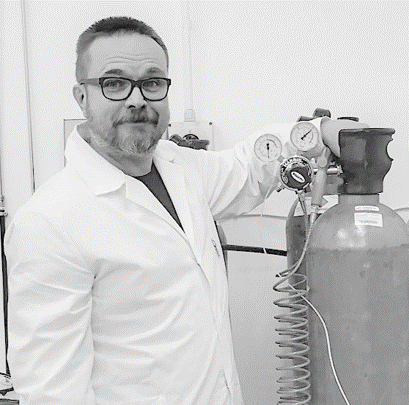 Scientific interests: analytical chemistry, atomic spectrometry, optical emission spectrometry, trace analysis, elemental analysis, speciation analysis, food and environmental analytics, spectroscopic diagnostics.
Scientific interests: analytical chemistry, atomic spectrometry, optical emission spectrometry, trace analysis, elemental analysis, speciation analysis, food and environmental analytics, spectroscopic diagnostics.
Plasma (the 4th state of matter) is an ionized gas generated by different processes, including electric discharges or nuclear reactions, and characterized by very high temperatures, i.e., 100,000 K and much more. Natural examples of plasmas are the sun, lightnings on earth, or temporary electrical discharges. Cold atmospheric pressure plasmas (CAPPs) are just partially ionized gases, and ionization degrees in this case are very small (>>0.01%). Such plasmas can be sustained at atmospheric pressure and operated at room temperature, and are characterized by relatively low temperature, or more precisely, several temperatures that are arranged in the following line: Te (electron temperature)>>Texc (excitation temperature of atoms)>Trot (rotational temperature of molecules)@Tg (kinetic temperature of gas molecules, being from few to less than 103 oC). In addition, being sustained under atmospheric pressure, CAPP is a rich source of different species, including high energy electrons, ions, excited atoms and molecules, radicals, e.g., O3, NO, NO2, NH, OH, H, UV radiation, and heat. Temperature behavior of CAPP (called non-equilibrium or non-thermal plasma, NTP) in addition to the presence of a “cocktail” of species both determine its features and phenomenal applications. The content and the type of species in CAPP may significantly vary for different sources, and hence, can be modified for specific purposes and applications, showing its great flexibility and diversity. In other words, the concentration and the inherent composition of CAPP can be designed for different intended applications. Some of these applications, including spectrochemical analysis, metallic nanoparticles synthesis, and microorganisms inactivation, will be presented in this lecture, although, it should be noted that the number of possible uses of CAPP is much higher, and go beyond human’s imagination.
Genome editing in mitochondria: past, present and future
Speaker: dr Michał Mińczuk (MRC Mitochondrial Biology Unit, University of Cambridge)
Talk: Genome editing in mitochondria: past, present and future
Time: 06 March 2020, 9:00 am
Venue: Intercollegiate Faculty of Biotechnology, Abrahama 58, hall 042
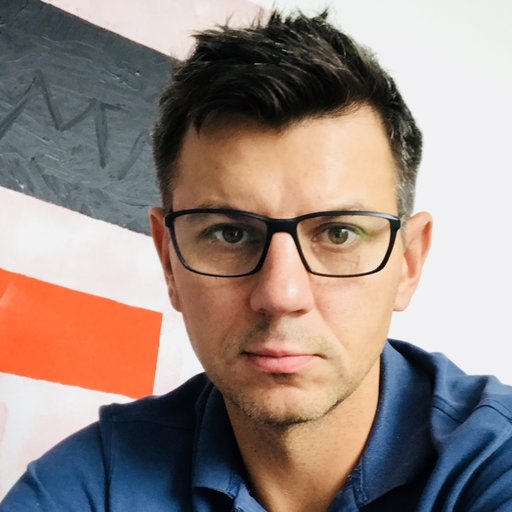 Mitochondria are essential for human life. They are complex, compartmentalised organelles that form a dynamic network throughout the cell, host crucial metabolic processes vital for energy provision, and are central to cell fate decisions. Mitochondria contain multiple copies of their own genome, the mtDNA, that encodes the core subunits of the oxidative phosphorylation system. Mutations in protein or RNA coding genes of mtDNA are the most frequent cause of mitochondrial disease. These disorders are currently incurable and effectively untreatable, with heterogeneous penetrance, presentation and prognosis. In most cases, mutant and wild-type mtDNAs coexist within a single cell, resulting in heteroplasmy. The selective elimination of mutant mtDNA, and consequent enrichment of wild-type mtDNA, can rescue pathological phenotypes in heteroplasmic cells. In our work, we have developed mitochondrially targeted zinc finger-nucleases (mtZFNs) for degradation of mutant mtDNA through site-specific DNA cleavage. We have successfully used mtZFNs to target and cleave mtDNA harbouring disease-associated point mutations or large-scale deletions in vitro. More recently, we exploited a unique mouse model that recapitulates common molecular features of heteroplasmic mtDNA disease in cardiac tissue: the m.5024C>T tRNAAla mouse. Through application of mtZFN delivered systemically by adeno-associated virus (AAV), we induced specific elimination of mutant mtDNA across the heart, coupled to a reversion of molecular and biochemical phenotypes. These recent findings constitute proof of principle that mtDNA heteroplasmy correction using programmable nucleases could provide a therapeutic route for heteroplasmic mitochondrial diseases of diverse genetic origin.
Mitochondria are essential for human life. They are complex, compartmentalised organelles that form a dynamic network throughout the cell, host crucial metabolic processes vital for energy provision, and are central to cell fate decisions. Mitochondria contain multiple copies of their own genome, the mtDNA, that encodes the core subunits of the oxidative phosphorylation system. Mutations in protein or RNA coding genes of mtDNA are the most frequent cause of mitochondrial disease. These disorders are currently incurable and effectively untreatable, with heterogeneous penetrance, presentation and prognosis. In most cases, mutant and wild-type mtDNAs coexist within a single cell, resulting in heteroplasmy. The selective elimination of mutant mtDNA, and consequent enrichment of wild-type mtDNA, can rescue pathological phenotypes in heteroplasmic cells. In our work, we have developed mitochondrially targeted zinc finger-nucleases (mtZFNs) for degradation of mutant mtDNA through site-specific DNA cleavage. We have successfully used mtZFNs to target and cleave mtDNA harbouring disease-associated point mutations or large-scale deletions in vitro. More recently, we exploited a unique mouse model that recapitulates common molecular features of heteroplasmic mtDNA disease in cardiac tissue: the m.5024C>T tRNAAla mouse. Through application of mtZFN delivered systemically by adeno-associated virus (AAV), we induced specific elimination of mutant mtDNA across the heart, coupled to a reversion of molecular and biochemical phenotypes. These recent findings constitute proof of principle that mtDNA heteroplasmy correction using programmable nucleases could provide a therapeutic route for heteroplasmic mitochondrial diseases of diverse genetic origin.
How photoheterotrophic bacteria can challenge our understanding of carbon cycle
Speaker: dr Katarzyna Piwosz (Centre Algatech, Institute of Microbiology, The Czech Academy of Sciences, Trebon)
Talk: How photoheterotrophic bacteria can challenge our understanding of carbon cycle
Time: 28 February 2020, 9:00 am
Venue: Intercollegiate Faculty of Biotechnology, Abrahama 58, hall 042
![]() My main scientific interest is on ecology of aquatic microorganisms. Aquatic microorganisms: bacteria, algae and heterotrophic protists, are the key players in energy transfer and element cycling in freshwater and marine habitats. These processes are vital for sustaining aquatic ecosystem and the entire biosphere. My research includes investigation of diversity, distribution, dynamics and activity of bacteria, algae and heterotrophic protists in their natural environments. I graduated from the University of Gdansk in Poland. I did my first scientific project for my master thesis at the Institute of Oceanology of the Polish Academy of Sciences. I studied diversity and distribution of algae dwelling in the Arctic Ocean. During hours spent counting different algal species under a microscope, I noticed a plethora of tiny, tiny cells that neither my supervisor, nor any other ecologists could name. This is how I became fascinated with the smallest of microorganisms, for which high quality light microscopy was not enough. Looking for the possibility to identify those cells, I read about use of molecular methods to study microbial diversity. However, to learn these techniques, I had to move to Germany, where I joined Max Planck Research School at Max Planck Institute for Marine Microbiology in Bremen (Marmic). Studying at Marmic and working on my second master thesis at the Alfred Wegener Institute for Polar and Marine Research in Bremerhaven, I learned all the theory and practice I needed to pursue my doctoral study. I returned to the Institute of Oceanology PAS, and, in cooperation with the University of Zurich, I studied small algae and protists in the Baltic Sea. The phylogenetic diversity of algae and protists in the Baltic Sea turned out to be incredible, with thousands of species present in the Gulf of Gdańsk over a year. I discovered groups of protists that no one expected to be present in the Baltic. After I accomplished my PhD, I returned to Polar Regions to answer the question from my first master project: who were the tiny tiny cells in my samples :)
My main scientific interest is on ecology of aquatic microorganisms. Aquatic microorganisms: bacteria, algae and heterotrophic protists, are the key players in energy transfer and element cycling in freshwater and marine habitats. These processes are vital for sustaining aquatic ecosystem and the entire biosphere. My research includes investigation of diversity, distribution, dynamics and activity of bacteria, algae and heterotrophic protists in their natural environments. I graduated from the University of Gdansk in Poland. I did my first scientific project for my master thesis at the Institute of Oceanology of the Polish Academy of Sciences. I studied diversity and distribution of algae dwelling in the Arctic Ocean. During hours spent counting different algal species under a microscope, I noticed a plethora of tiny, tiny cells that neither my supervisor, nor any other ecologists could name. This is how I became fascinated with the smallest of microorganisms, for which high quality light microscopy was not enough. Looking for the possibility to identify those cells, I read about use of molecular methods to study microbial diversity. However, to learn these techniques, I had to move to Germany, where I joined Max Planck Research School at Max Planck Institute for Marine Microbiology in Bremen (Marmic). Studying at Marmic and working on my second master thesis at the Alfred Wegener Institute for Polar and Marine Research in Bremerhaven, I learned all the theory and practice I needed to pursue my doctoral study. I returned to the Institute of Oceanology PAS, and, in cooperation with the University of Zurich, I studied small algae and protists in the Baltic Sea. The phylogenetic diversity of algae and protists in the Baltic Sea turned out to be incredible, with thousands of species present in the Gulf of Gdańsk over a year. I discovered groups of protists that no one expected to be present in the Baltic. After I accomplished my PhD, I returned to Polar Regions to answer the question from my first master project: who were the tiny tiny cells in my samples :)
During my work, I participated in scientific cruises to the Baltic Sea, Arctic Ocean and Adriatic Sea. I successfully managed five international scientific projects. I was awarded fellowships and stipends from the EMBL, FEMS, the Director of the Institute of Baltic Sea Research, Warnemünde, Swiss Foundation for Hydrobiology & Limnology, and the University of Zurich, and received four awards from the Director of National Marine Fisheries Research Institute for the publications record. I have been appointed the Ambassador for Poland by the International Society for Microbial Ecology (https://www.isme-microbes.org/). Presently I am a researcher in Institute of Microbiology of Czech Academy of Sciences. My work concentrates on role of photoheterotrophic bacteria in freshwater carbon cycle. There are two known types of photoheterotrophic bacteria: rhodopsin containing and bacteriochlorophylls containing. The former seems to be abundant but slow growing, while the letter are more rare (but still they can make up to 40% of all bacterial abundance) but fast growing, and my current focus lies on them. In my talk, I will present my research on ecology of the bacteriochlorophylls containing photoheterotrophic bacteria in freshwaters: their diversity, seasonal dynamics, activity and interaction with other microbes.
Research ethics: from dilemmas to solutions in scientific practice
Speaker: Dr Francisco Javier Castro-Toledo (Universidad Miguel Hernández de Elche / UMH · CRIMINA. Center for the Study and Prevention of Crime)
Talk: Research ethics: from dilemmas to solutions in scientific practice
Time: 21st February 2020, 09:00 am
Venue: Intercollegiate Faculty of Biotechnology, Abrahama 58, hall 042
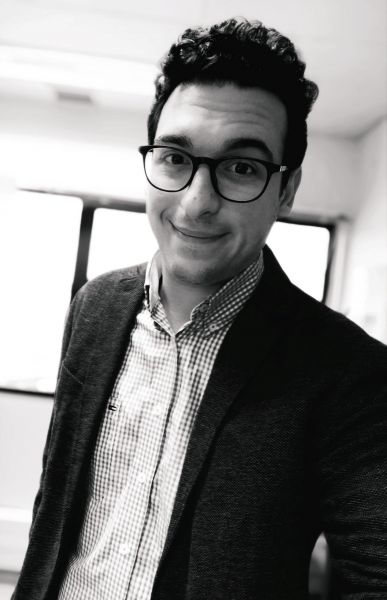 Dr. Francisco Javier Castro-Toledo holds a degree in Philosophy, a master's degree in moral philosophy and holds a PhD from Miguel Hernández University in Elche. He completed his doctorate in July 2018 with the defense of a doctoral thesis funded by the Spanish Institute of Cybersecurity (INCIBE) which was qualified with “cum laude”. Since 2013 he has participated as a researcher, teacher and manager of European R&D projects at the CRÍMINA center for the study and prevention of crime at the UMH under the supervision of Professor Dr. Fernando Miró Llinares, and since 2018 he has been assistant professor in the Department of Legal Science at the Miguel Hernández University in Elche and co-founder CEO of Plus Ethics: a spin-off of the UMH and CRIMINA dedicated to providing ethical and legal support for both public policies and R&D projects.
Dr. Francisco Javier Castro-Toledo holds a degree in Philosophy, a master's degree in moral philosophy and holds a PhD from Miguel Hernández University in Elche. He completed his doctorate in July 2018 with the defense of a doctoral thesis funded by the Spanish Institute of Cybersecurity (INCIBE) which was qualified with “cum laude”. Since 2013 he has participated as a researcher, teacher and manager of European R&D projects at the CRÍMINA center for the study and prevention of crime at the UMH under the supervision of Professor Dr. Fernando Miró Llinares, and since 2018 he has been assistant professor in the Department of Legal Science at the Miguel Hernández University in Elche and co-founder CEO of Plus Ethics: a spin-off of the UMH and CRIMINA dedicated to providing ethical and legal support for both public policies and R&D projects.





